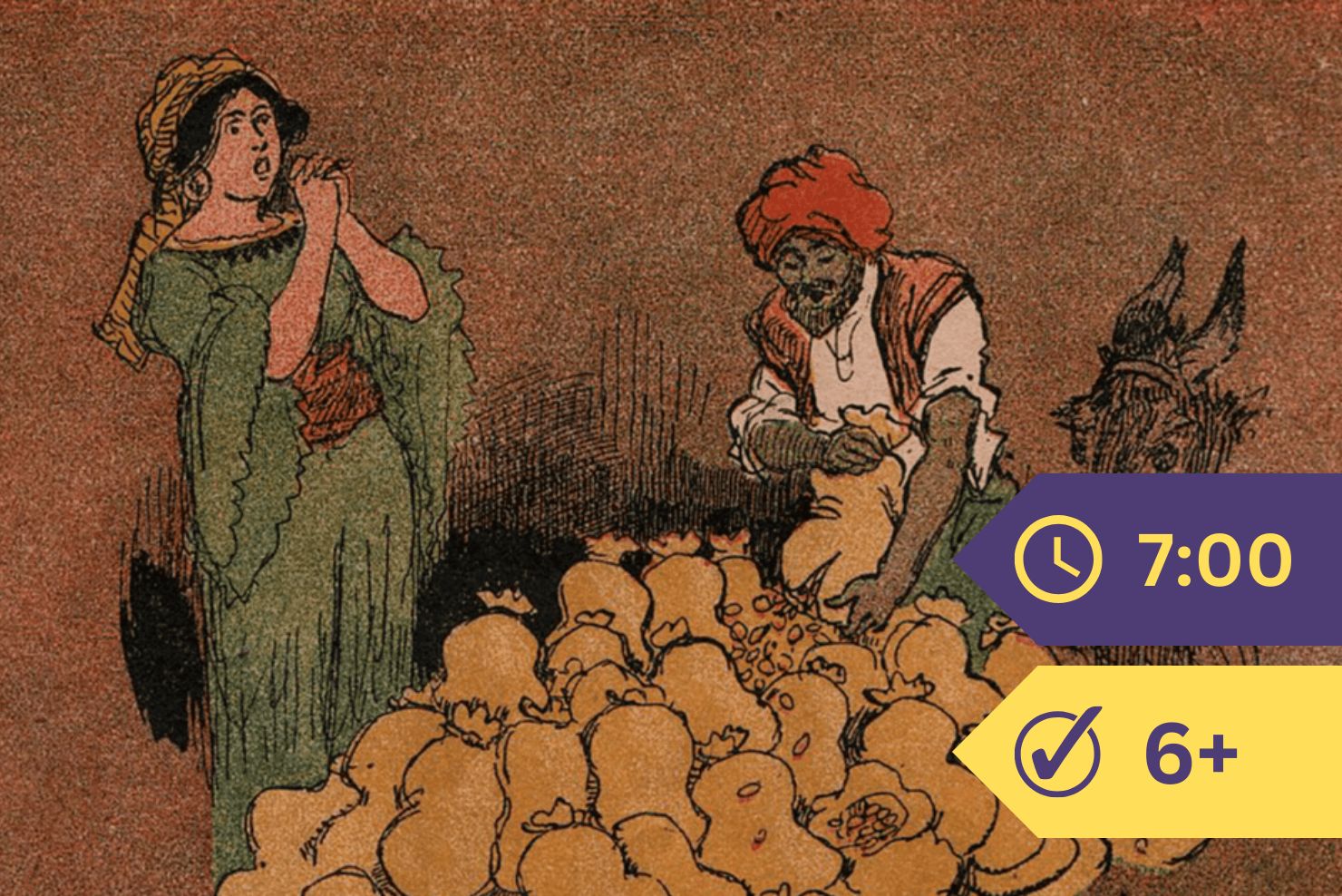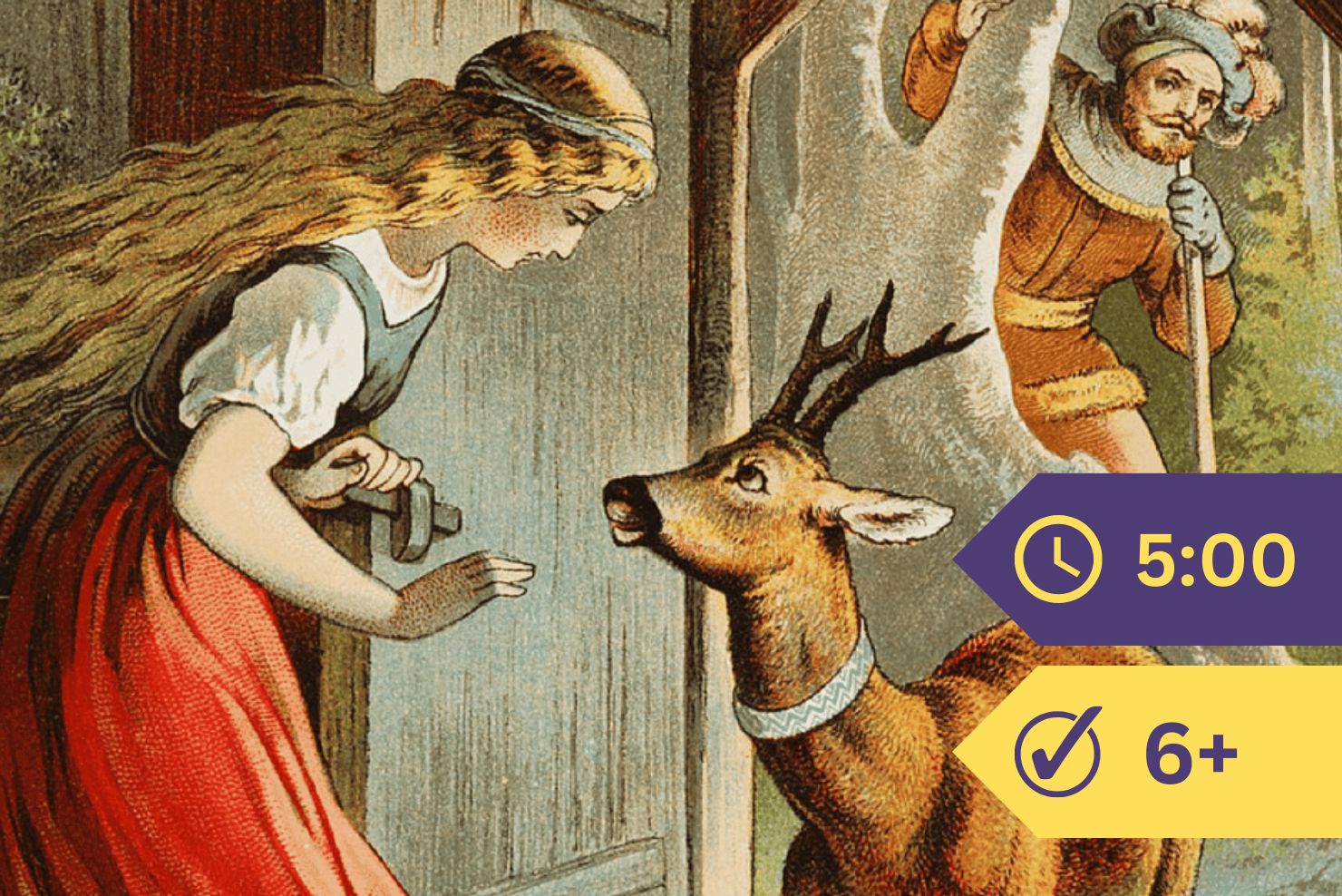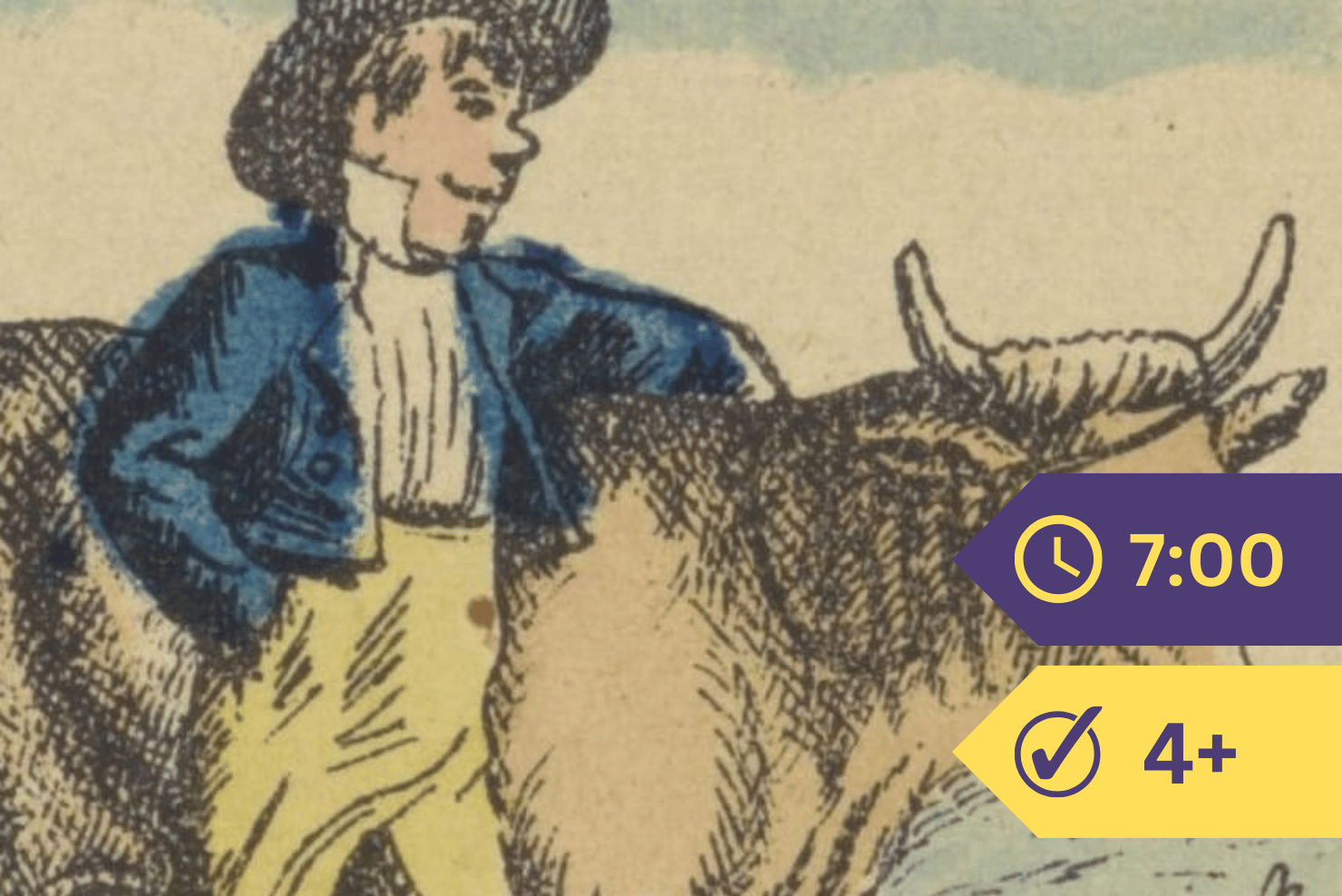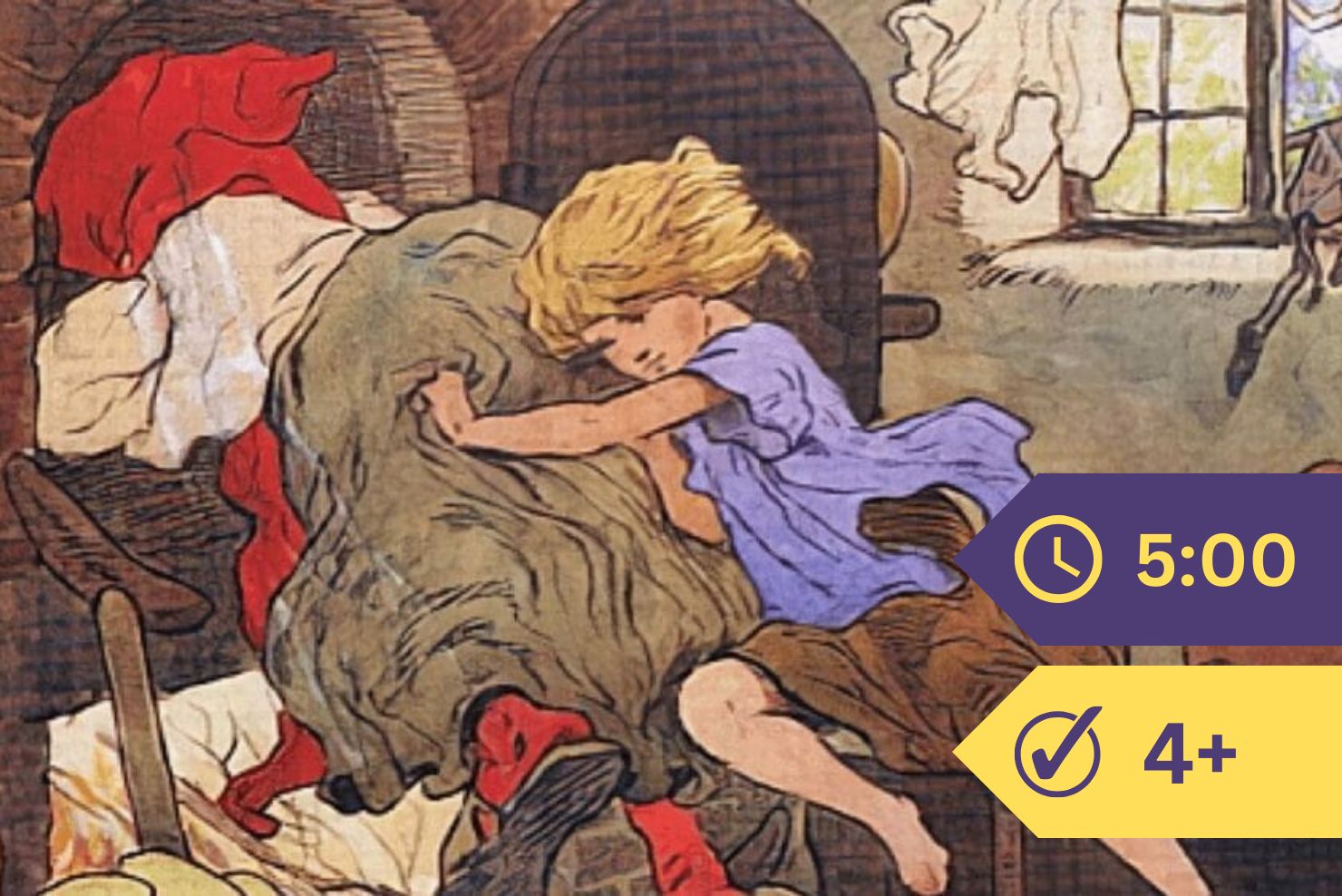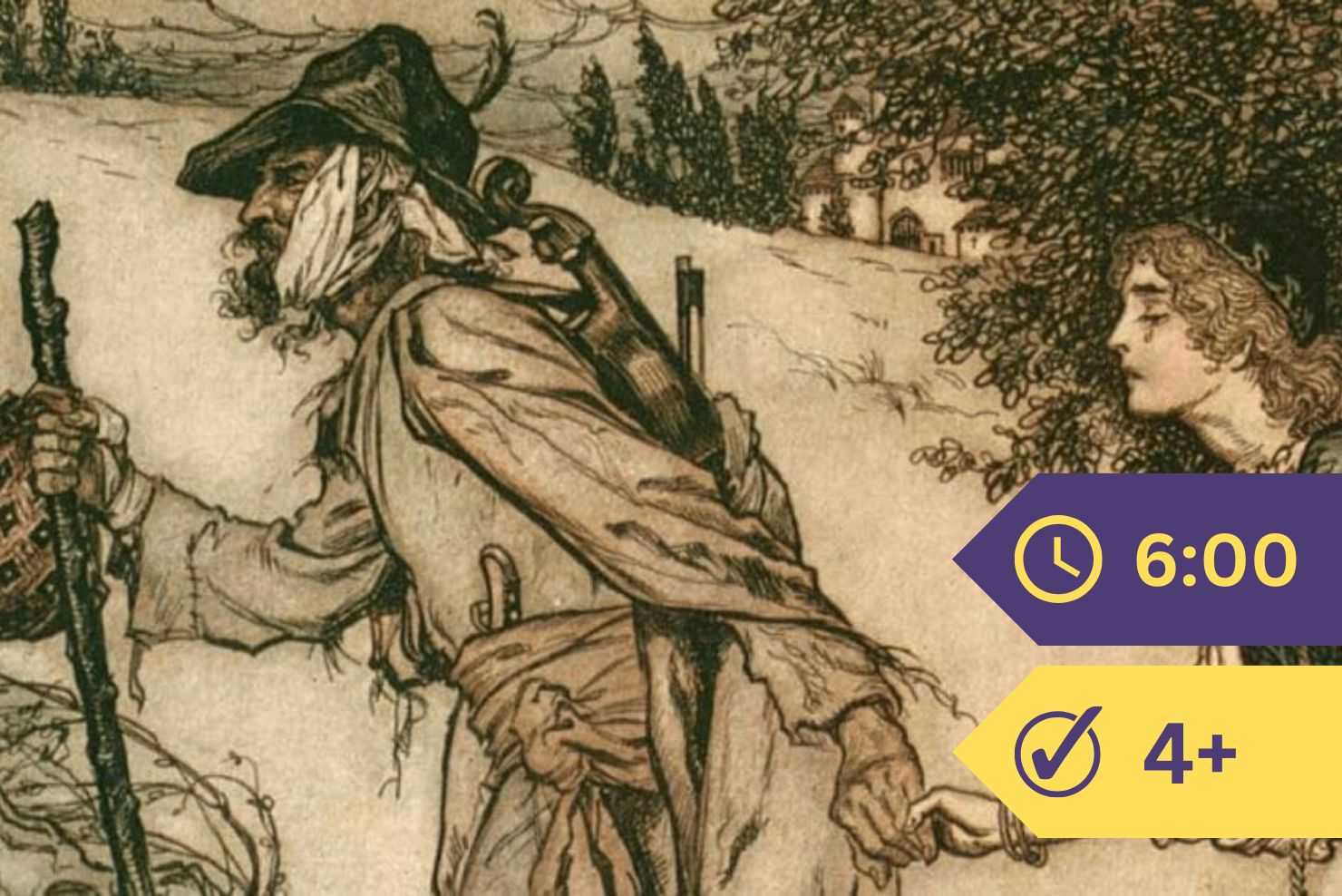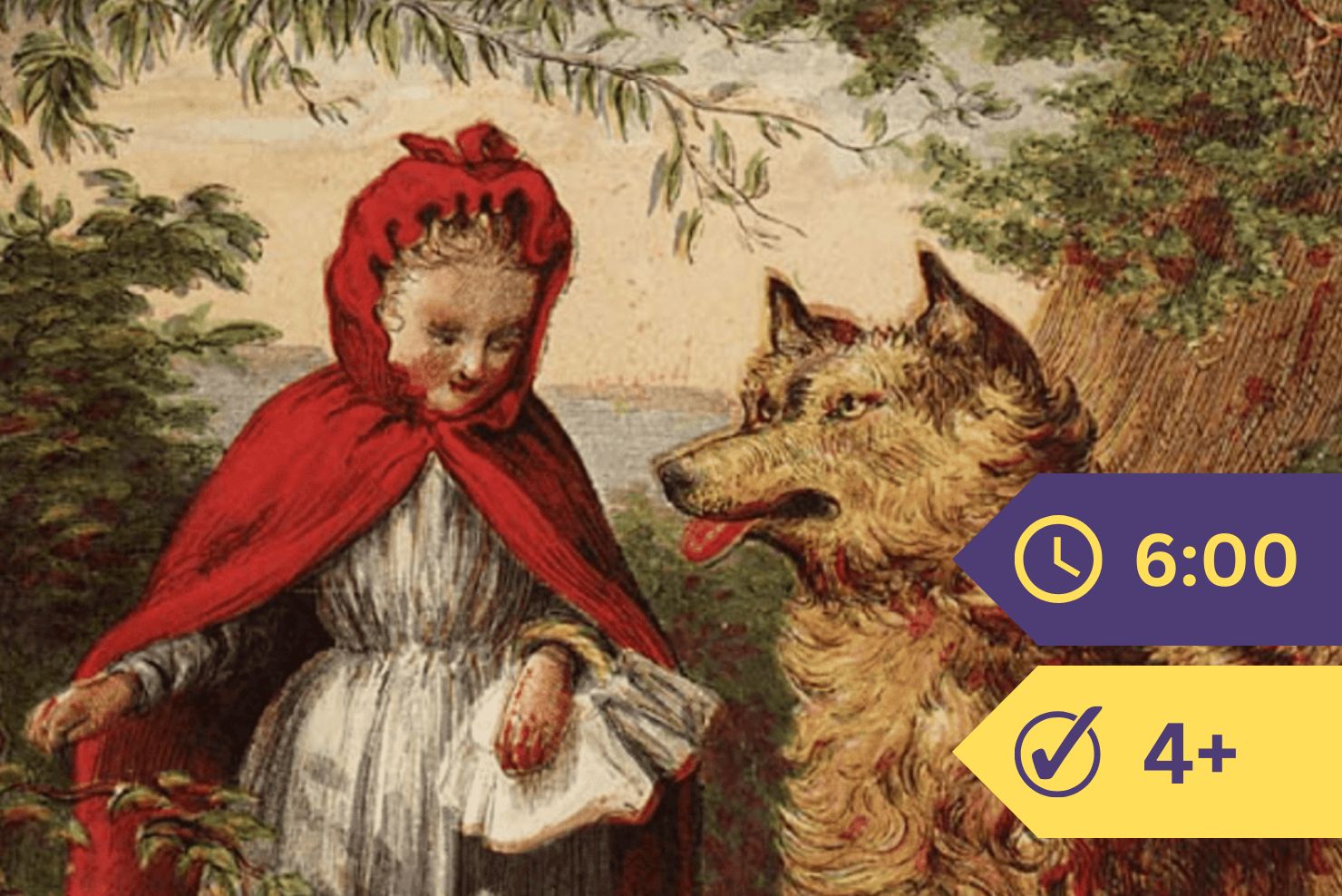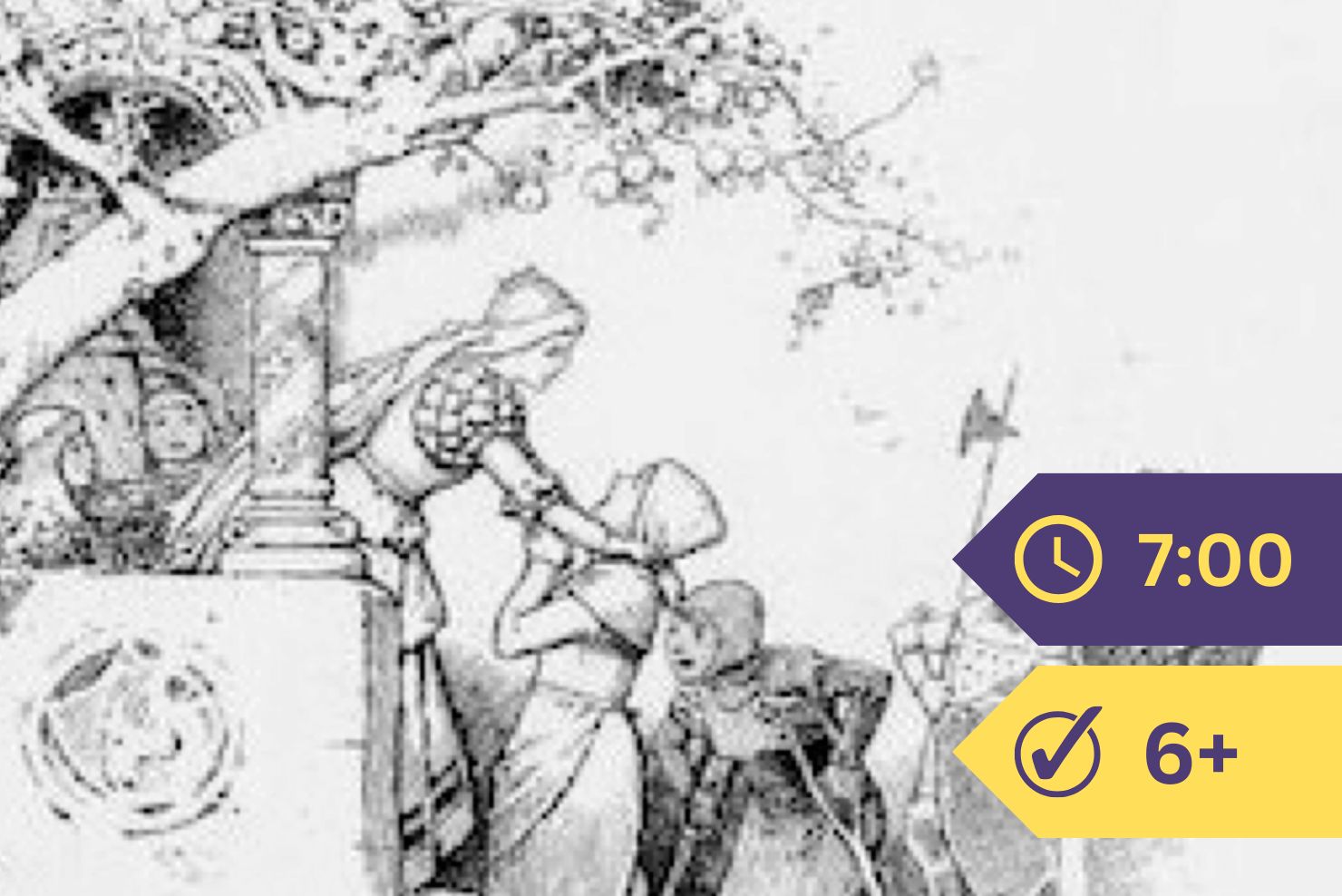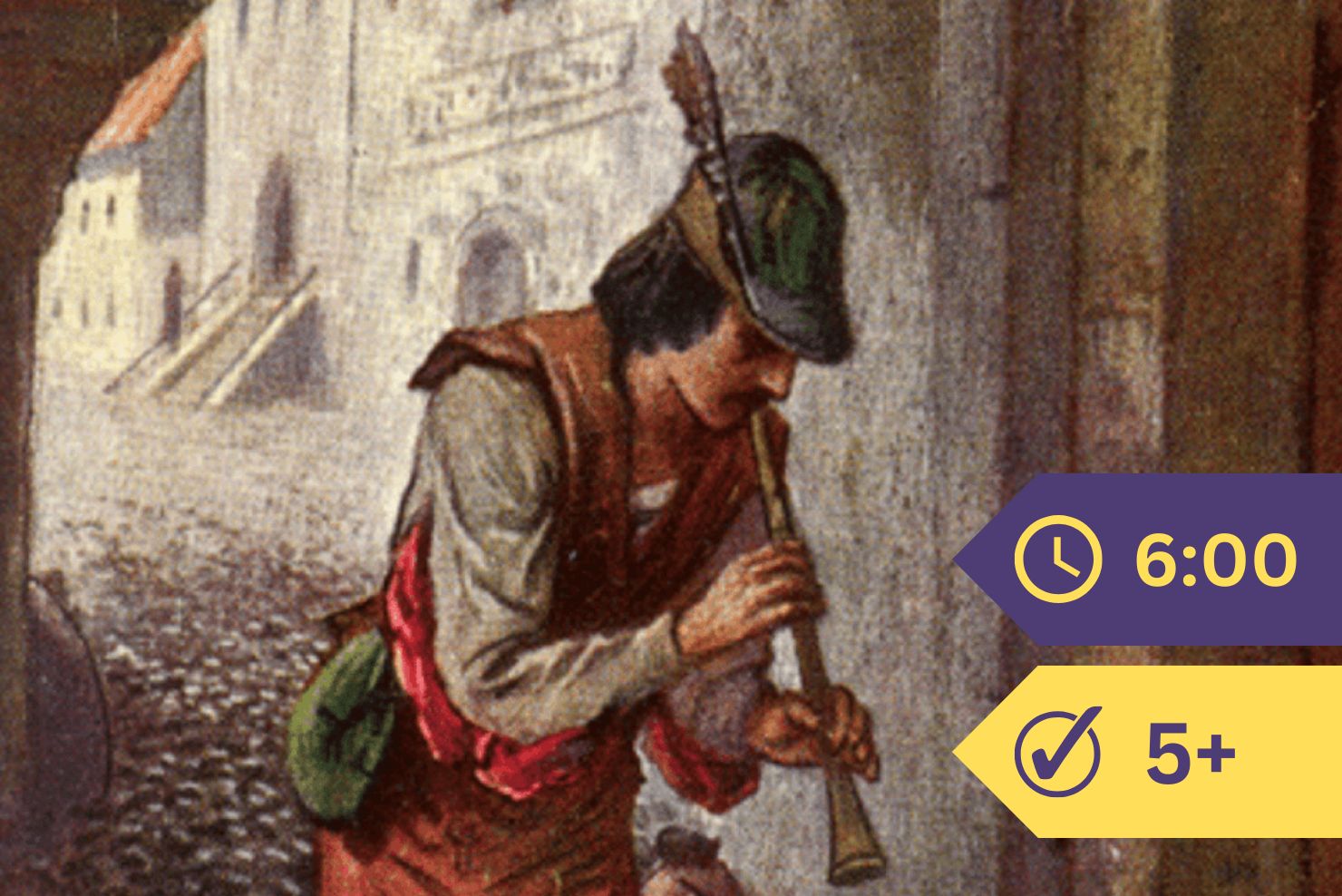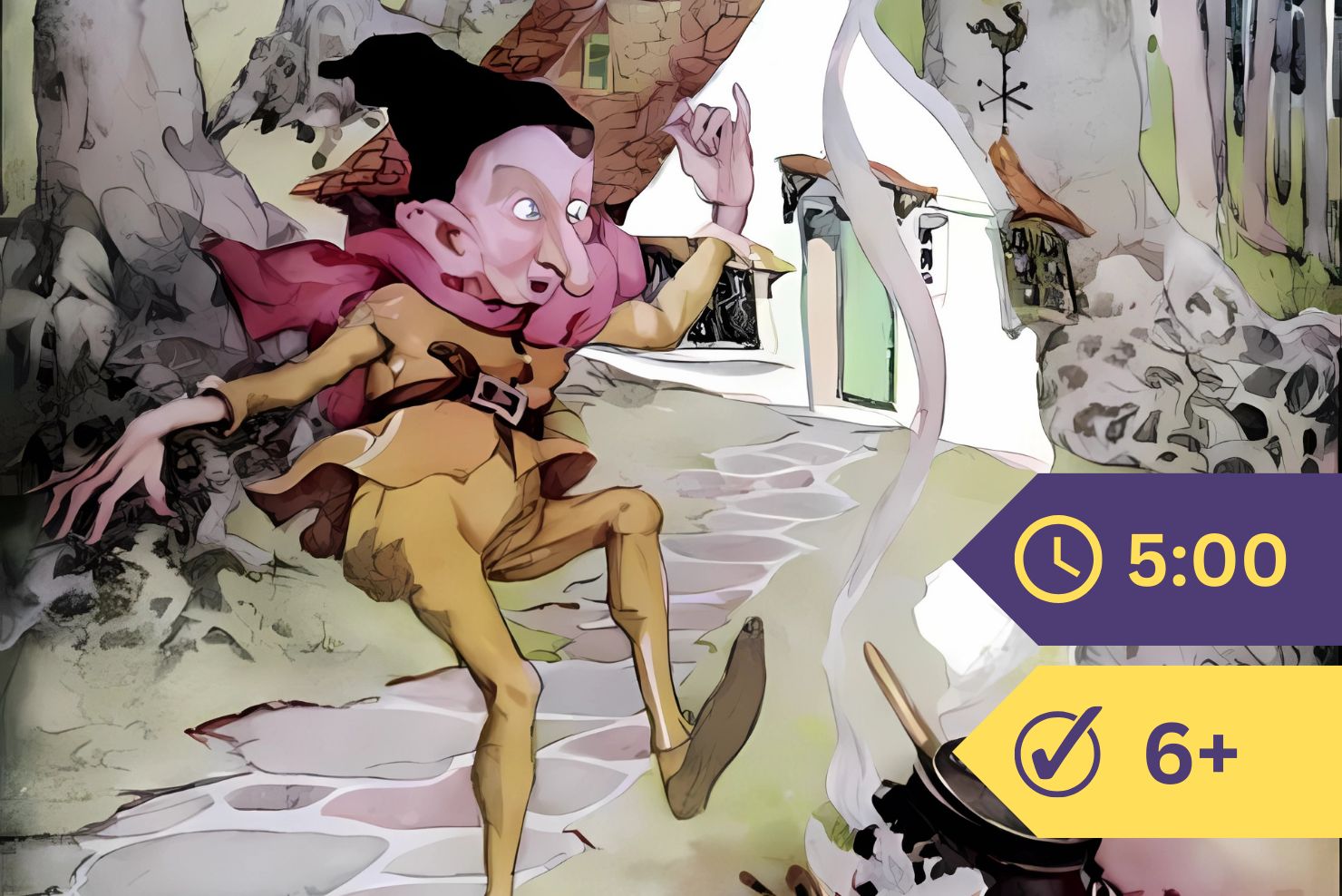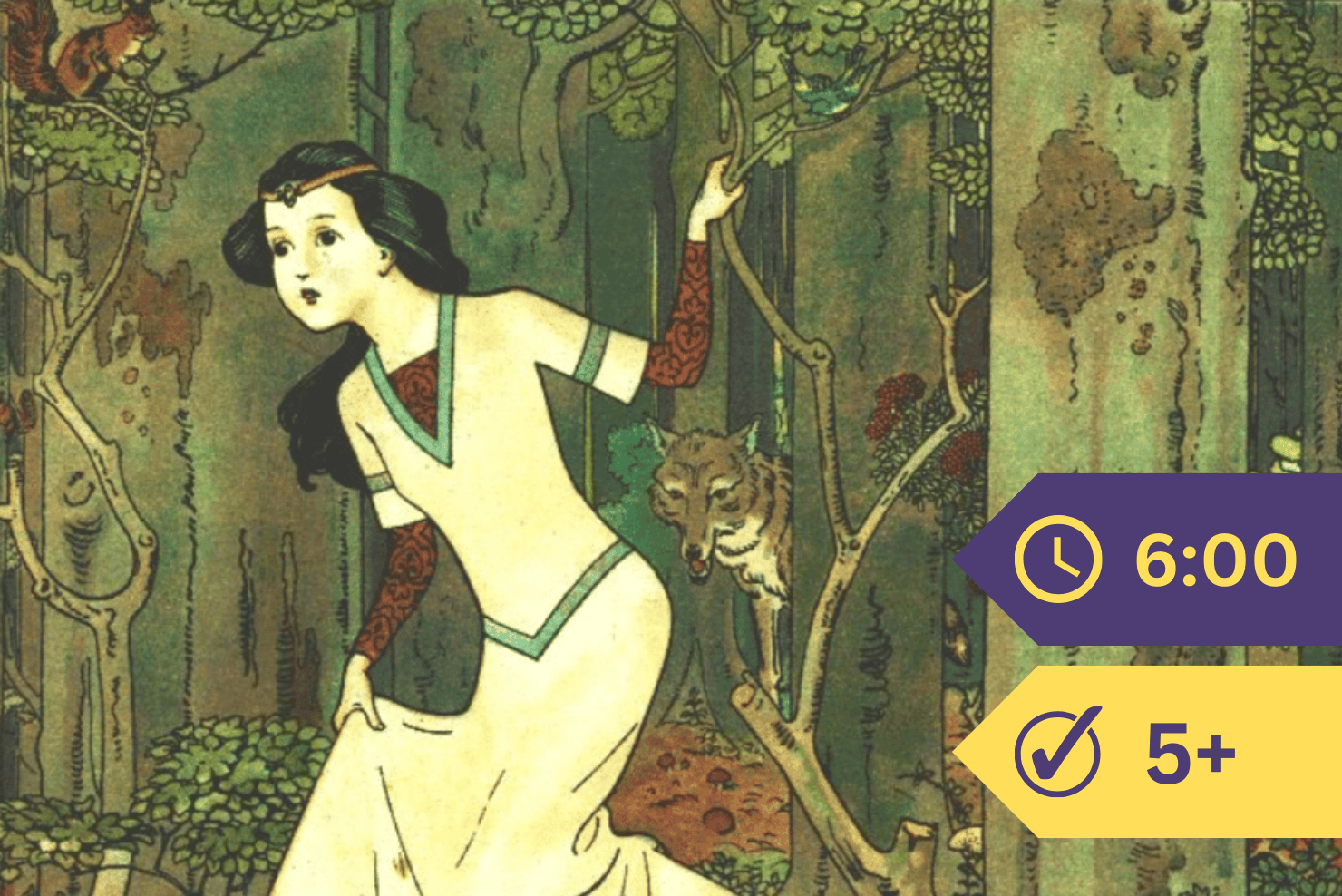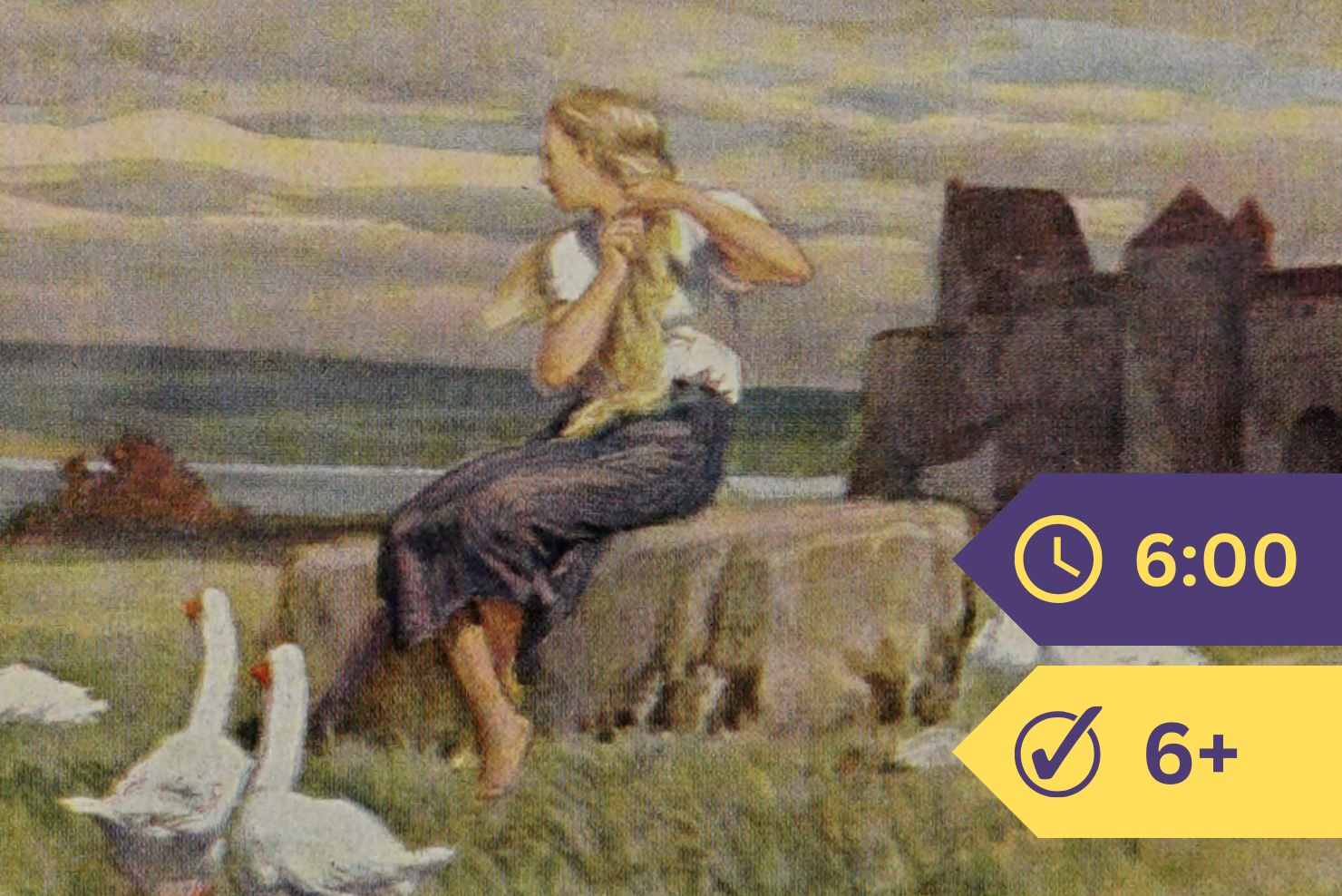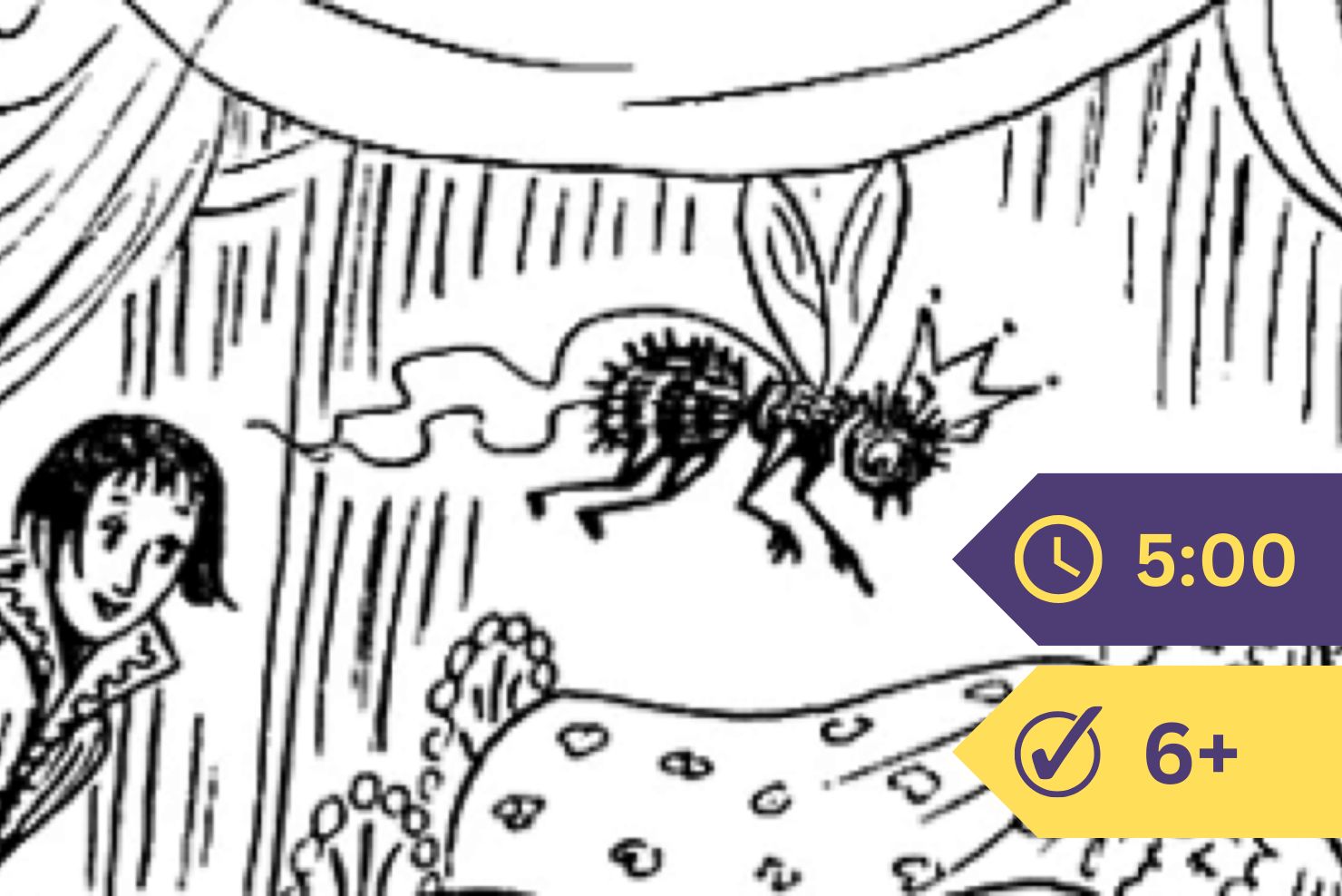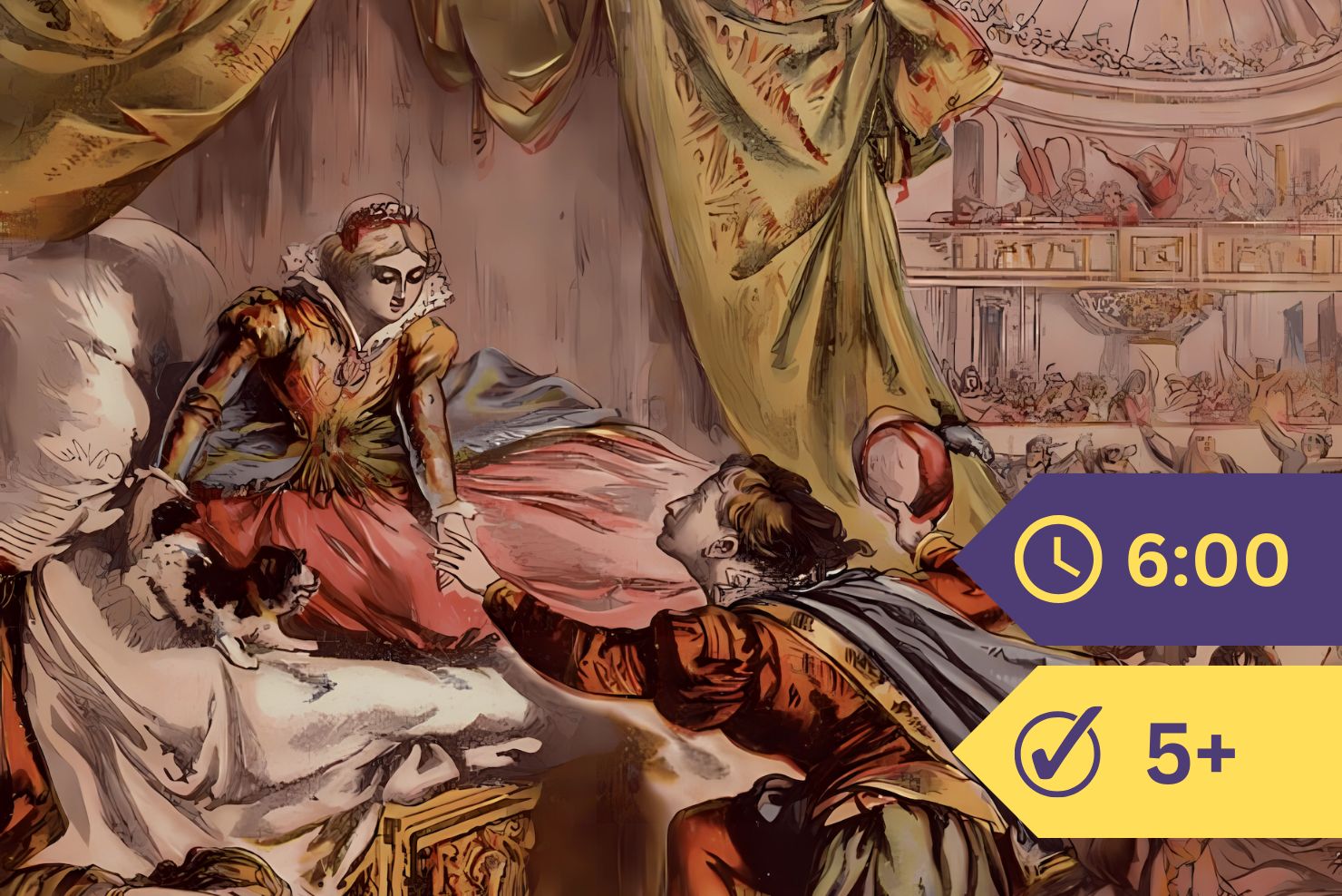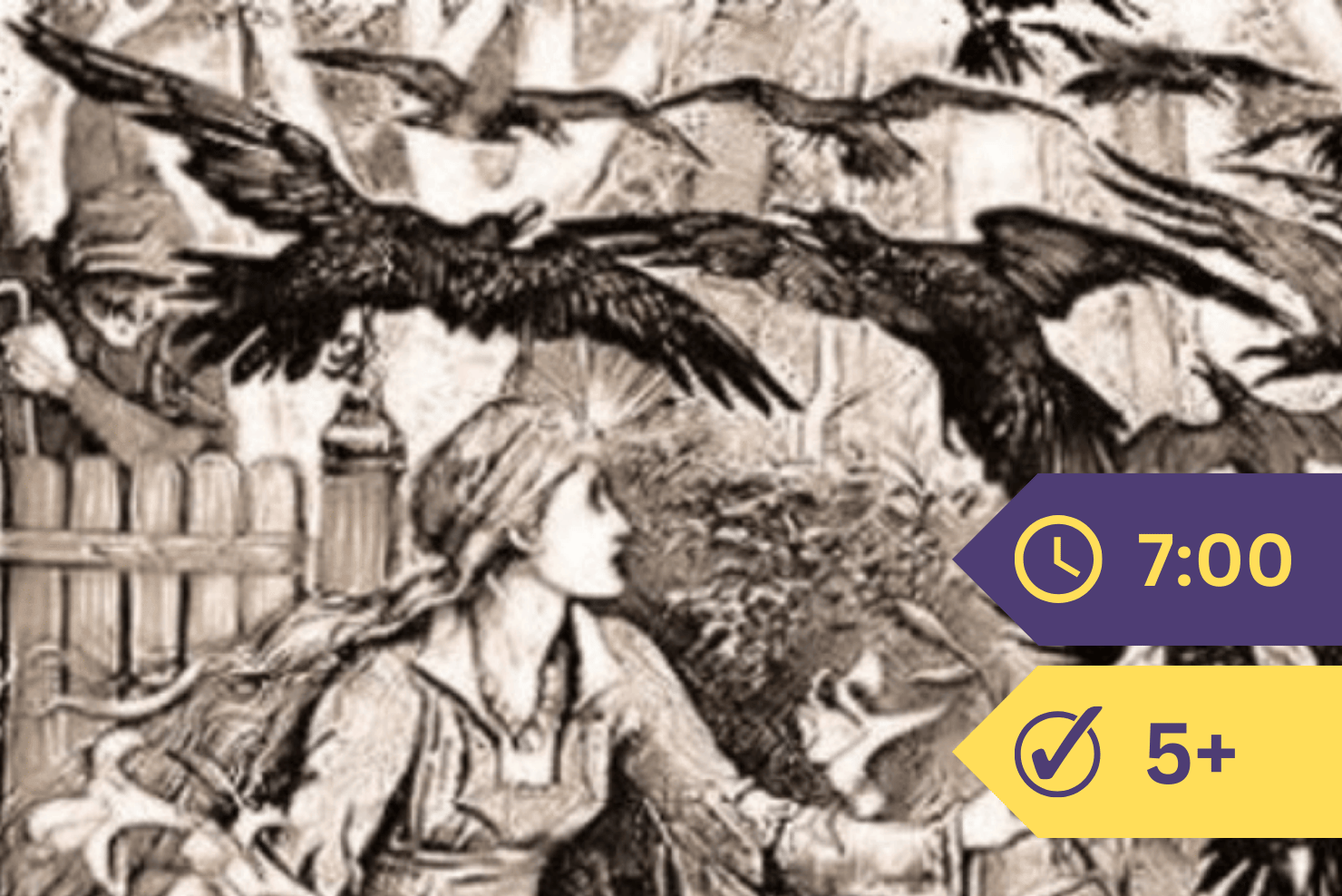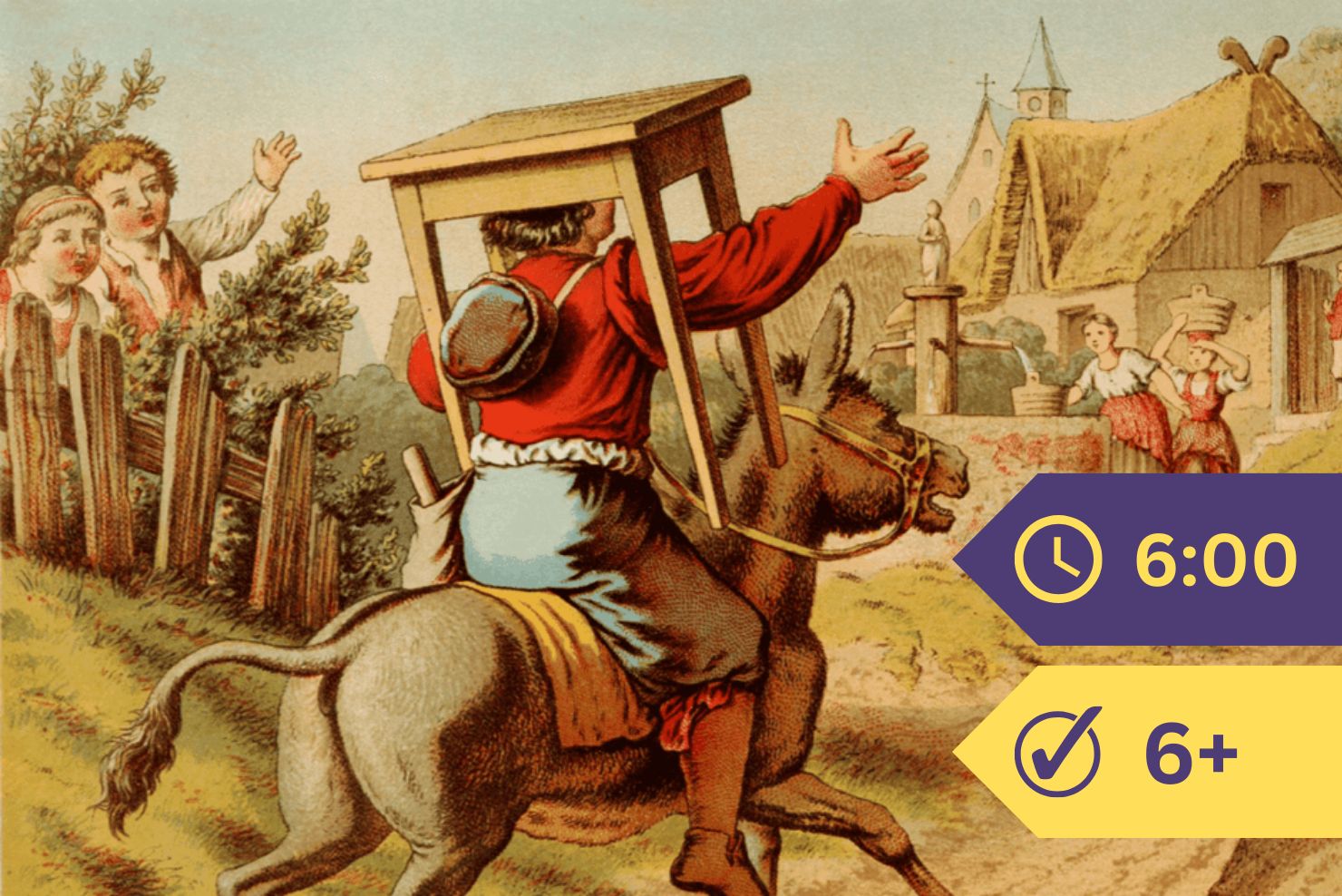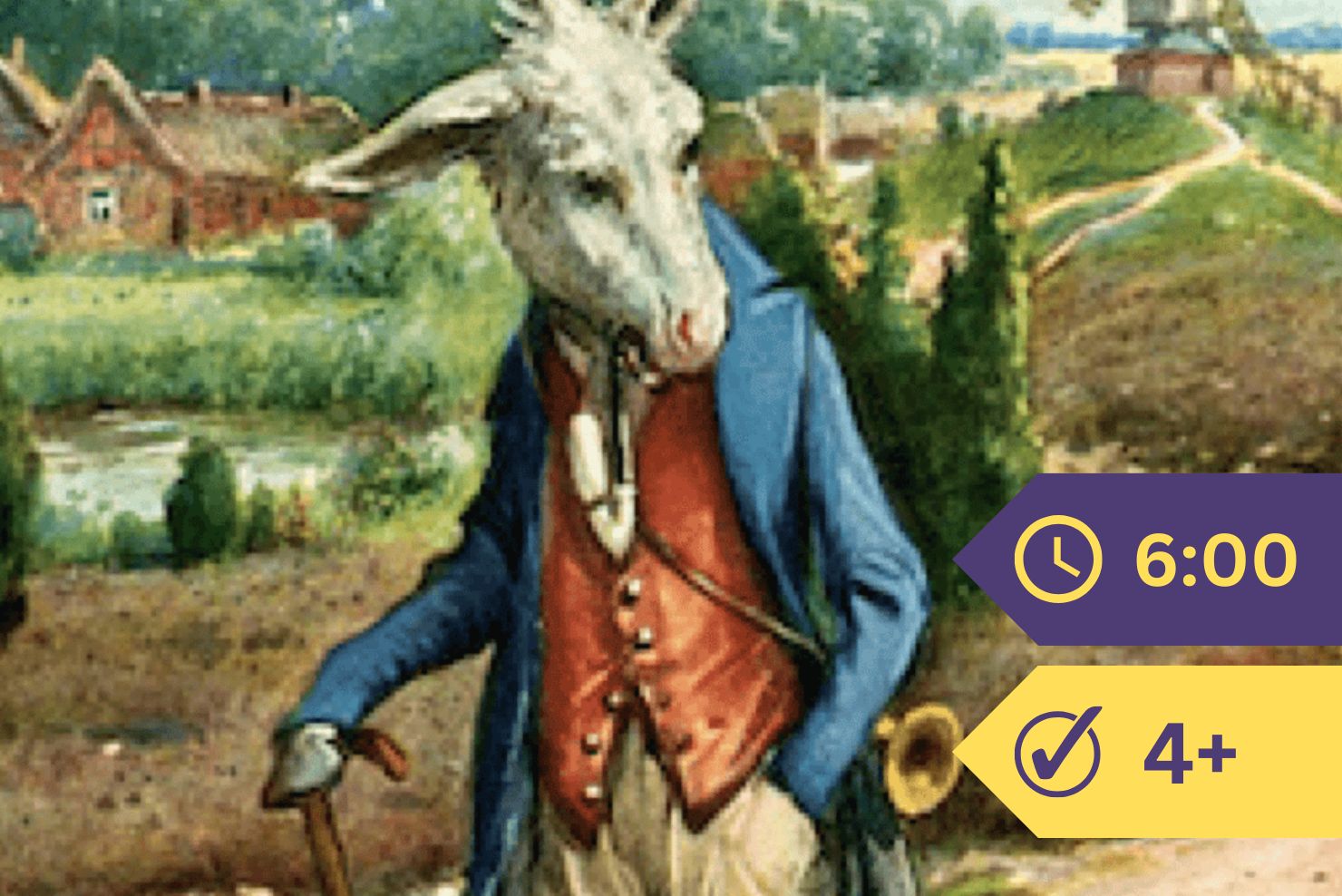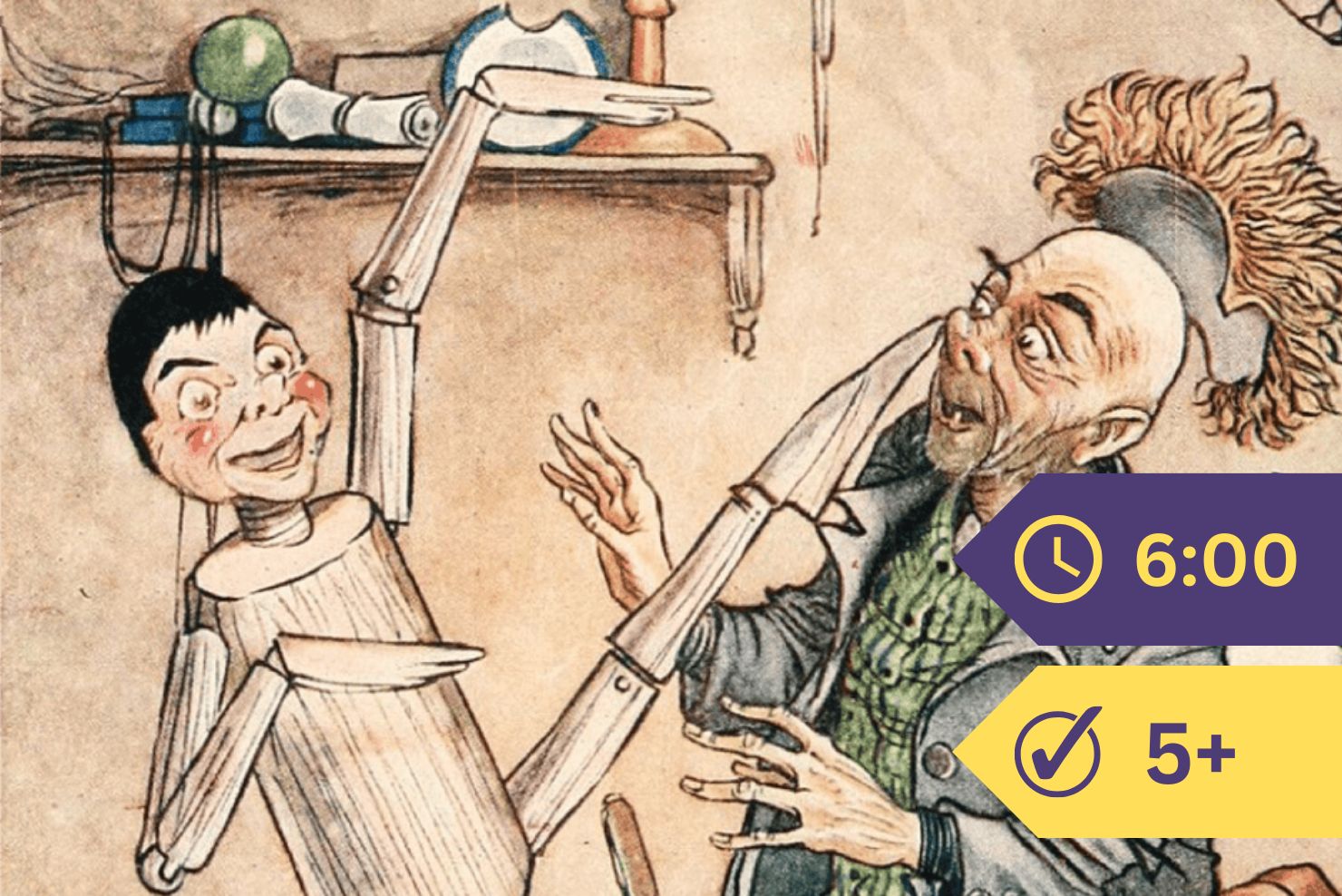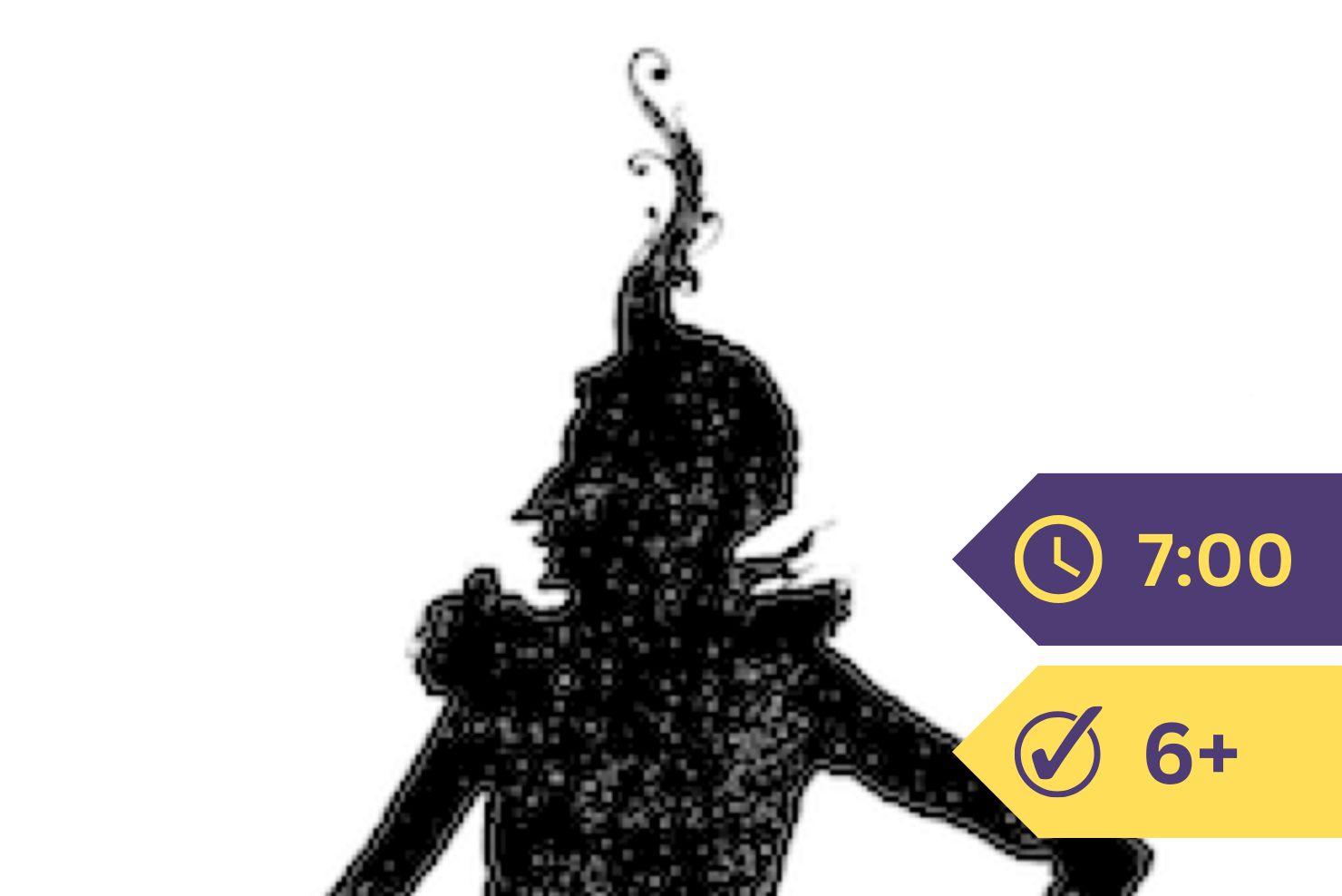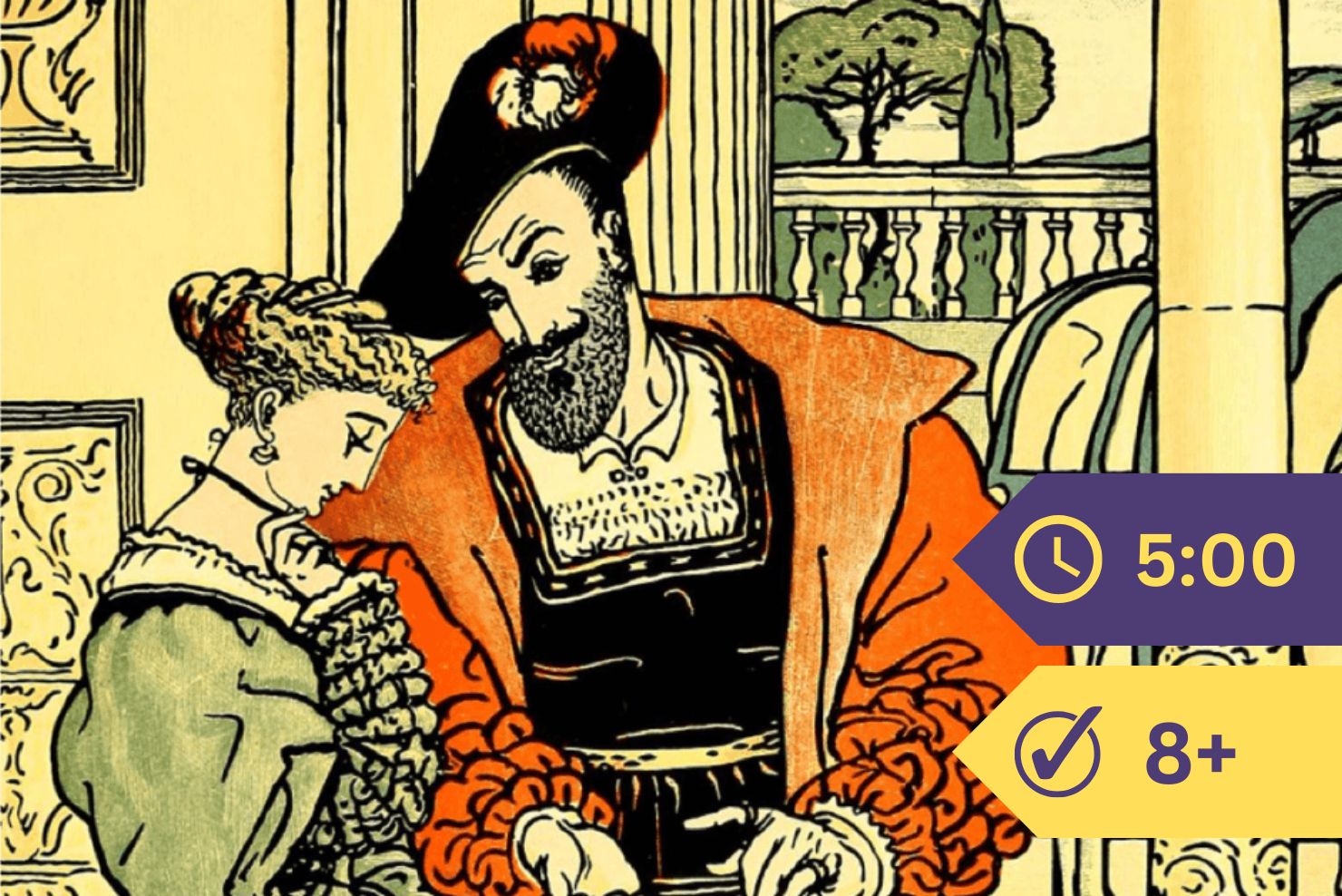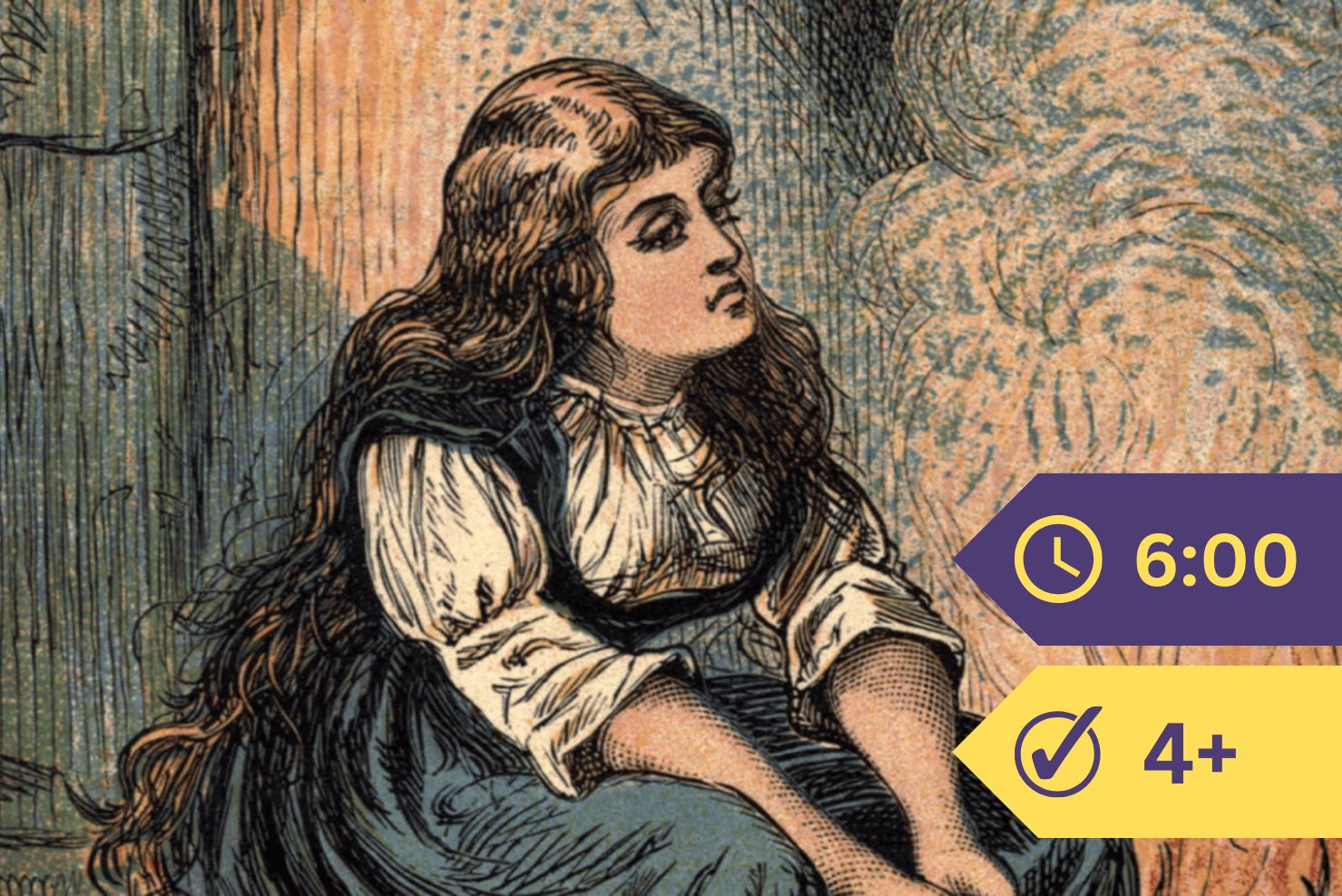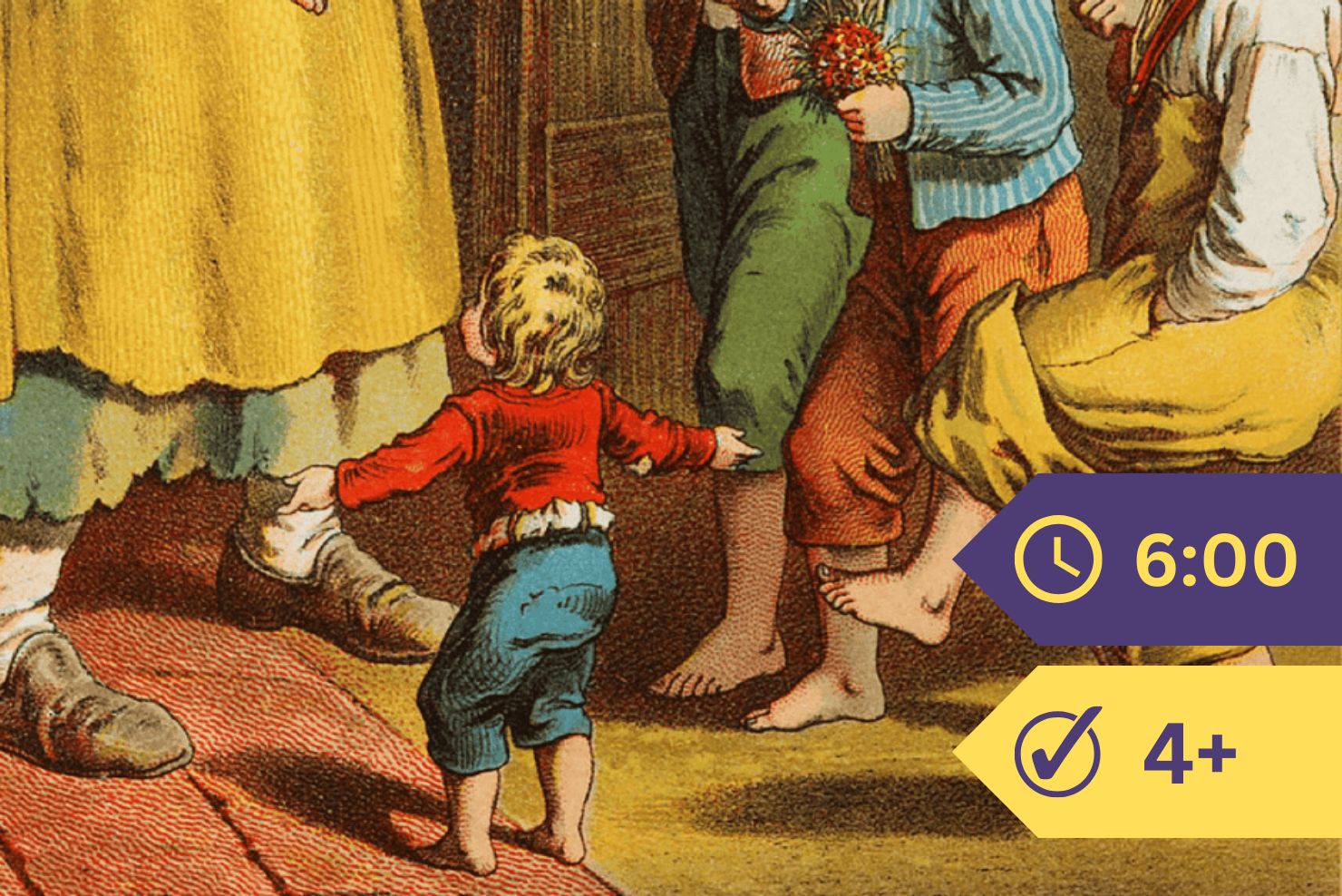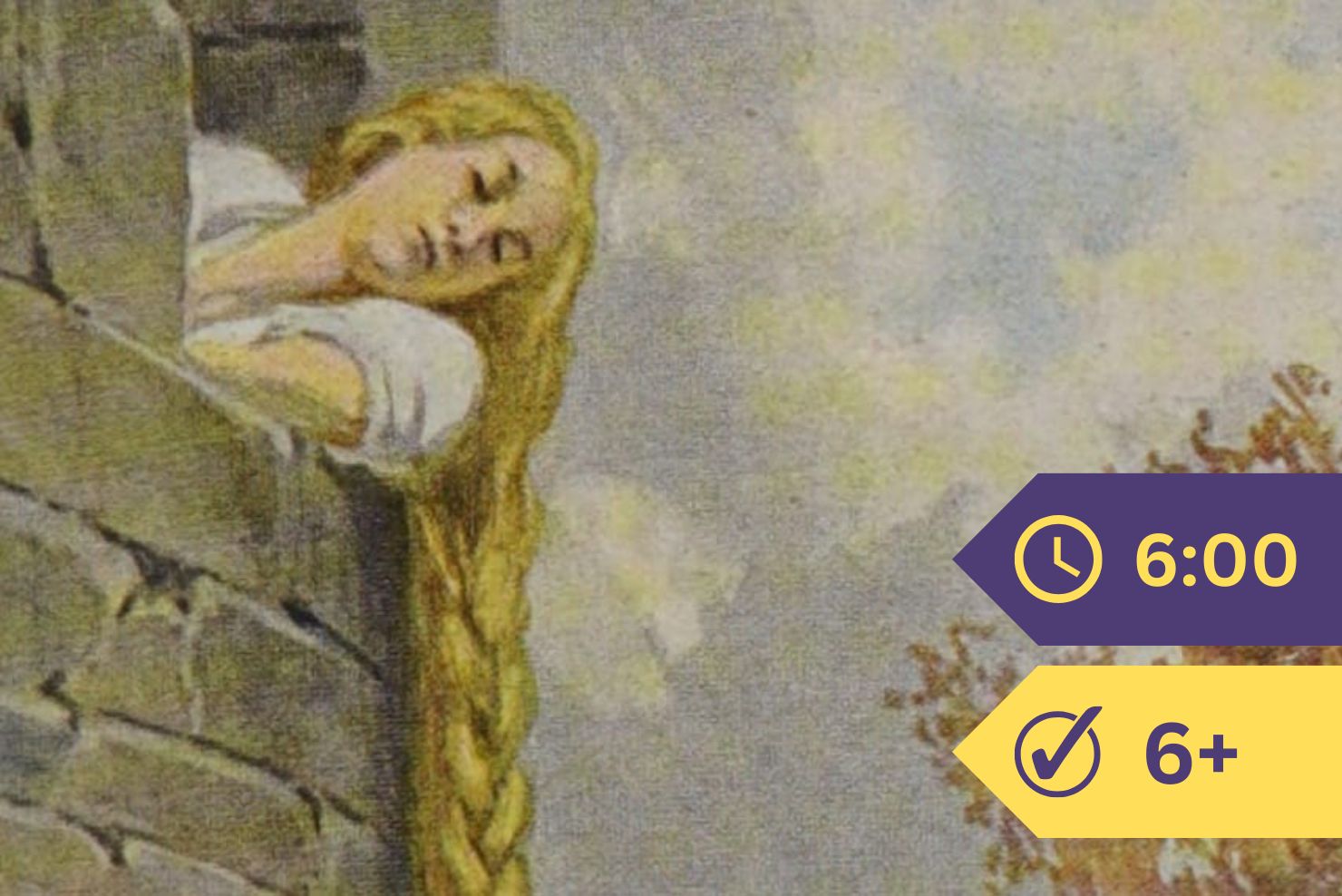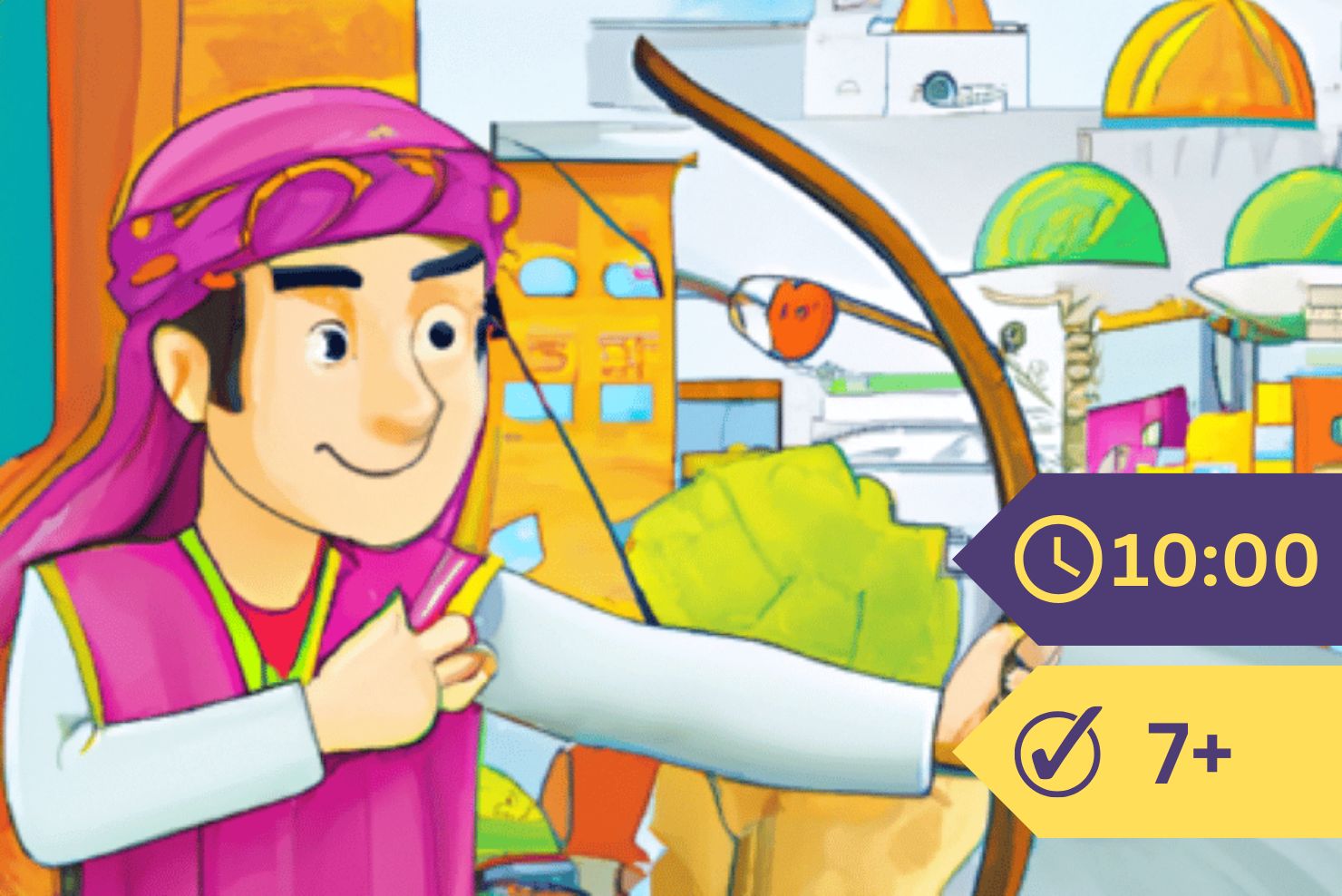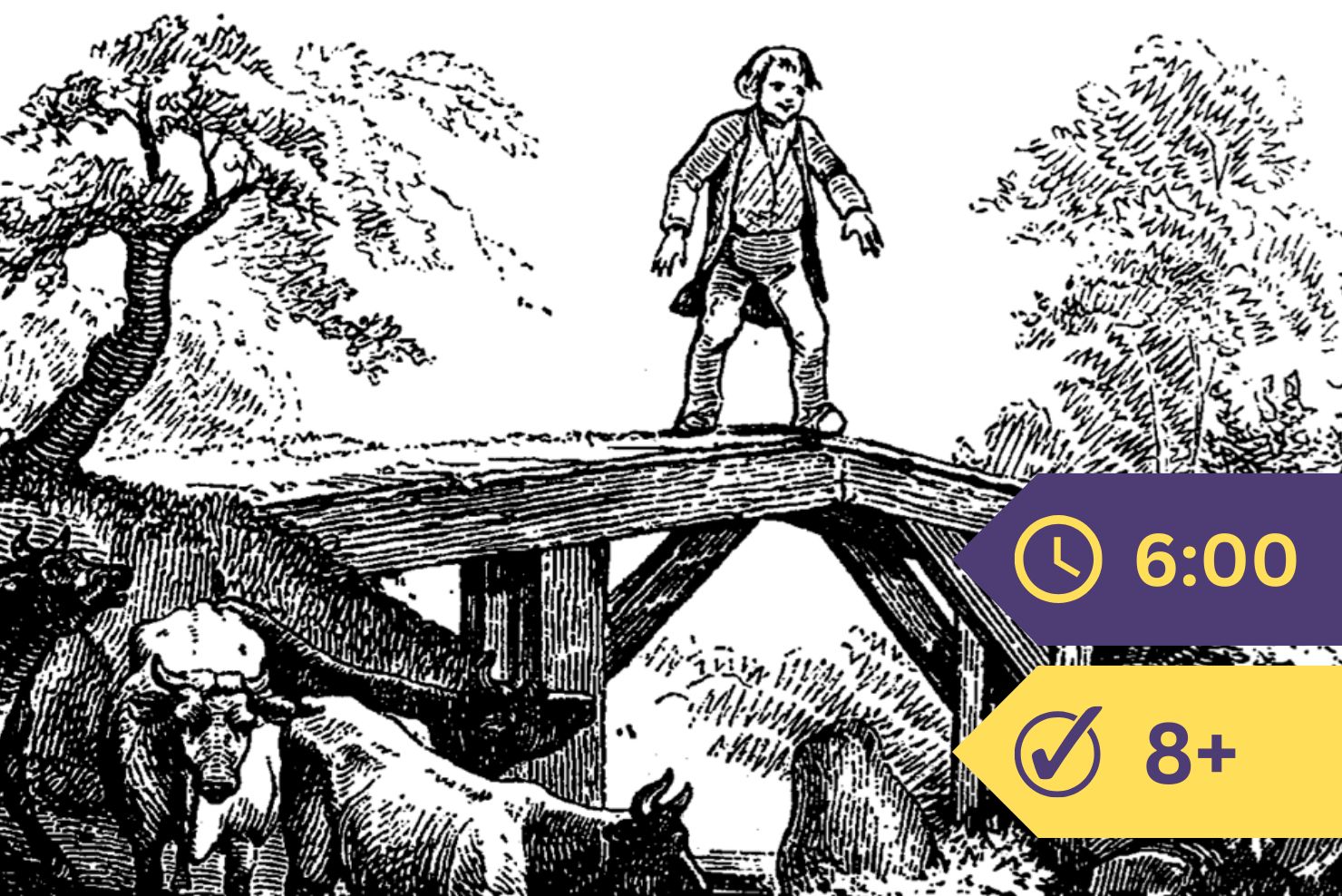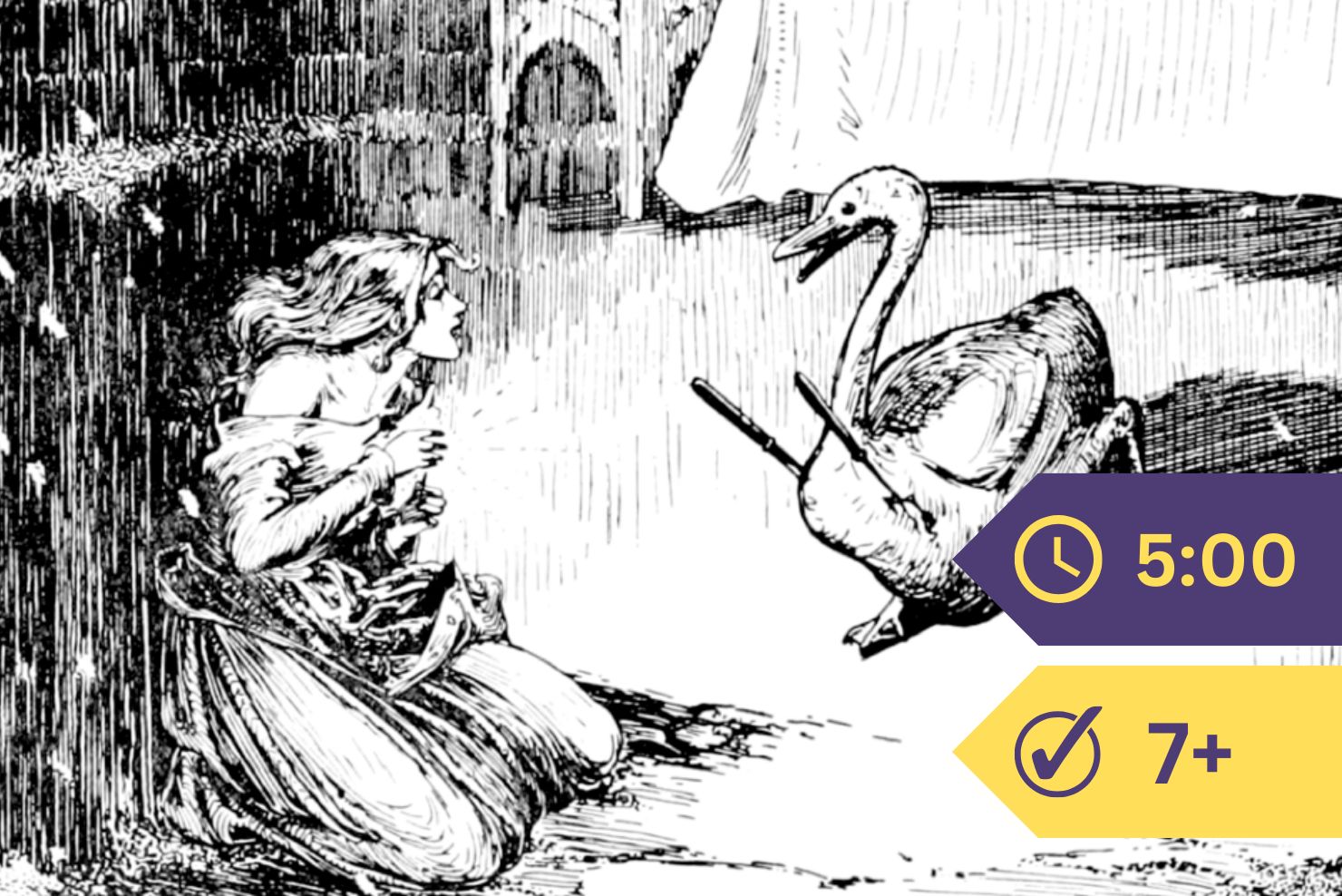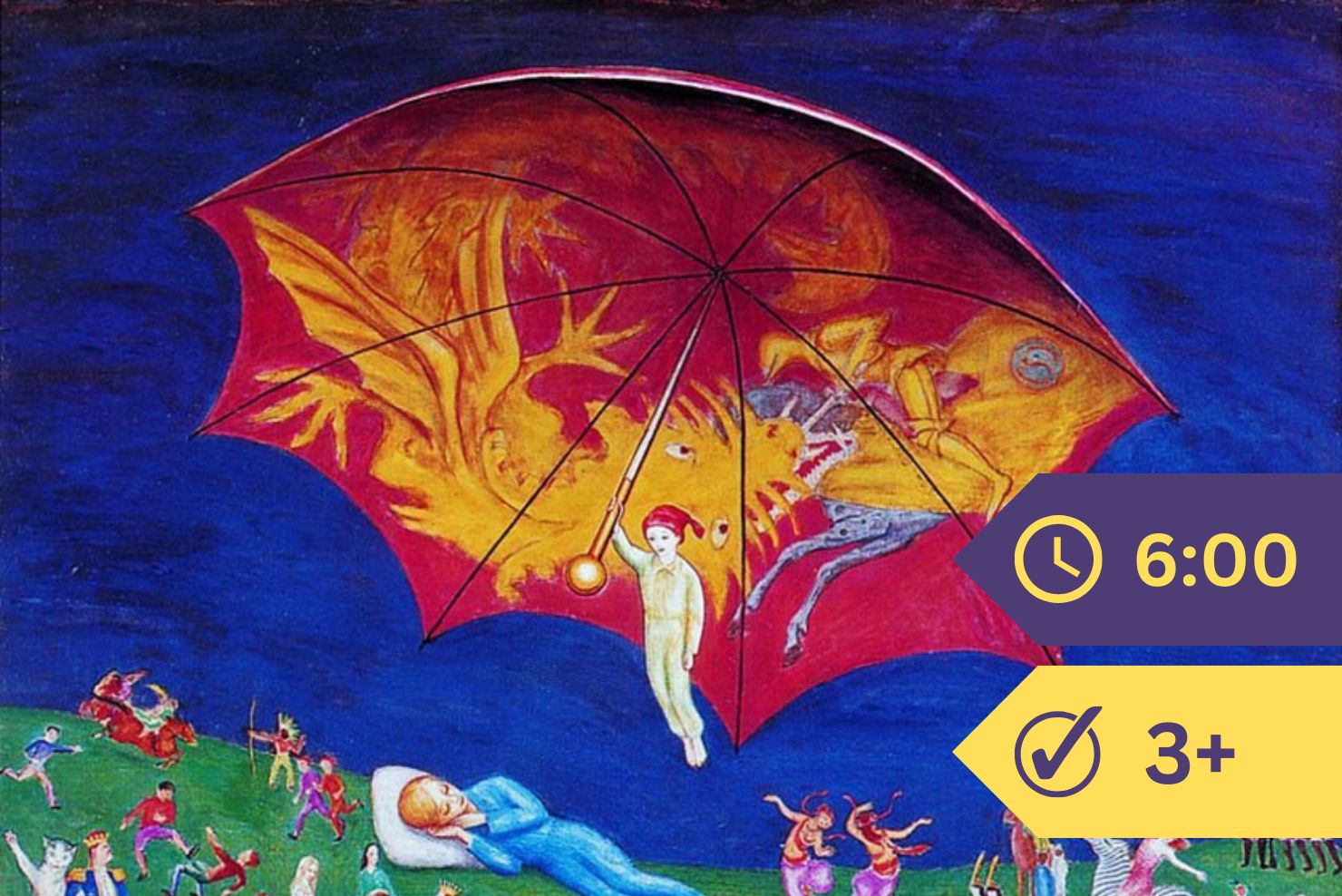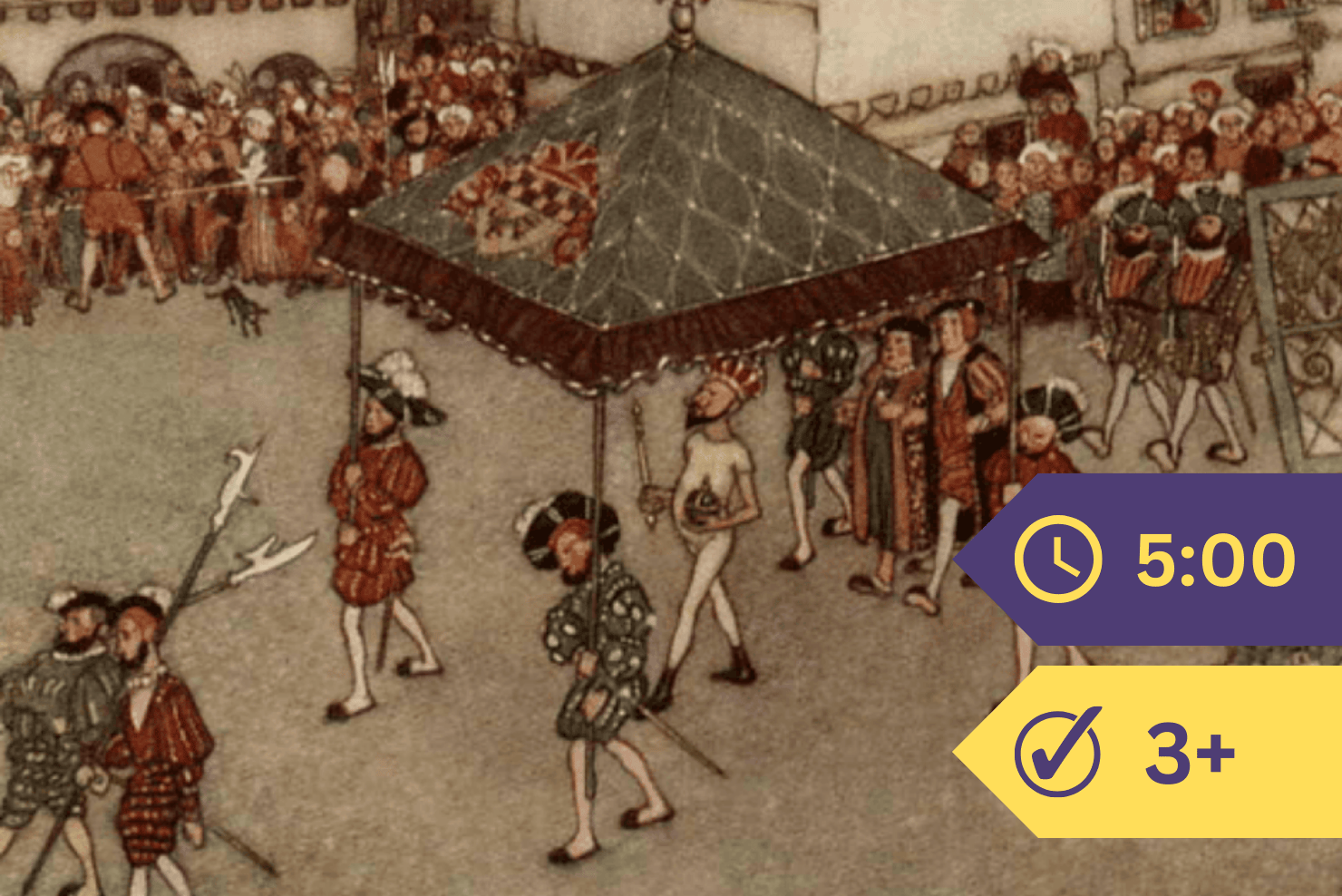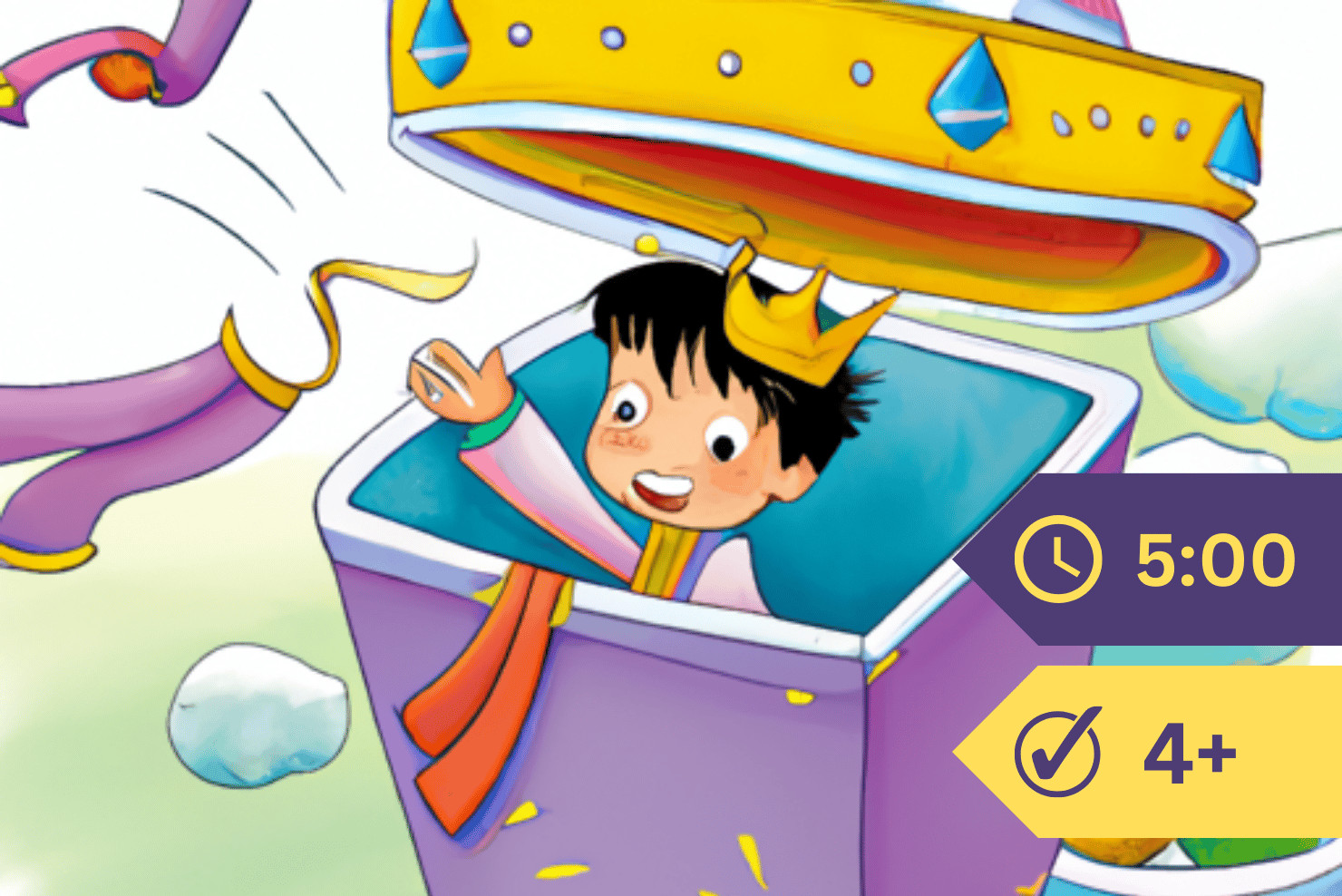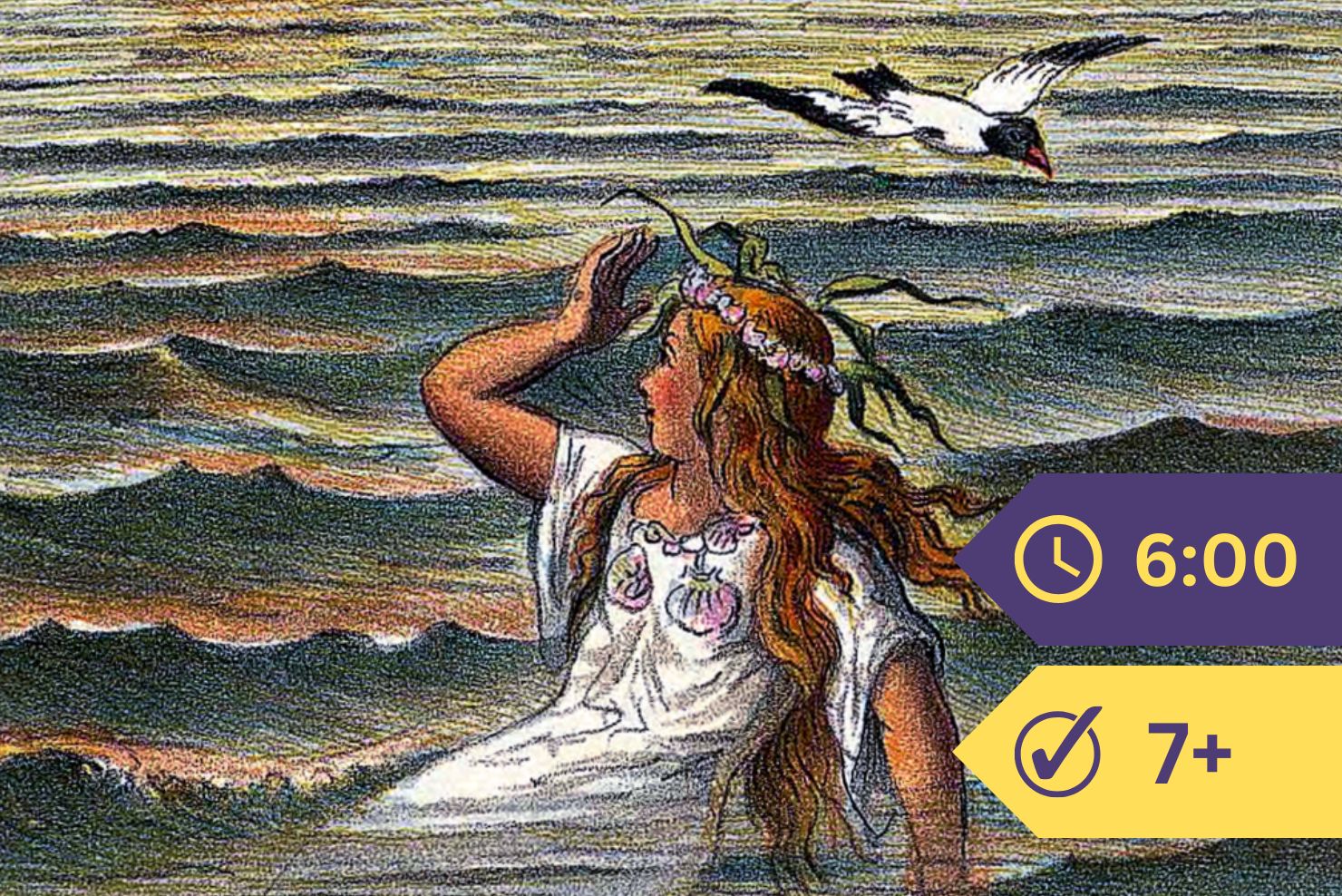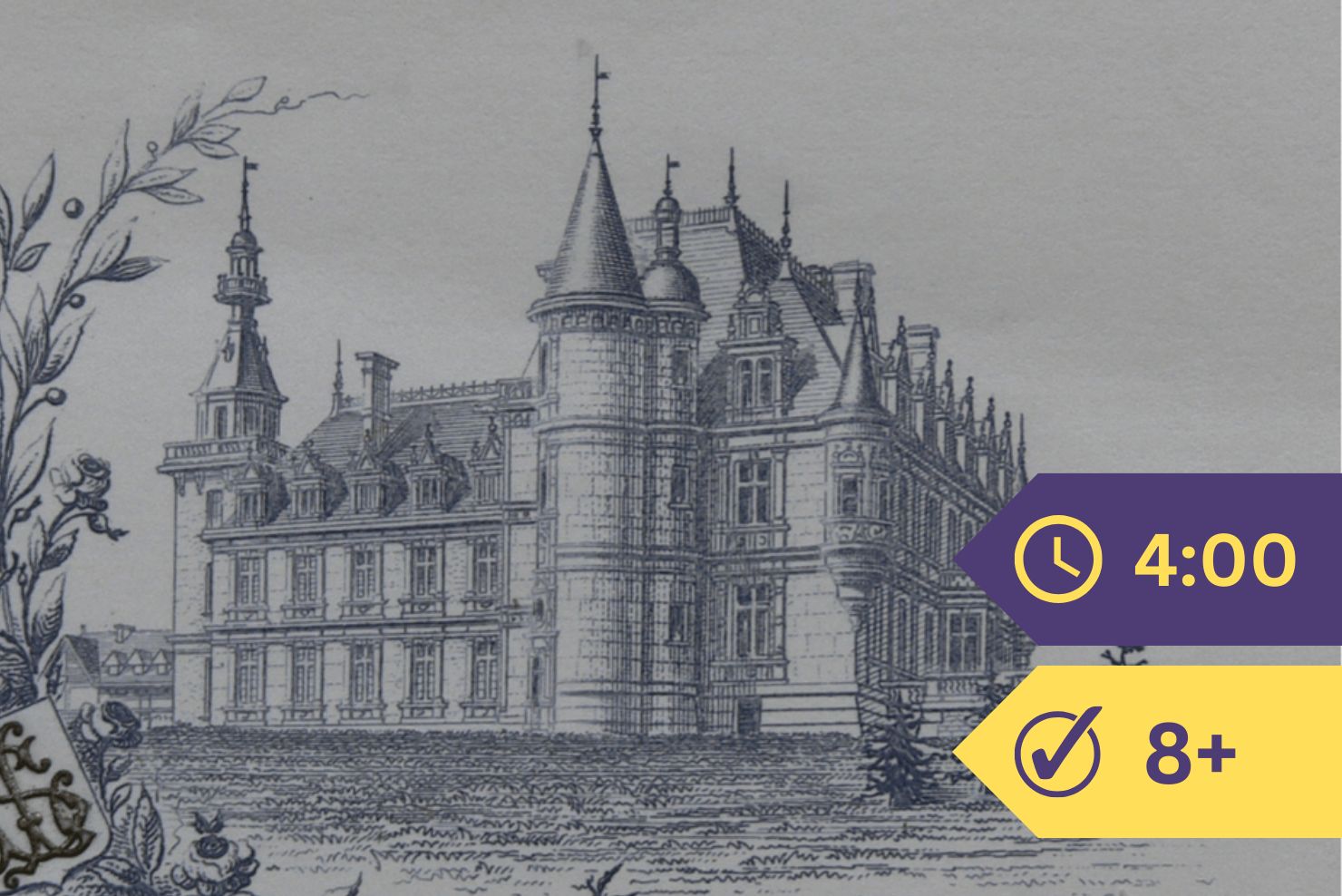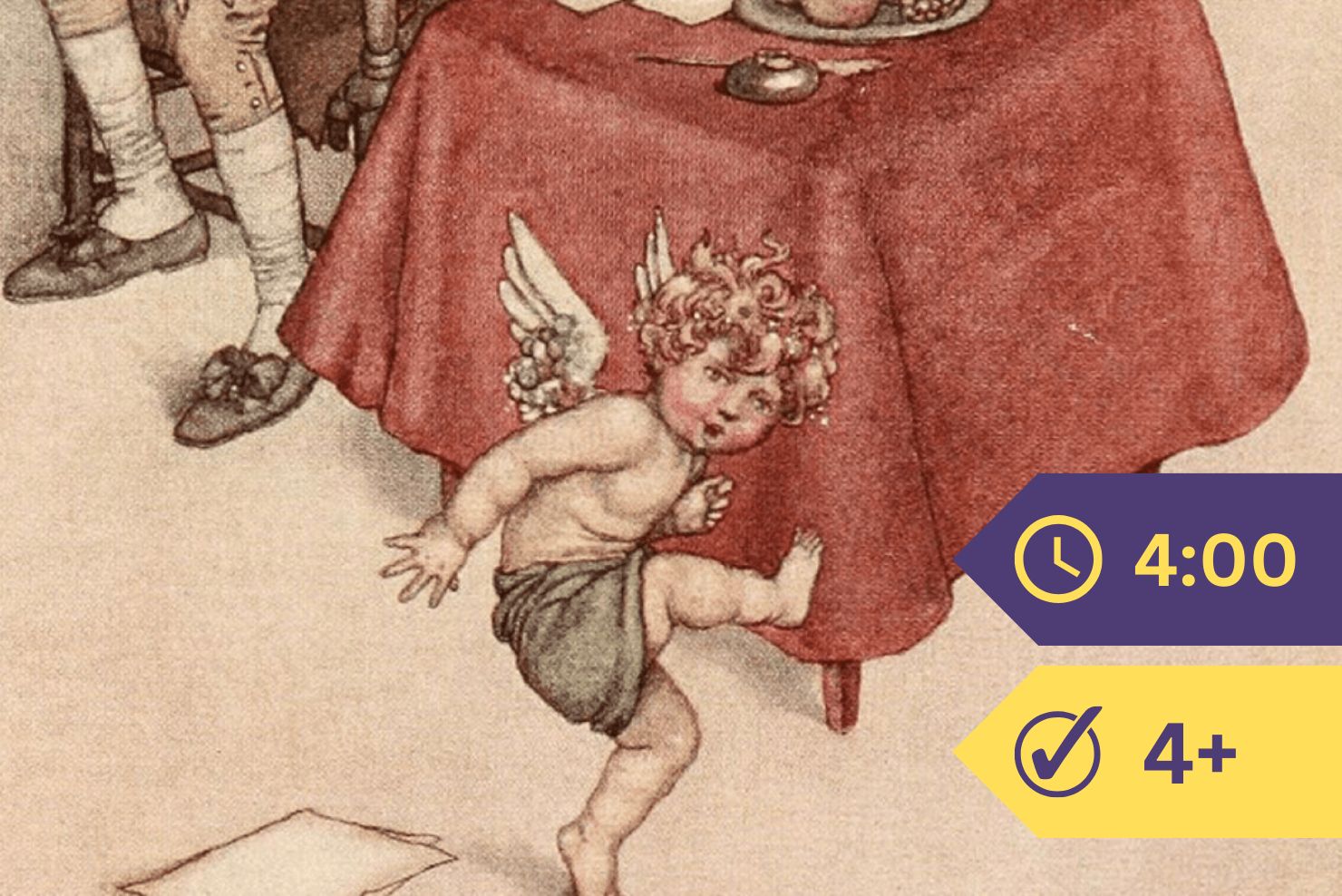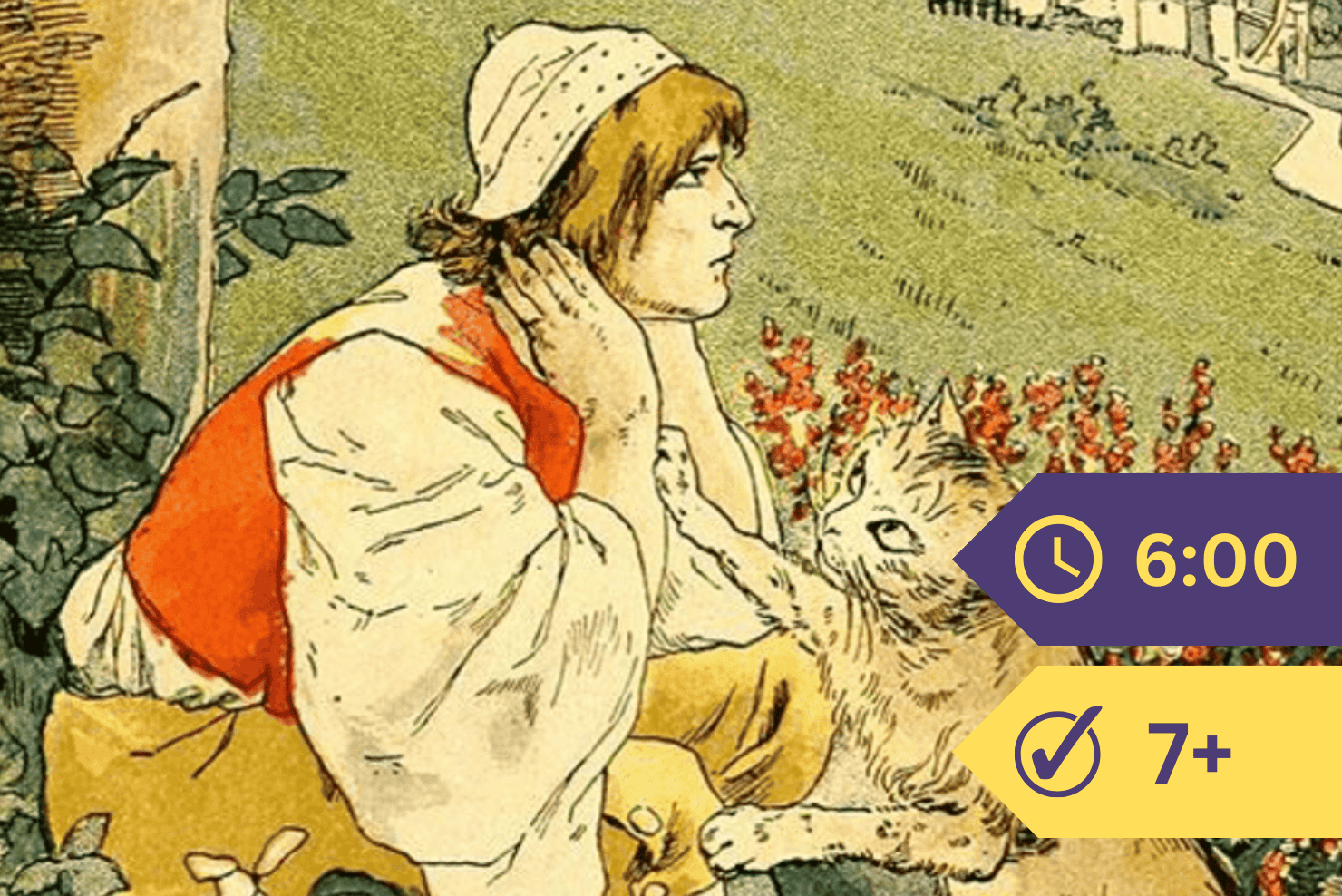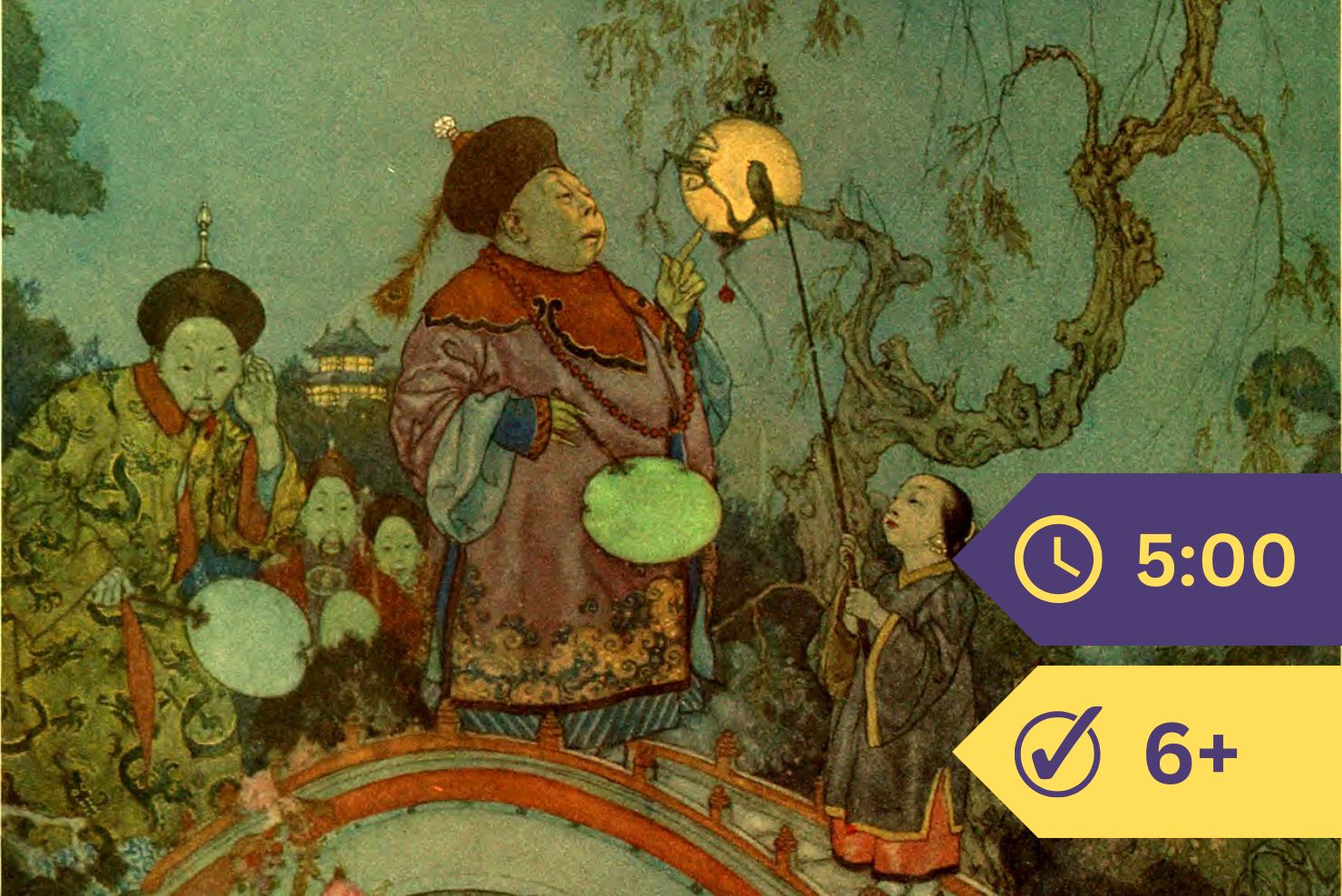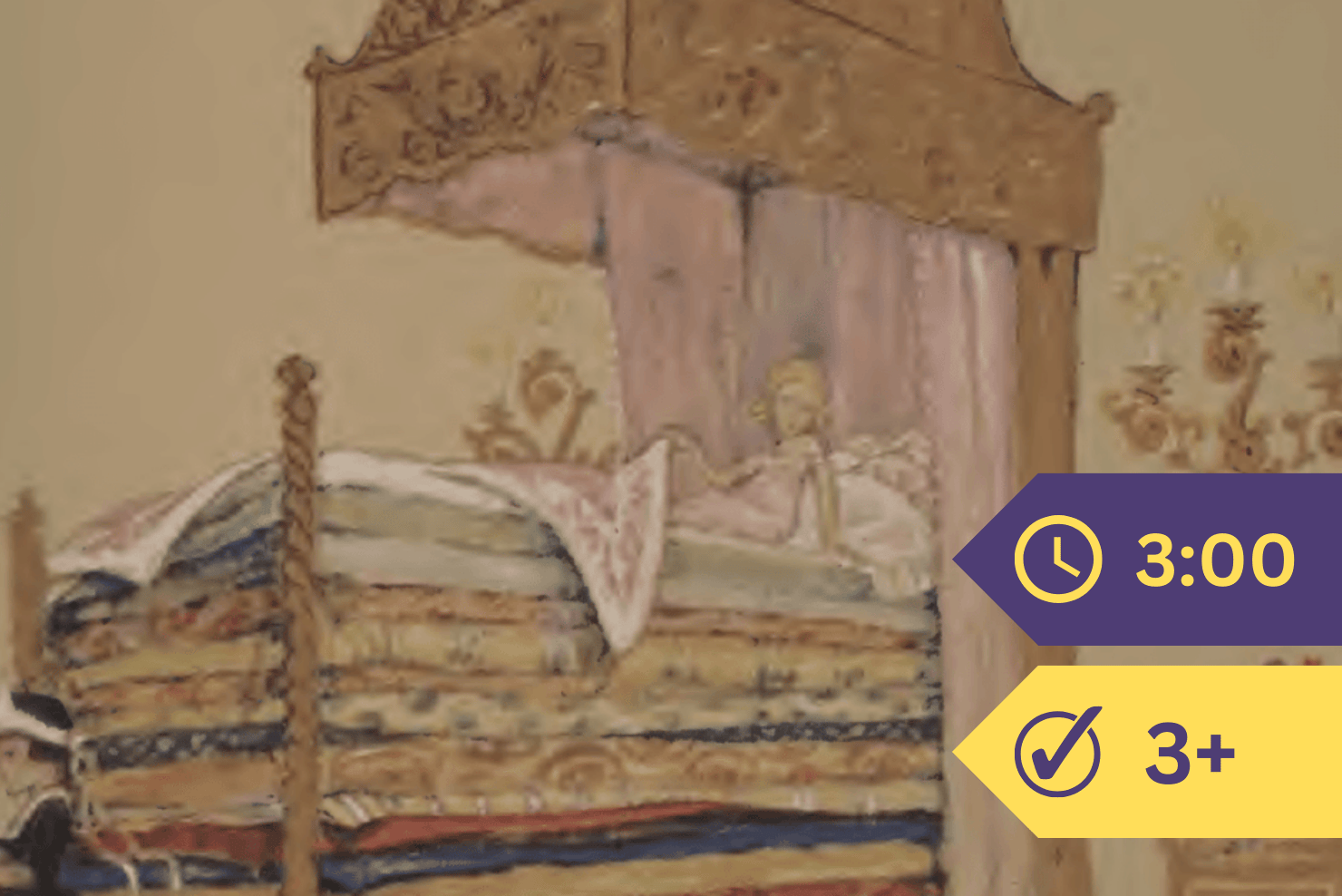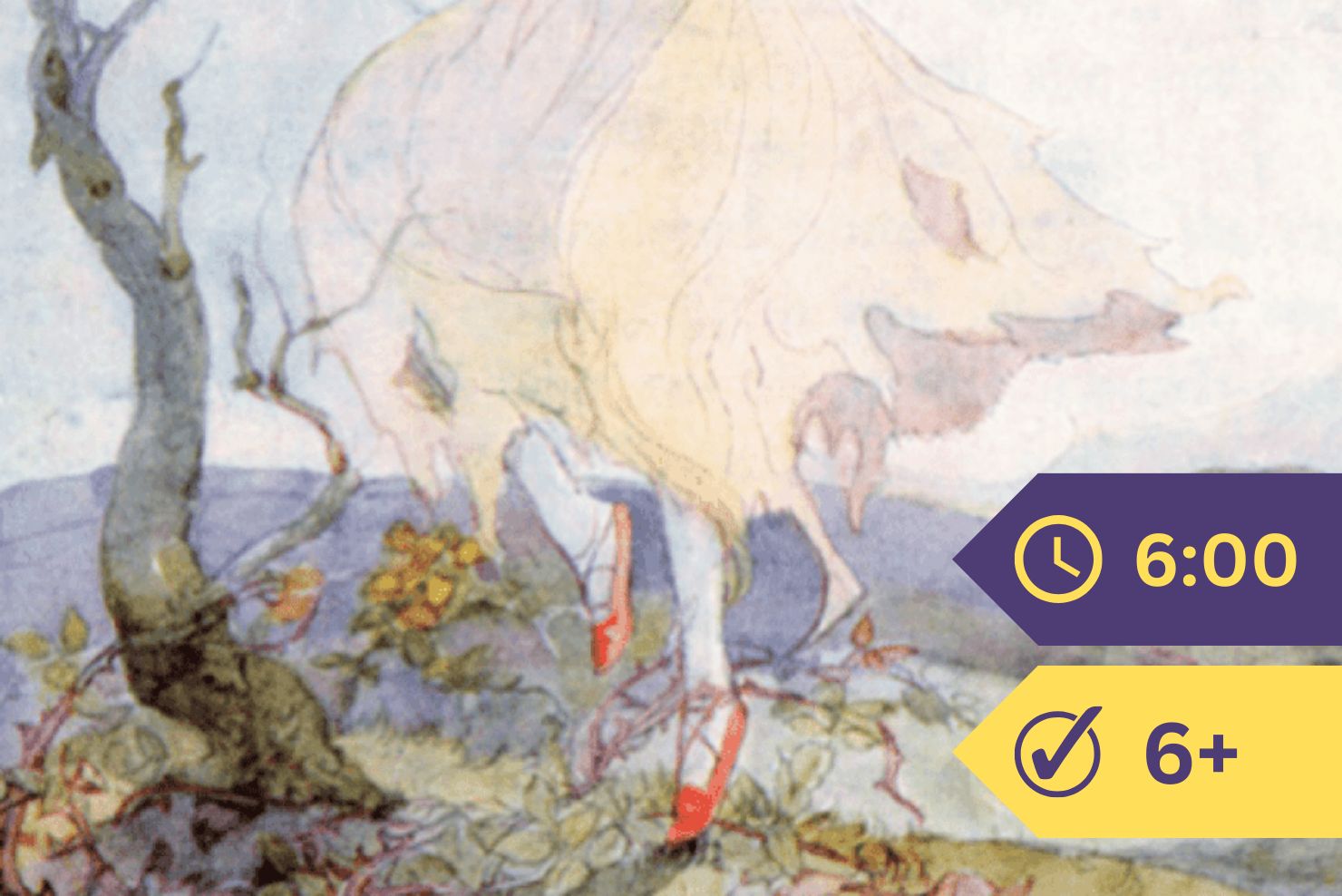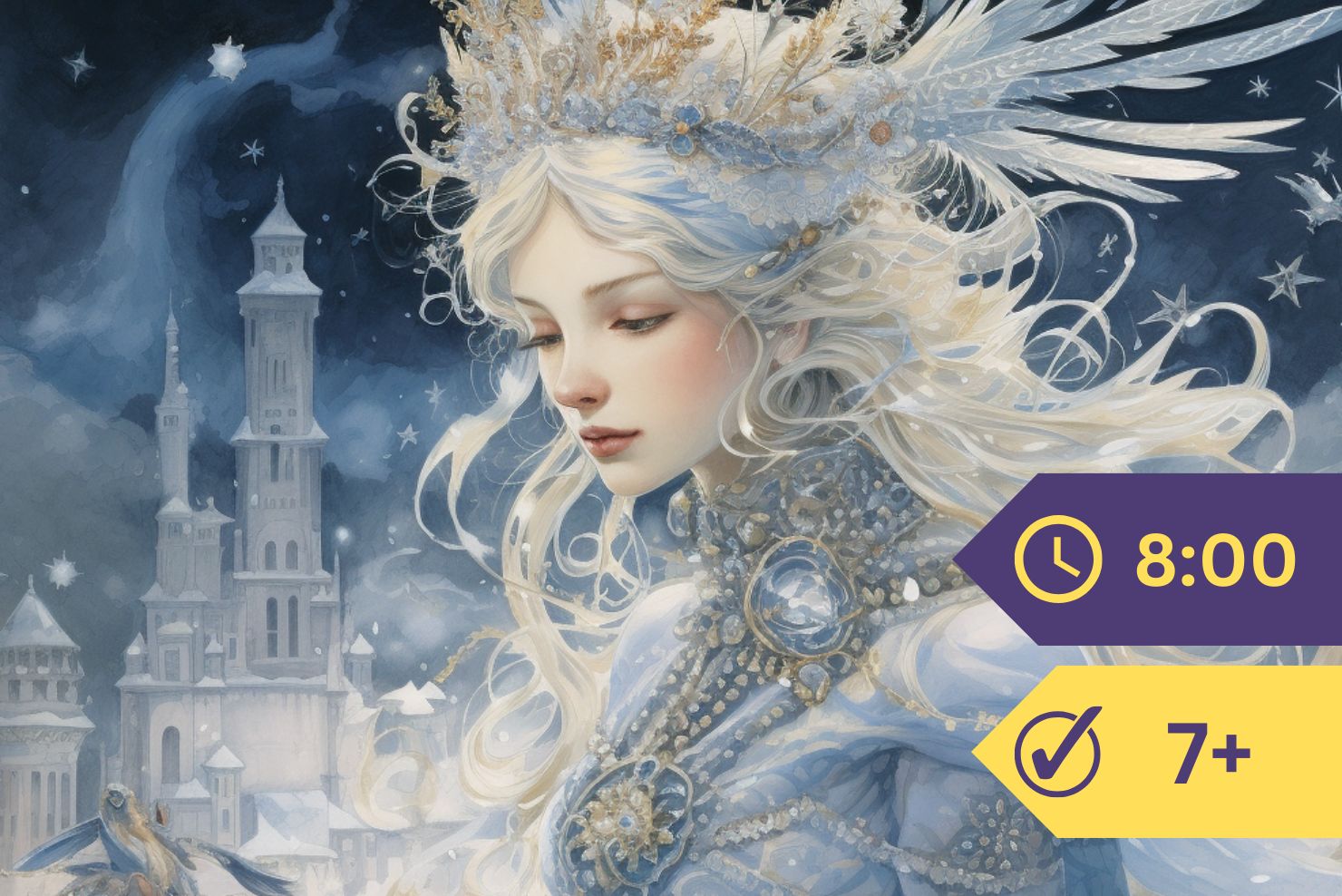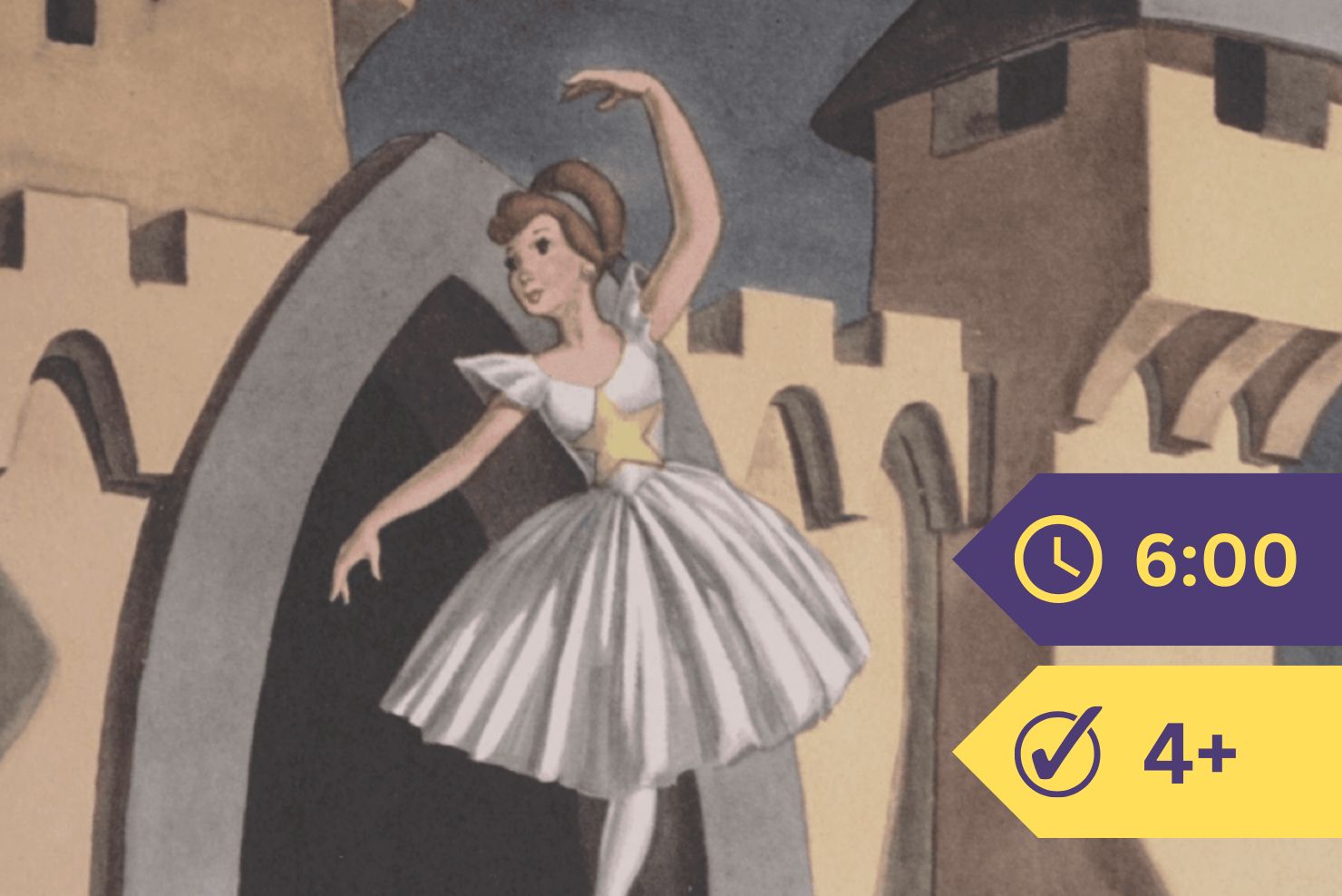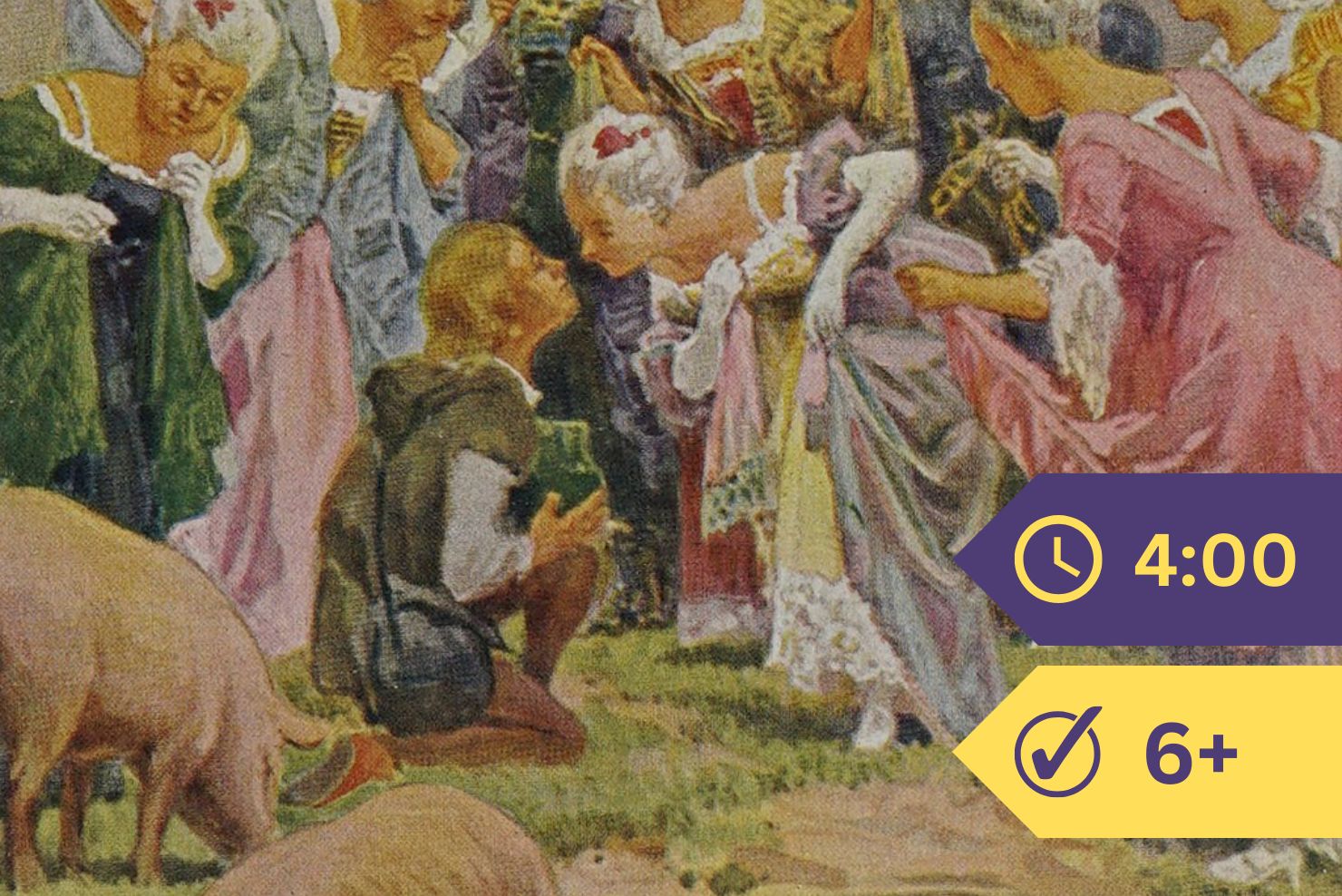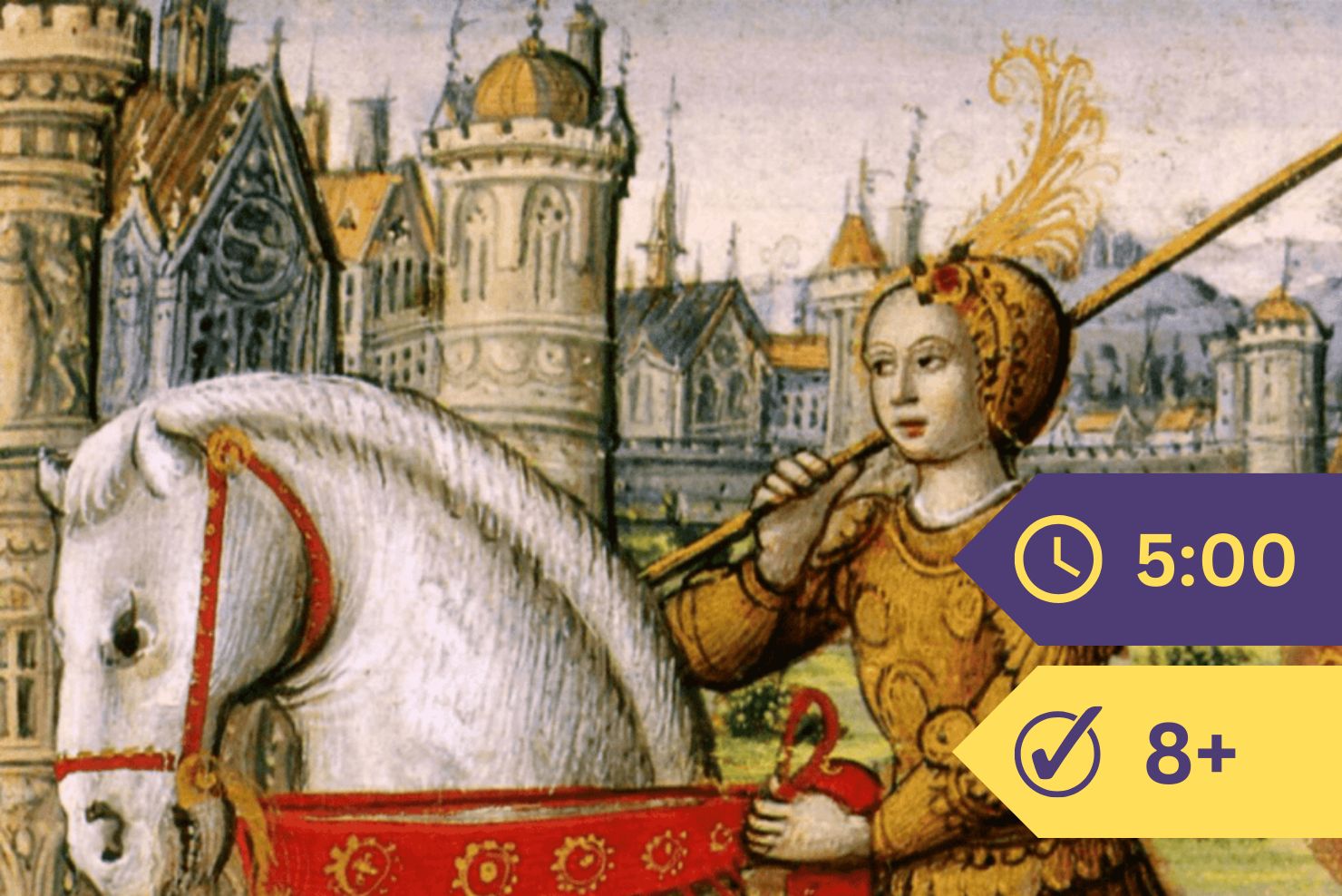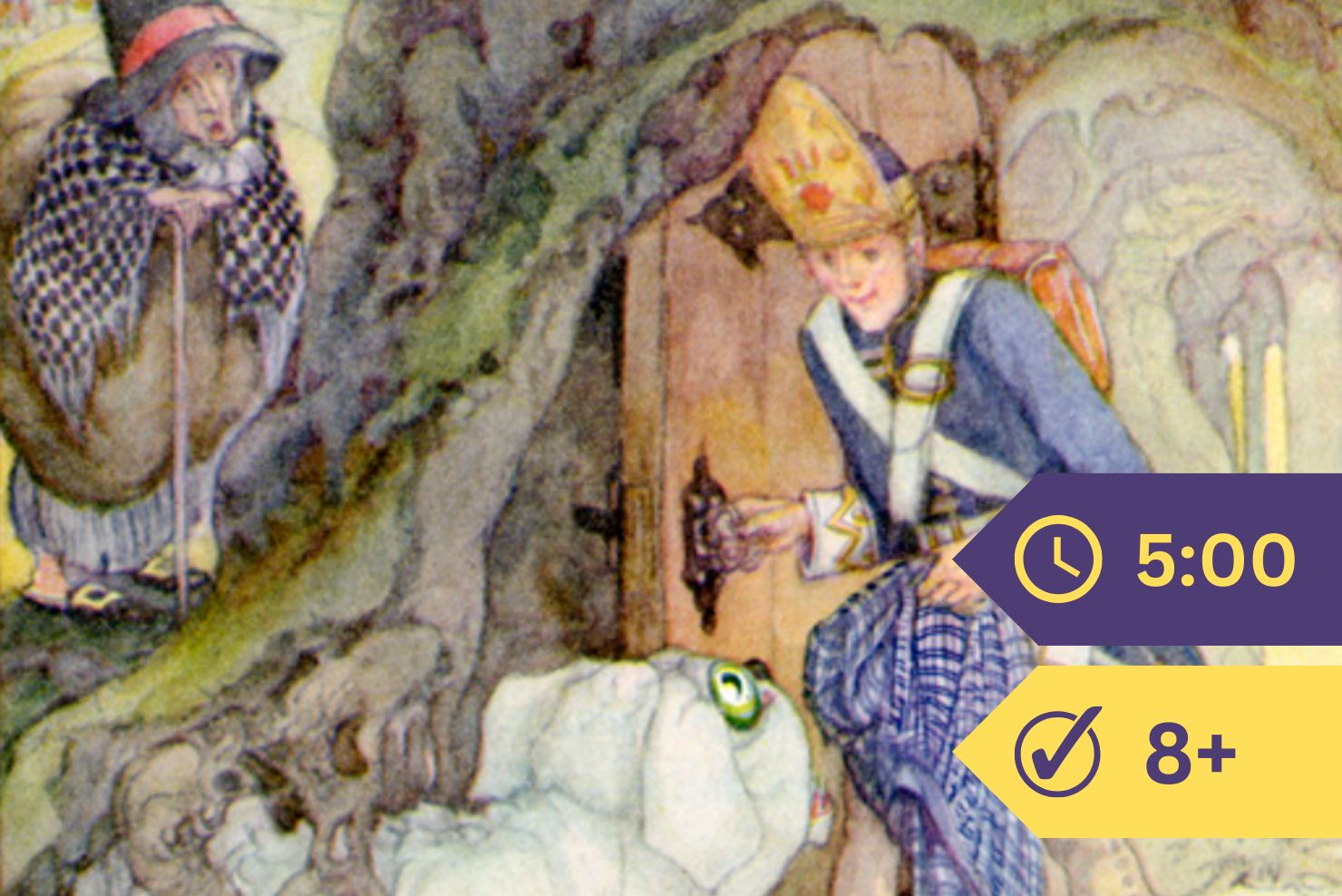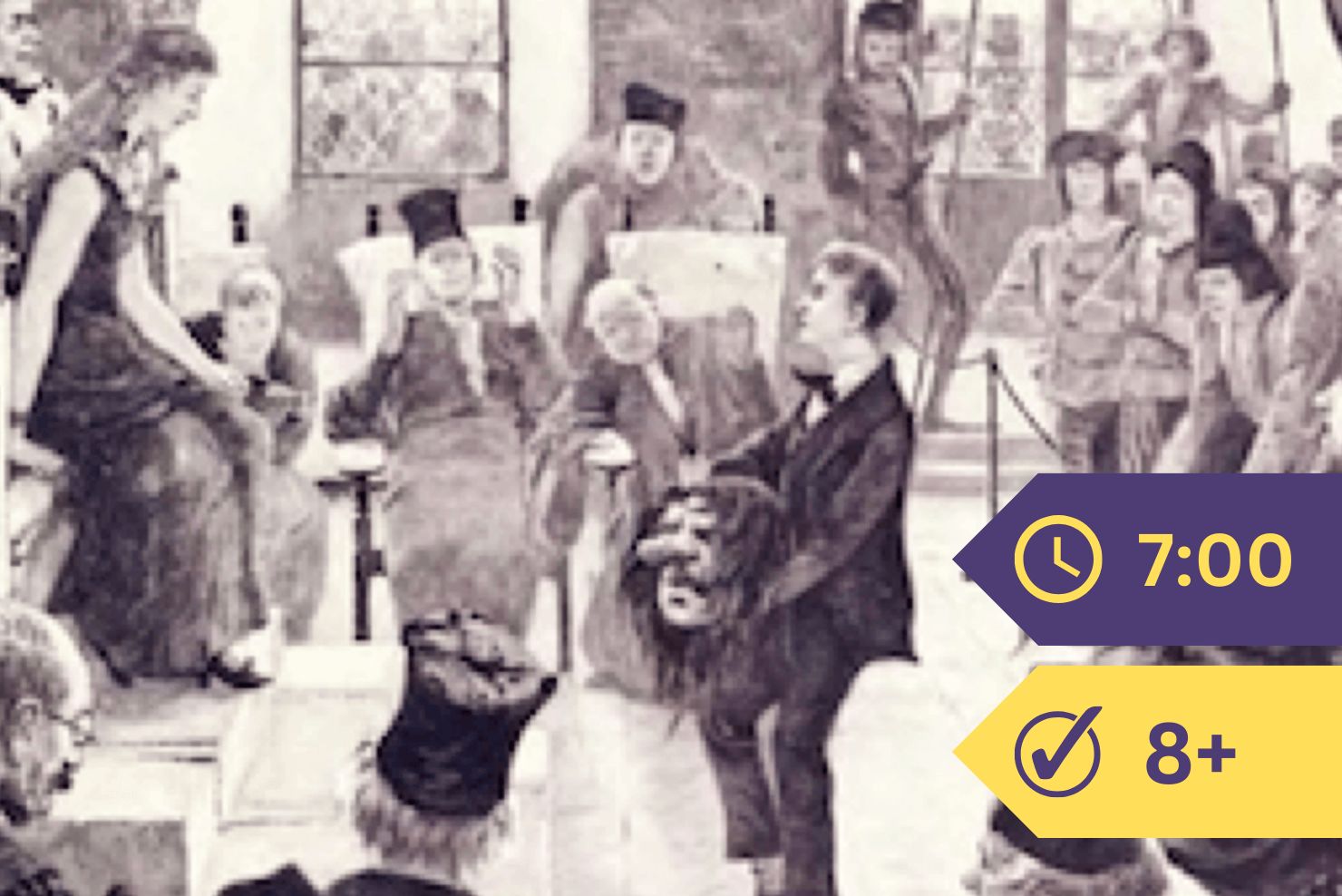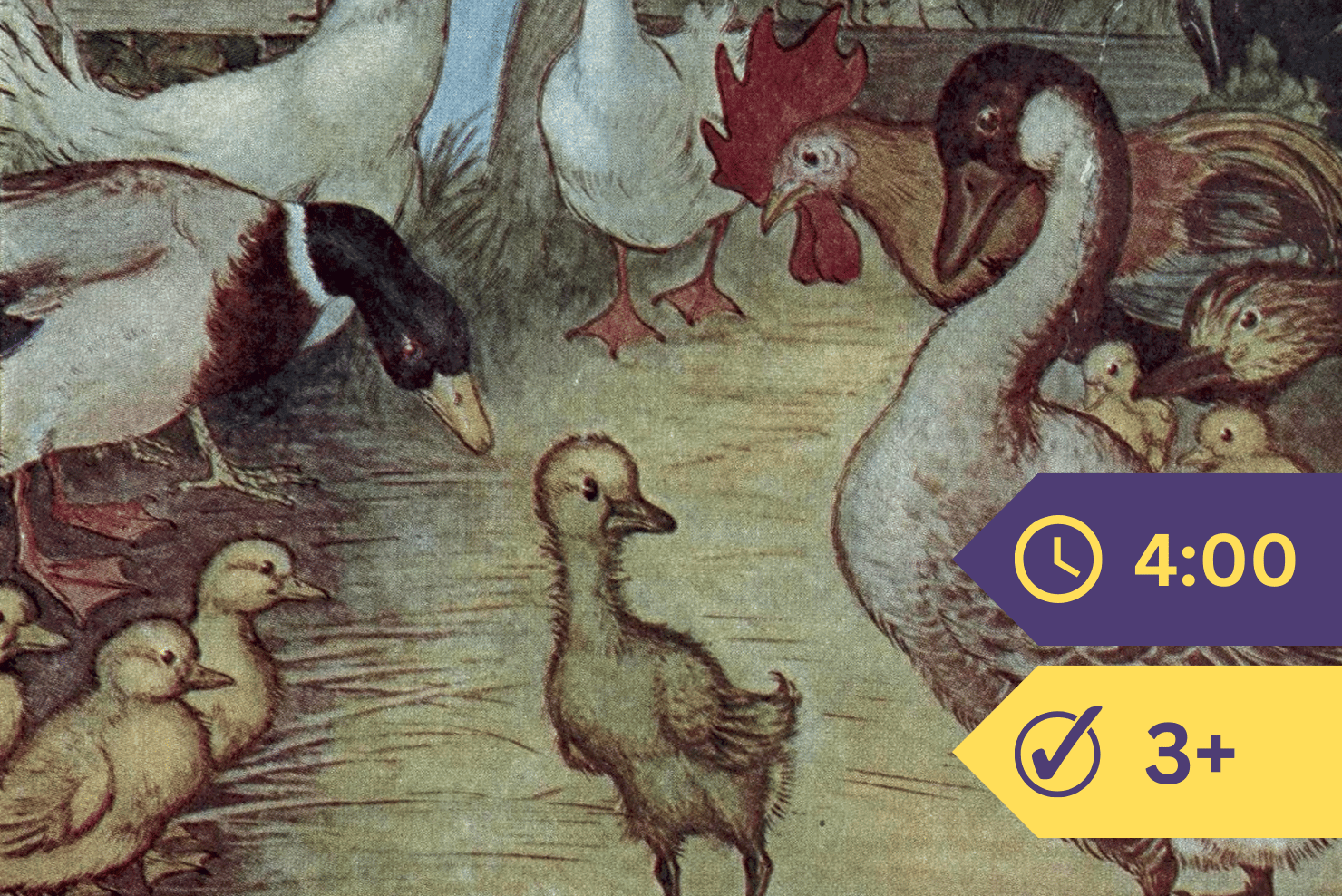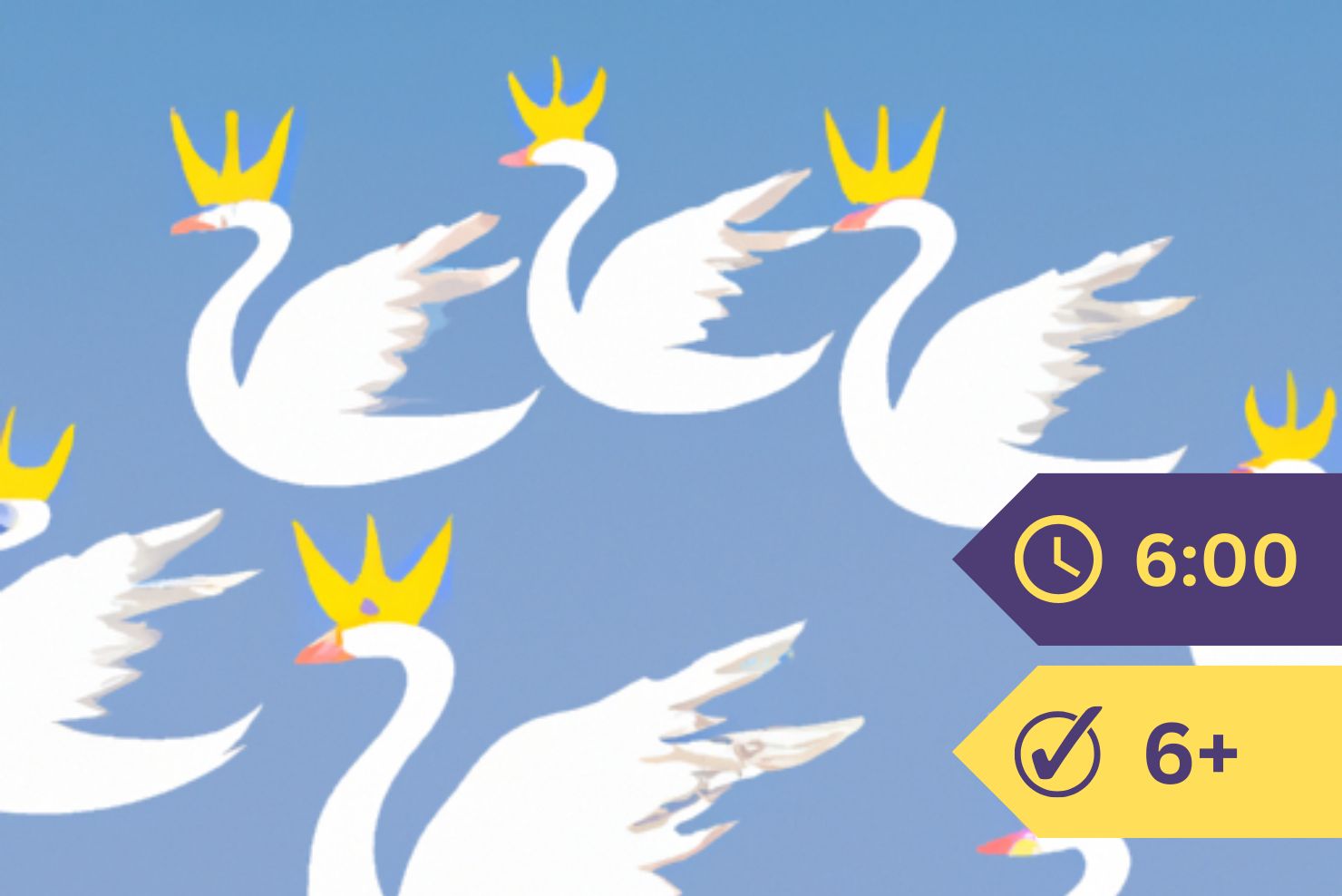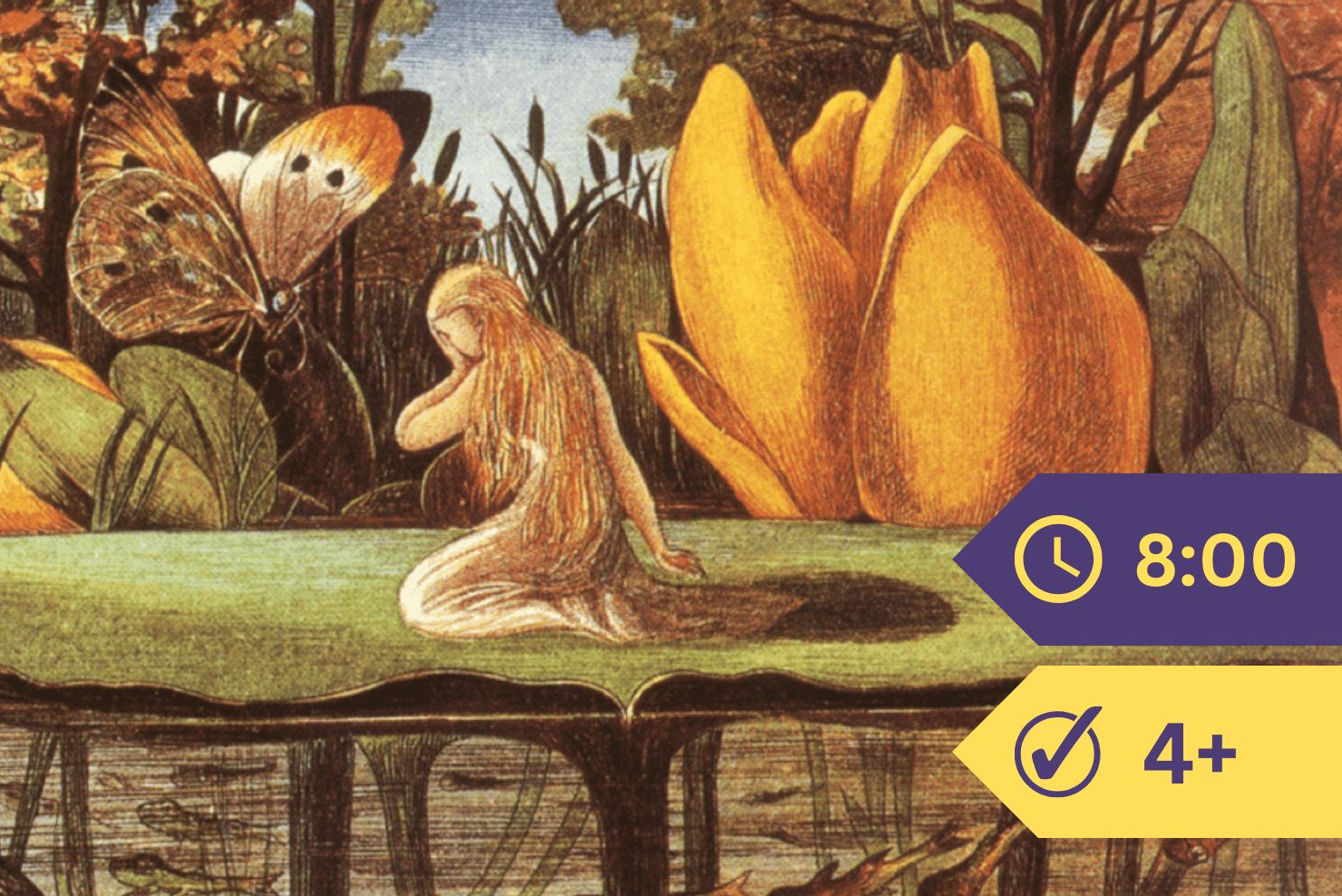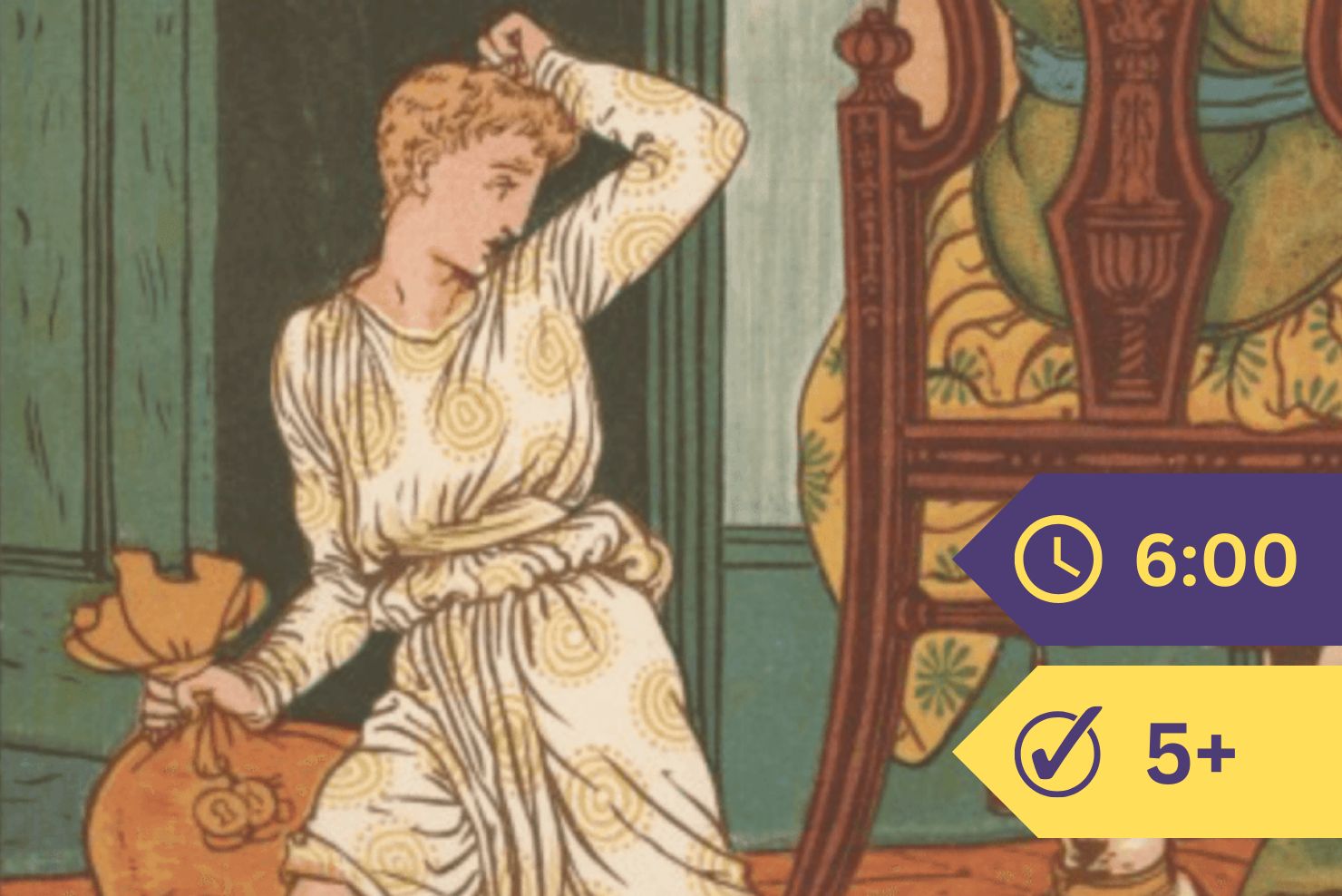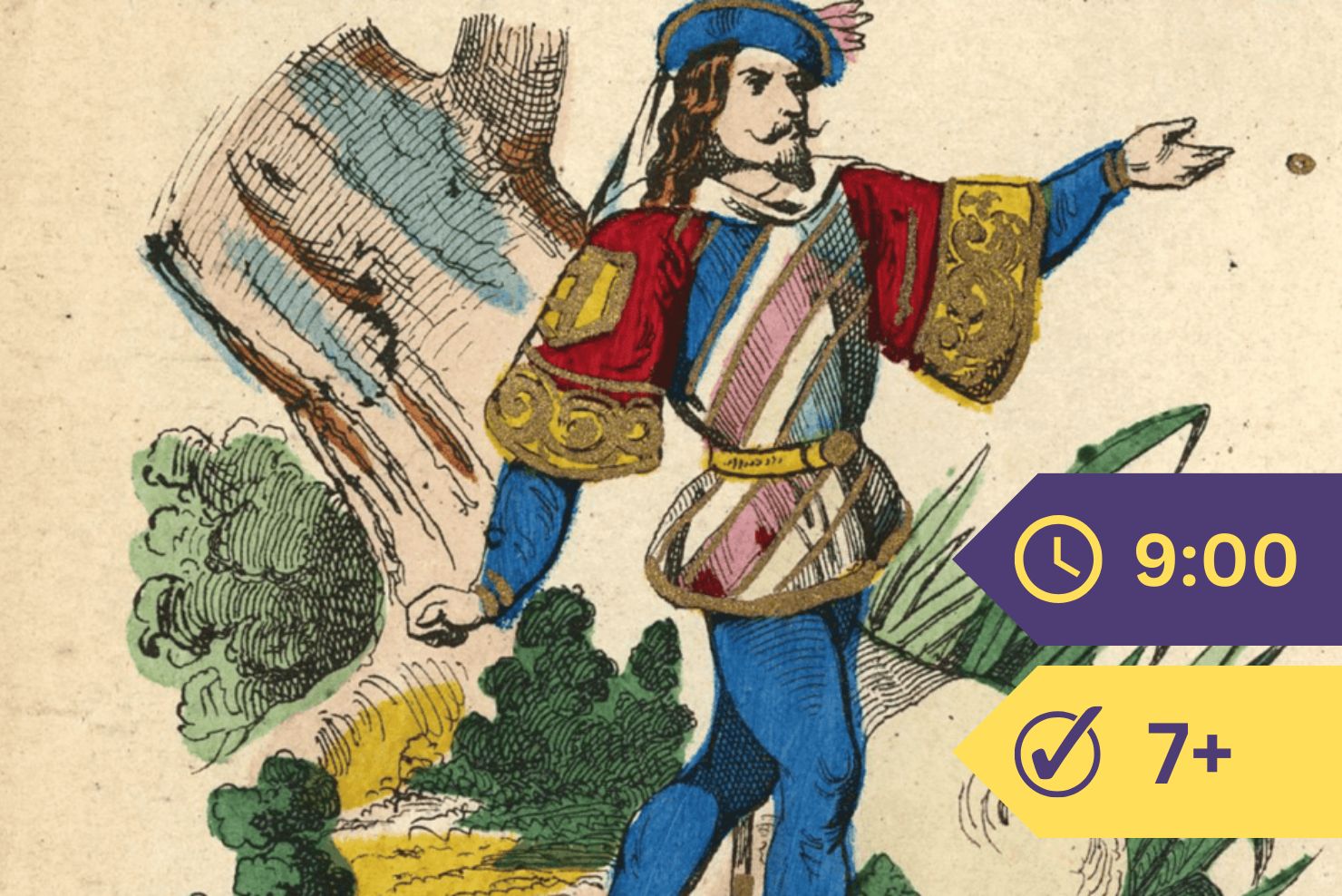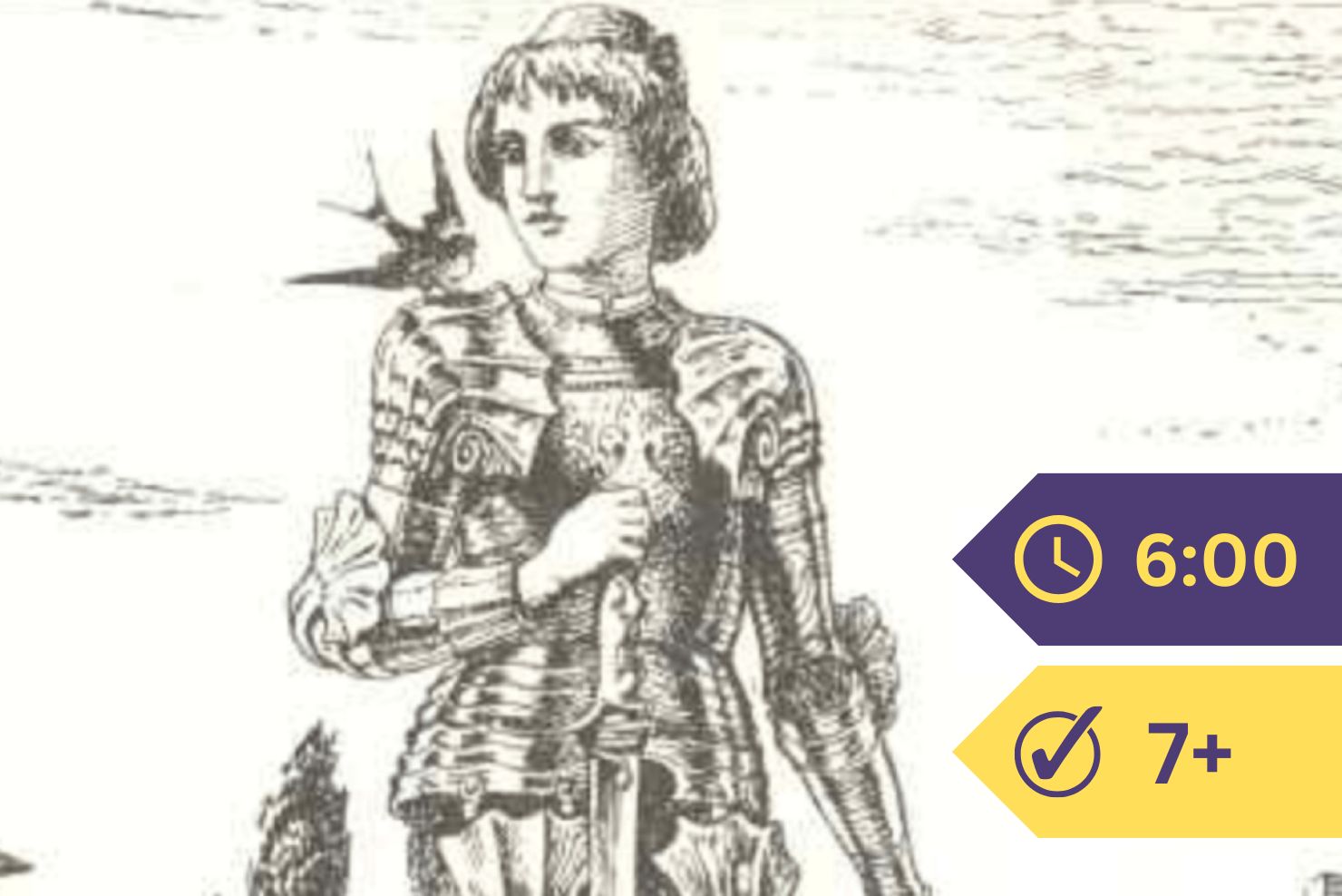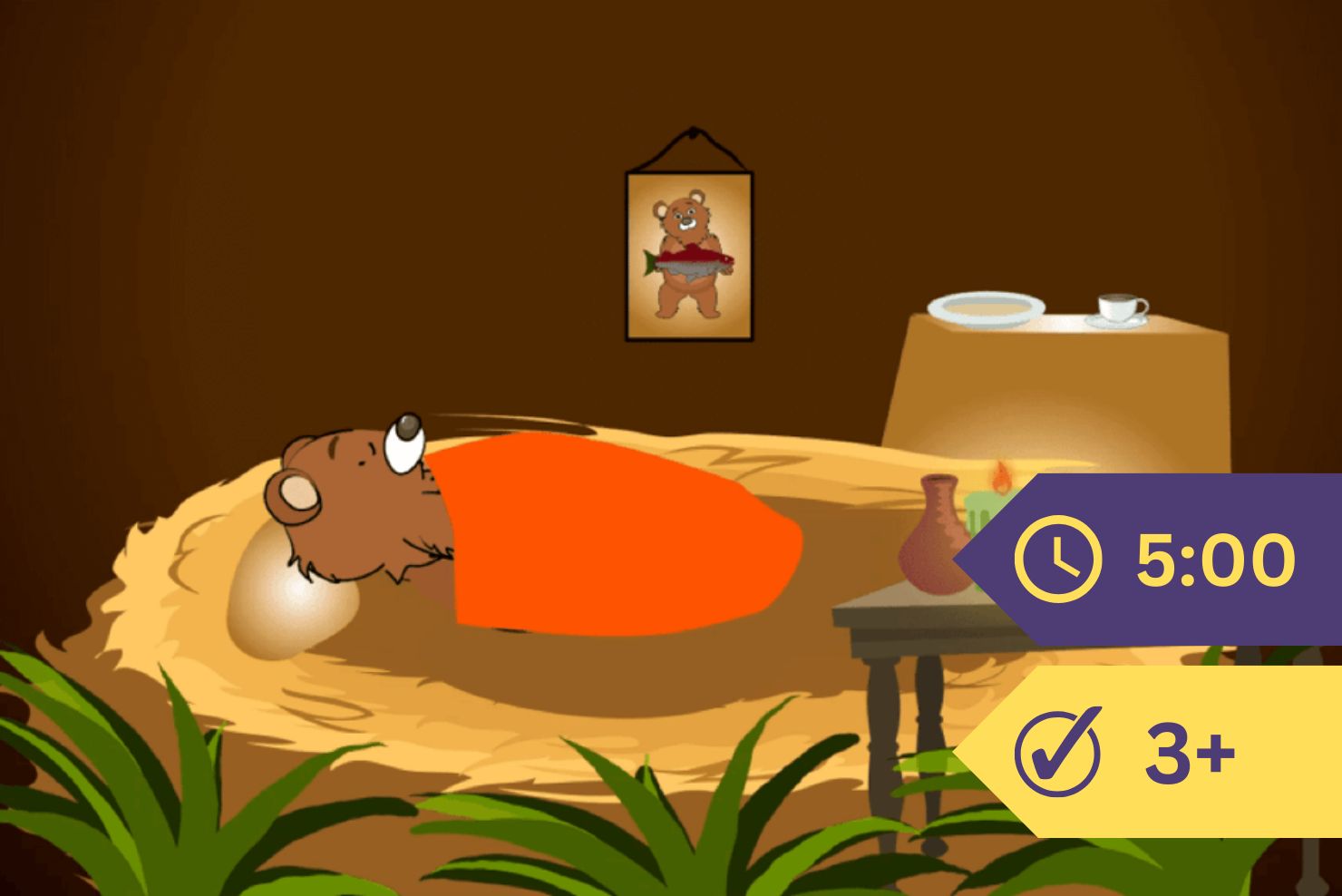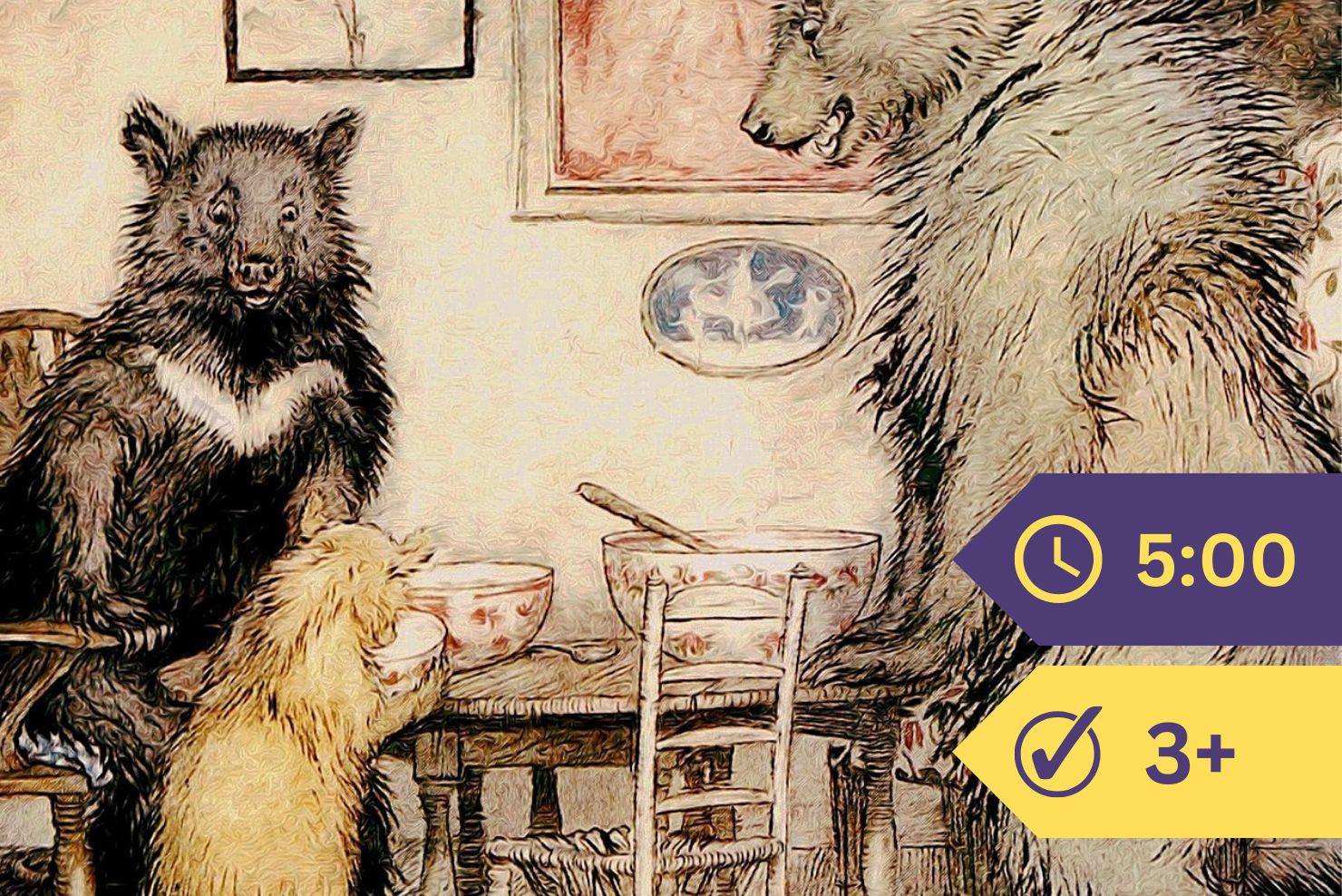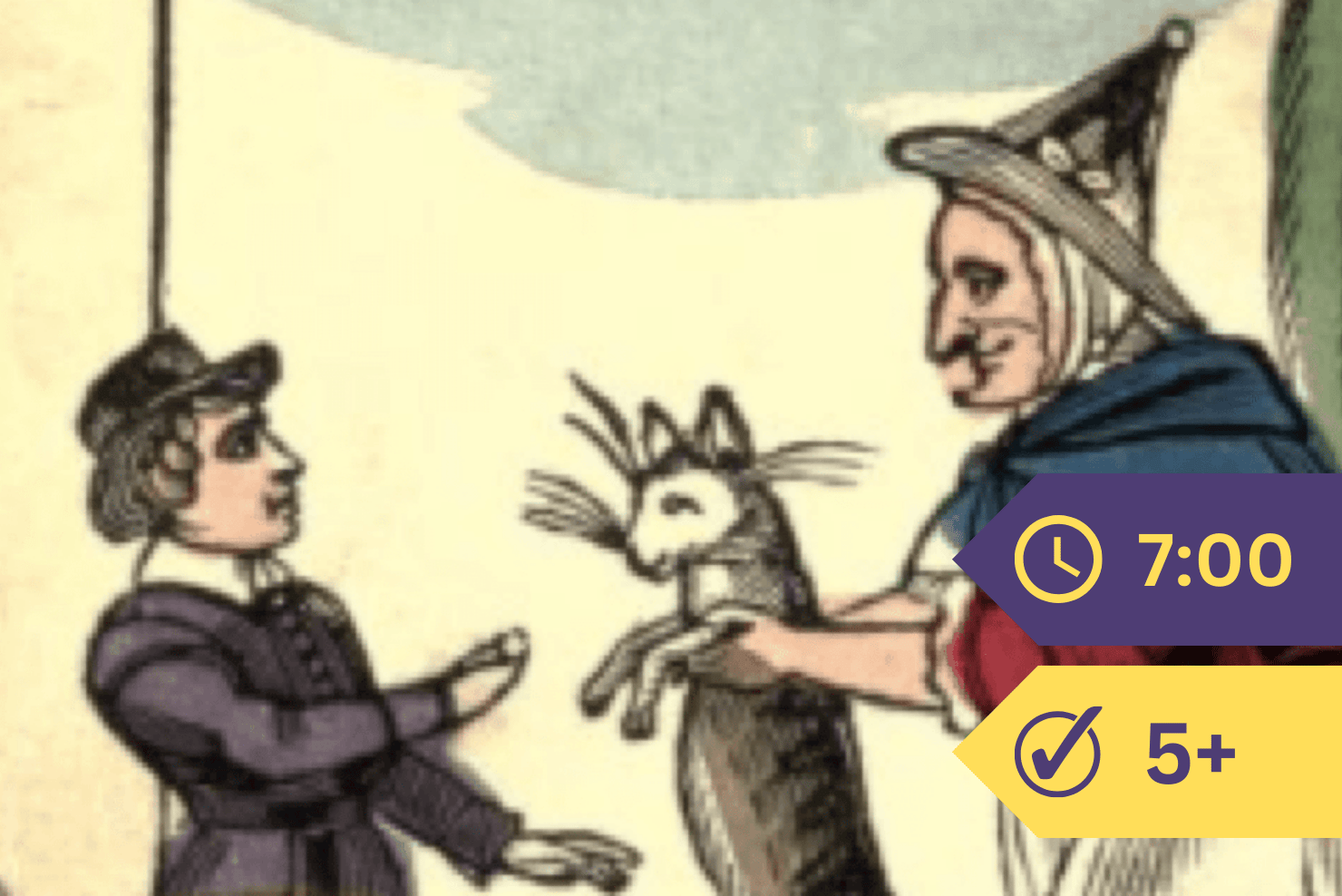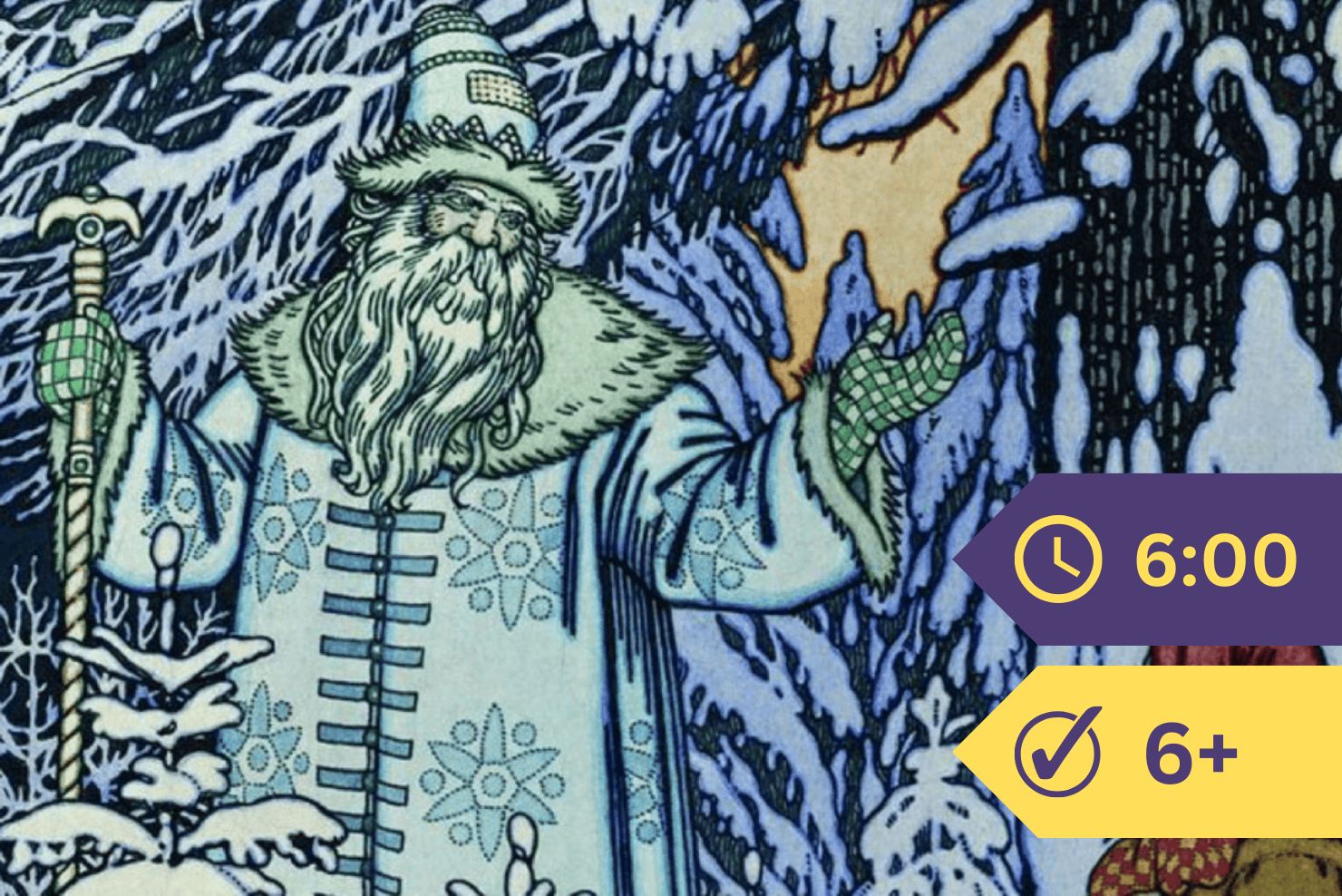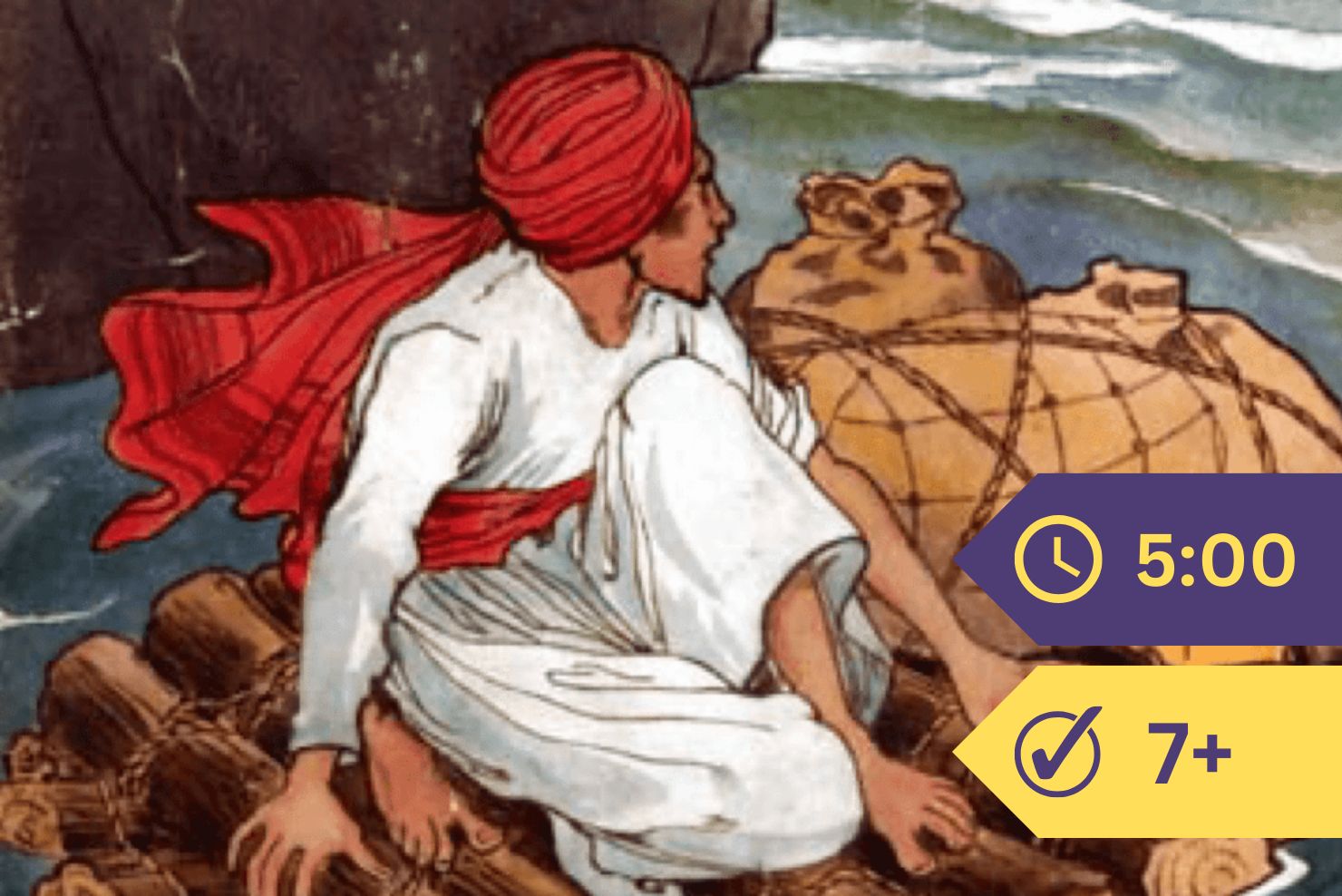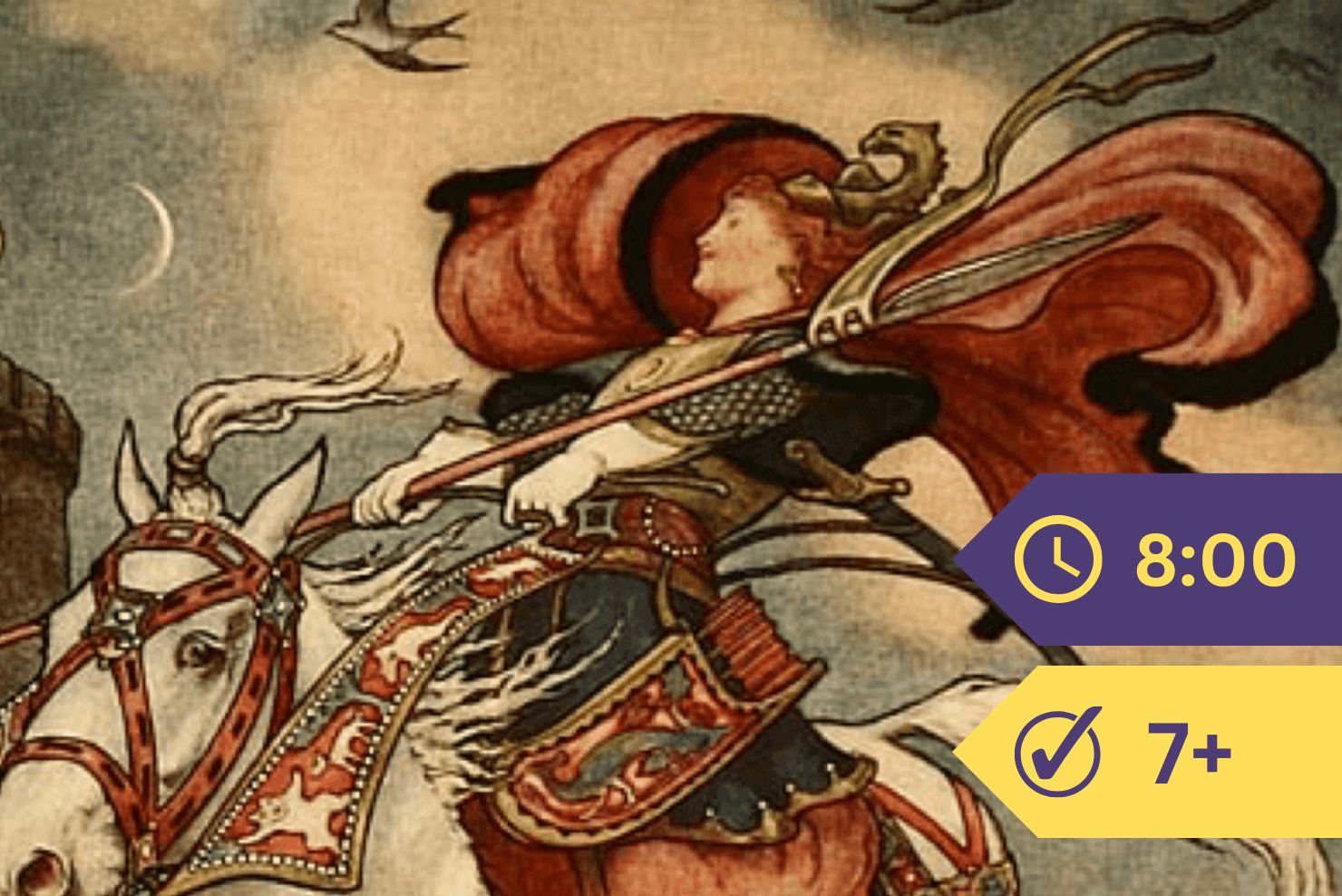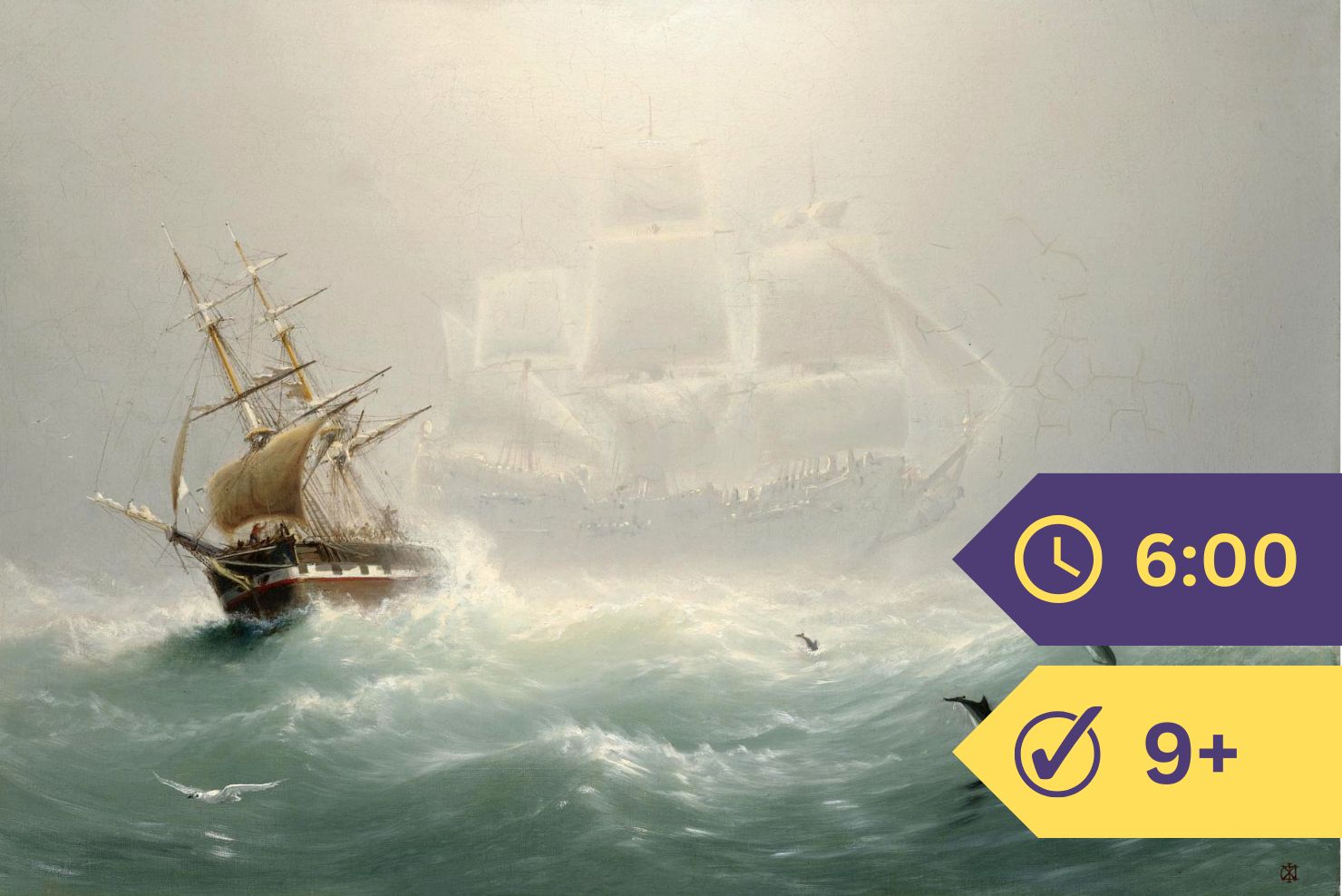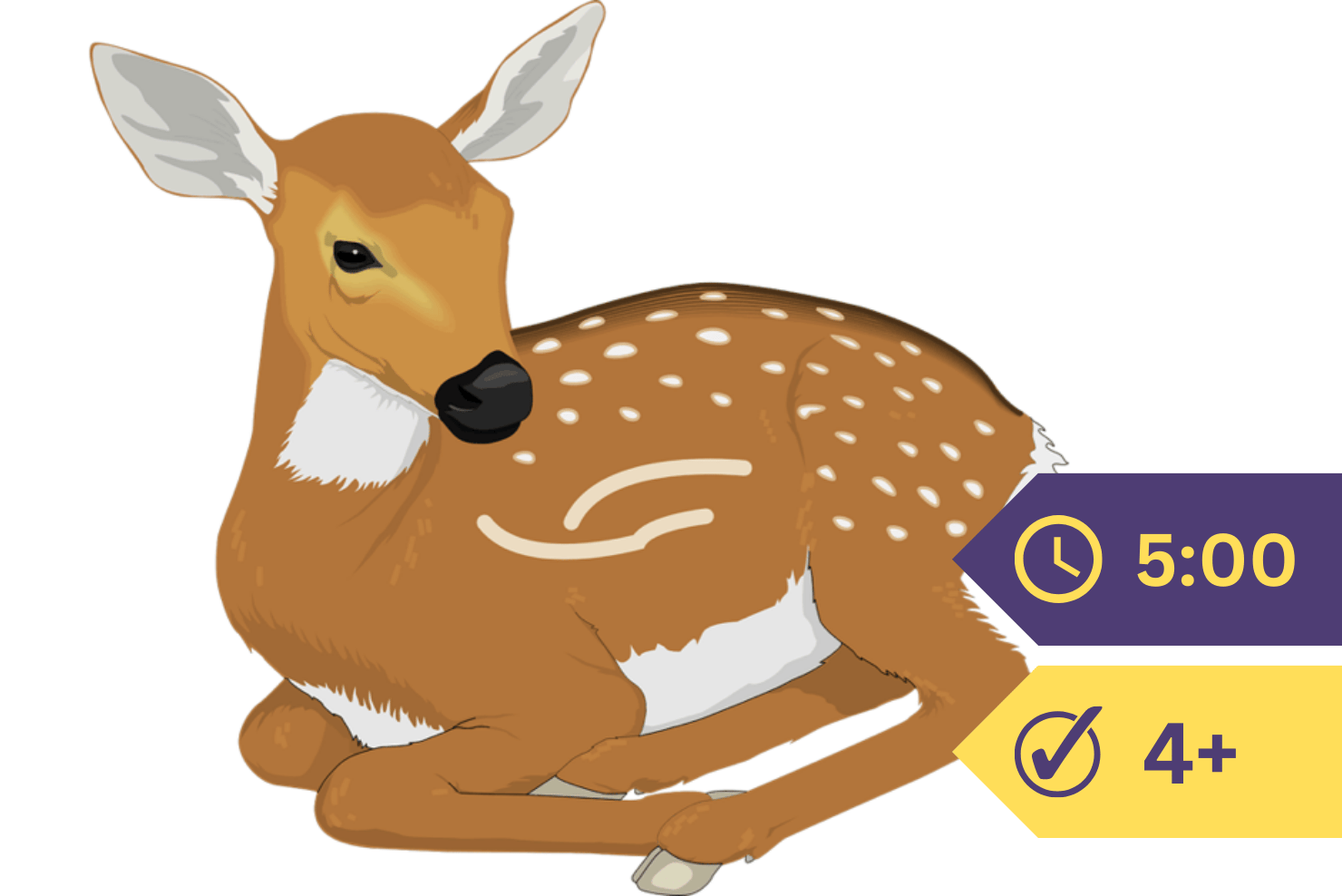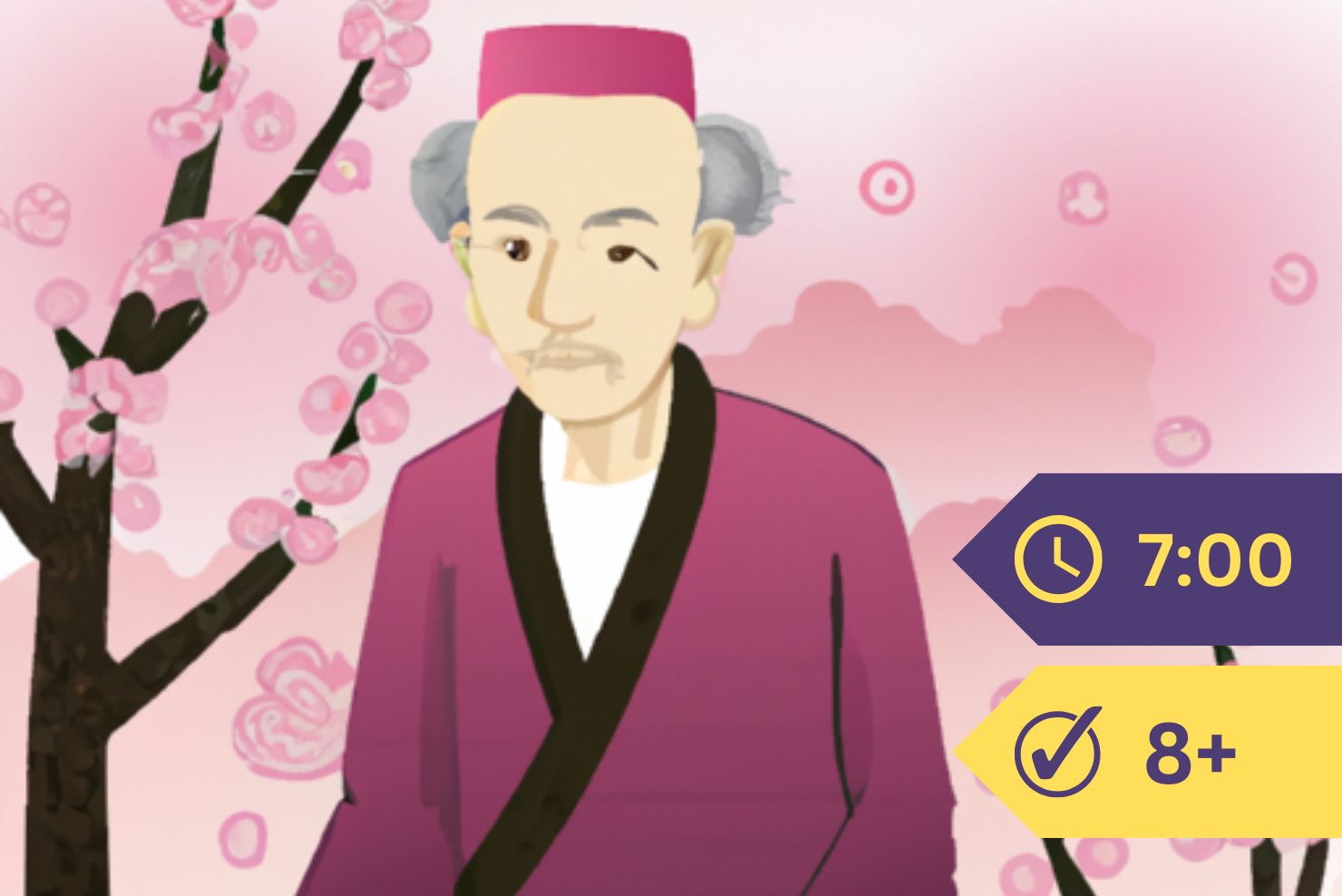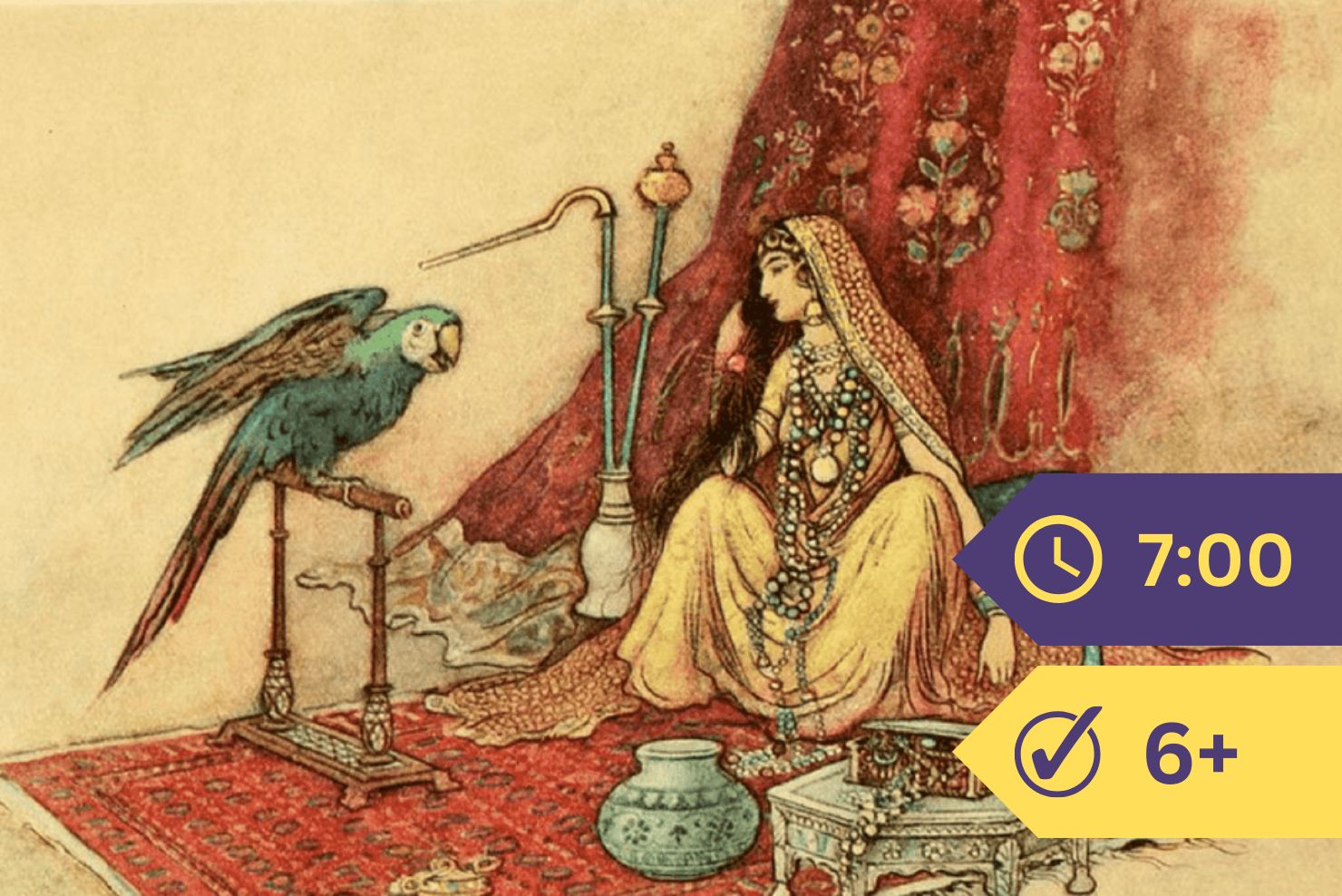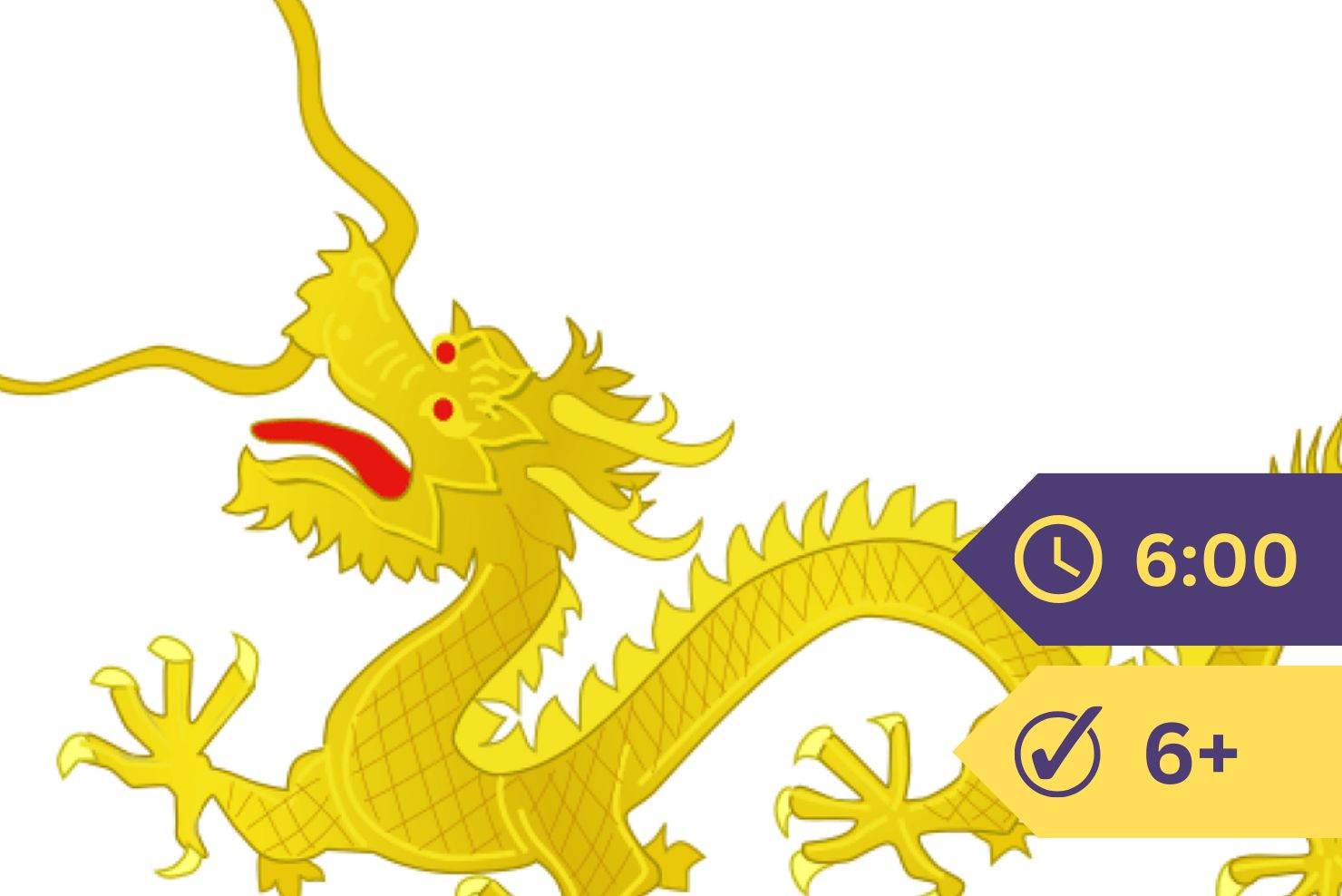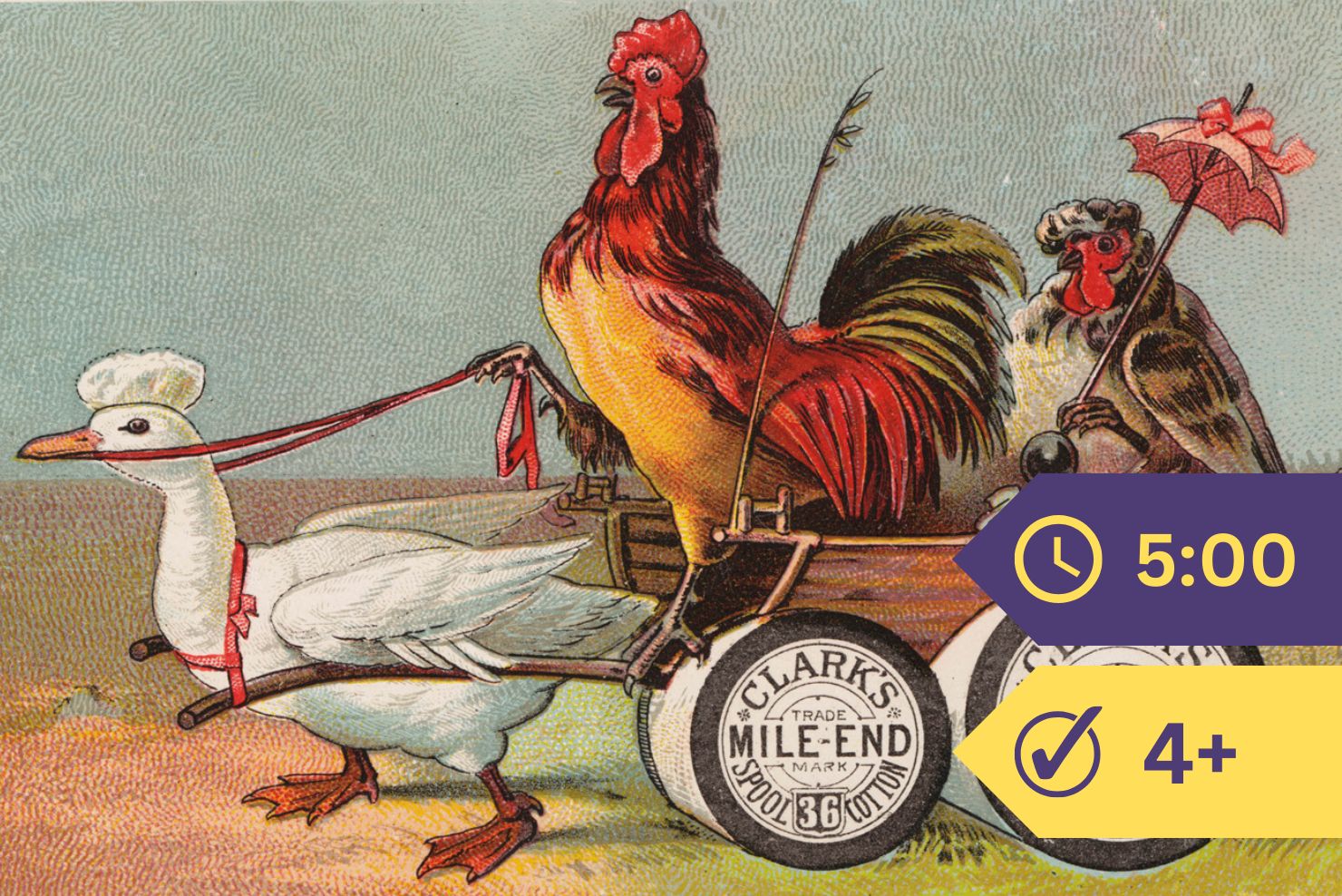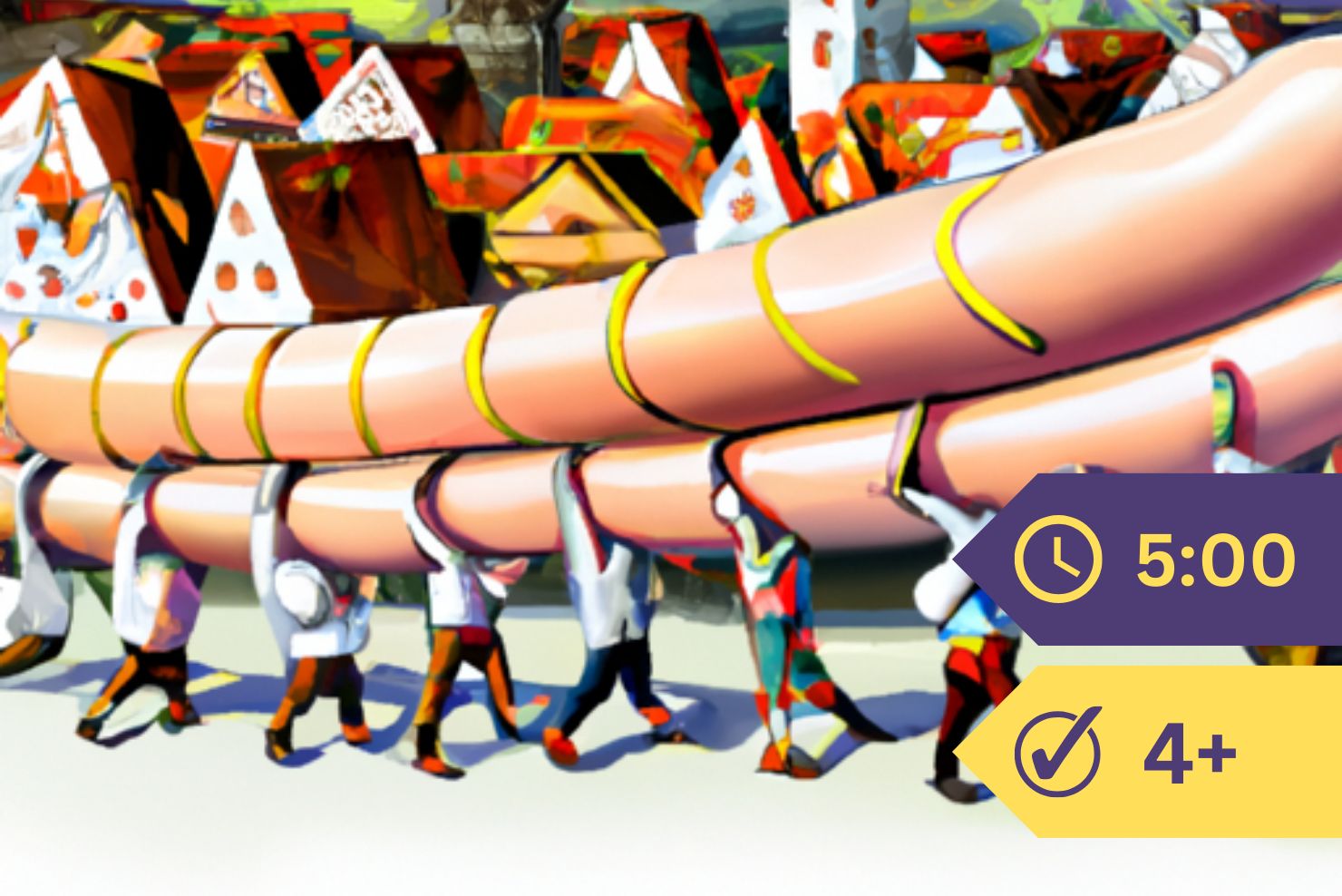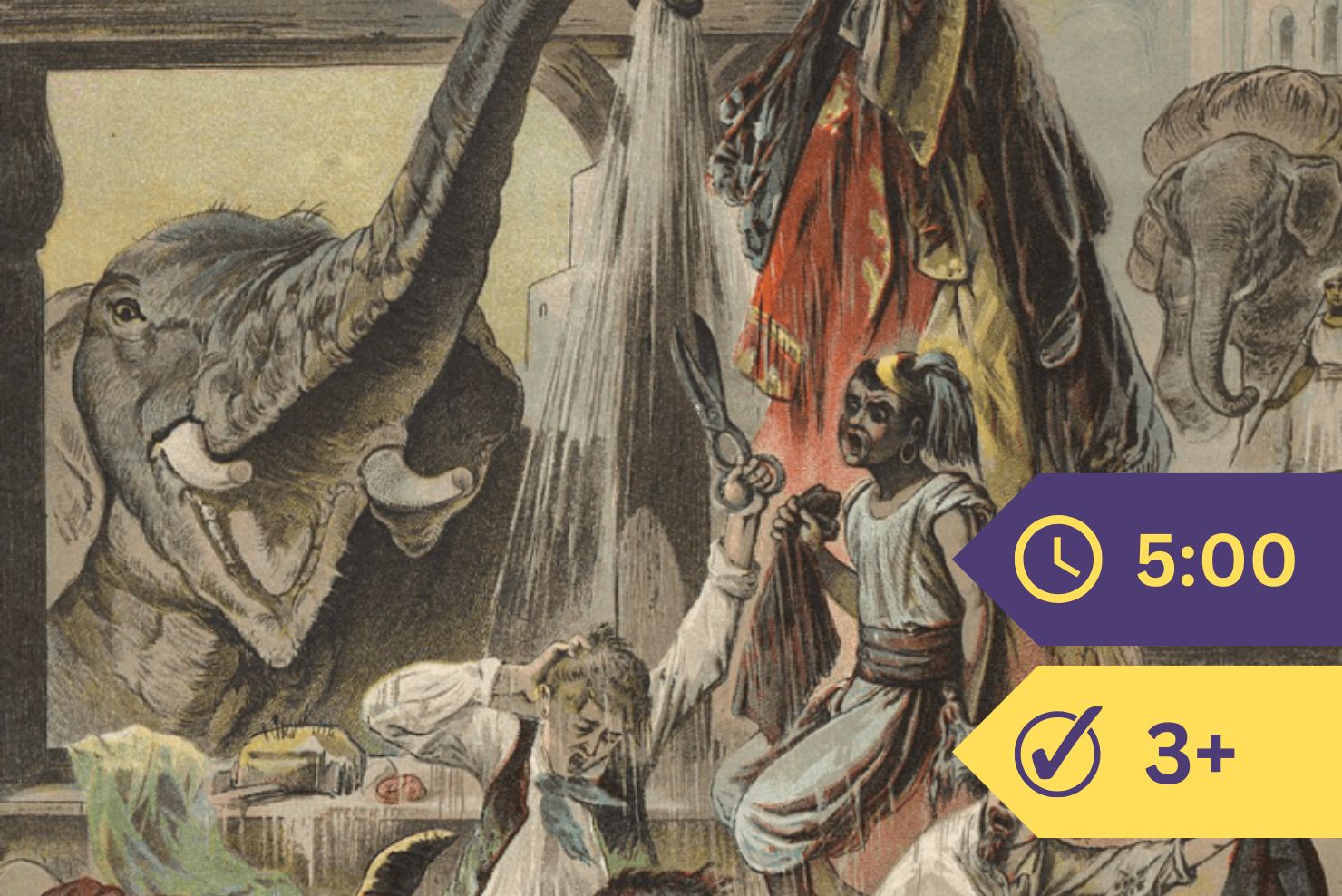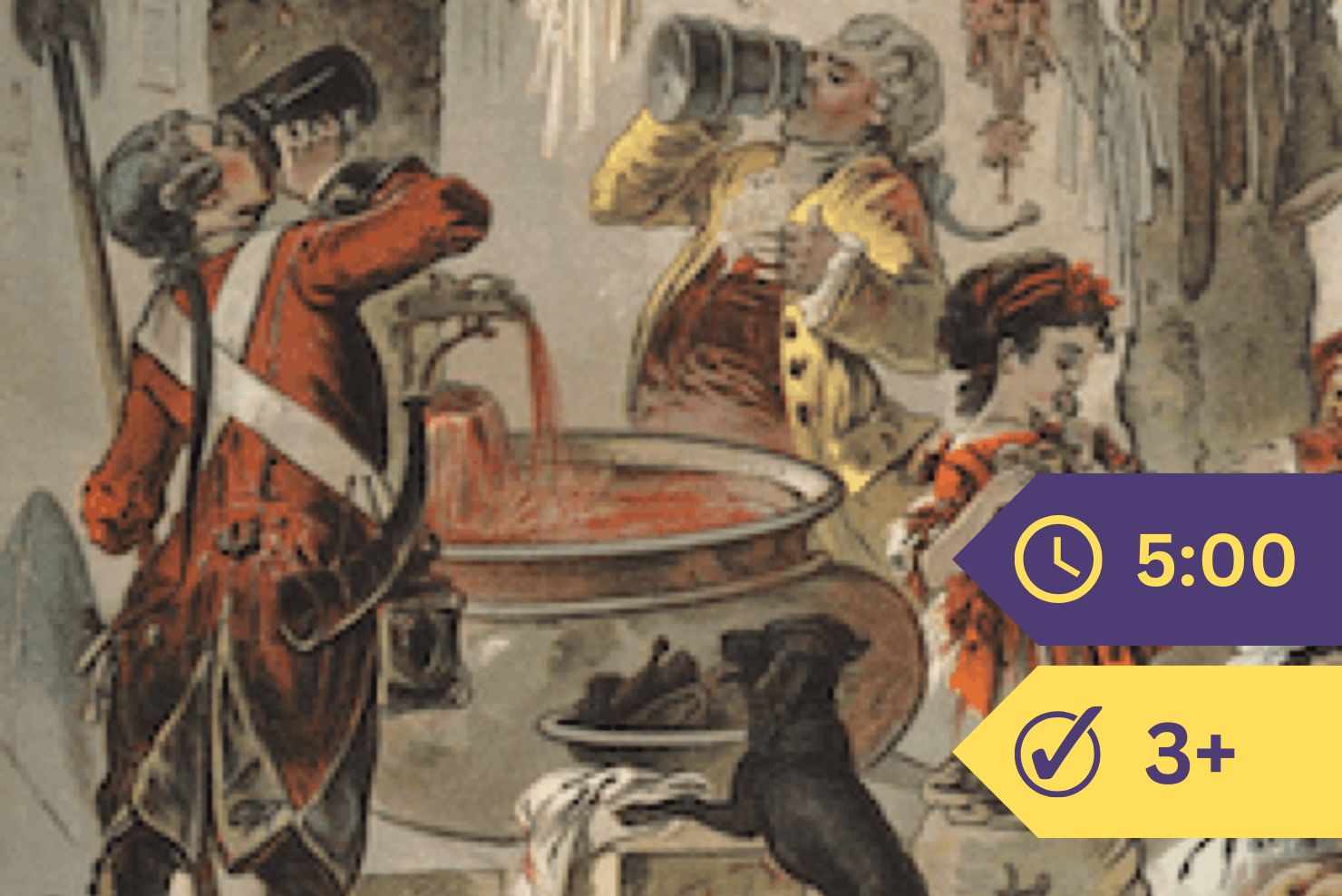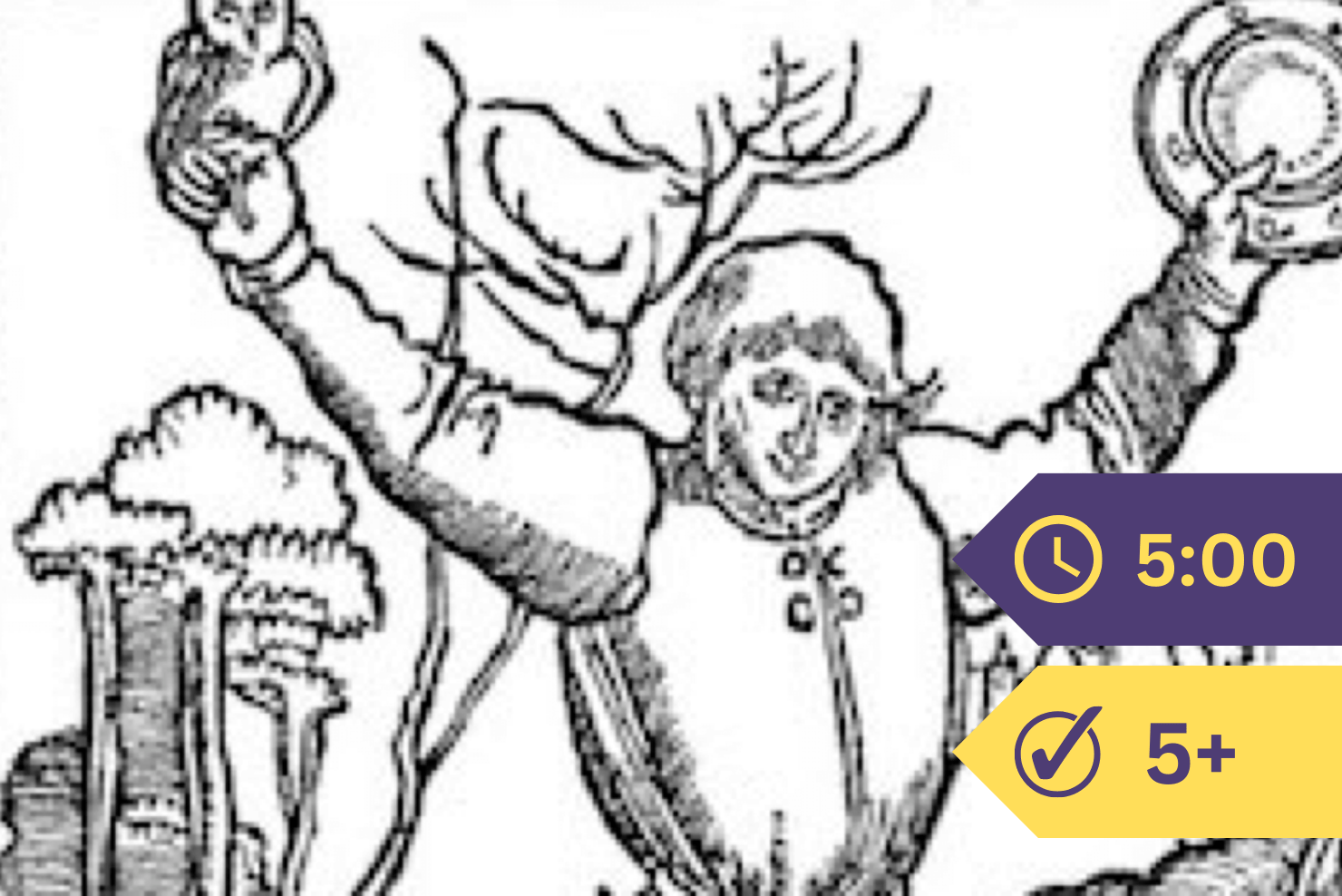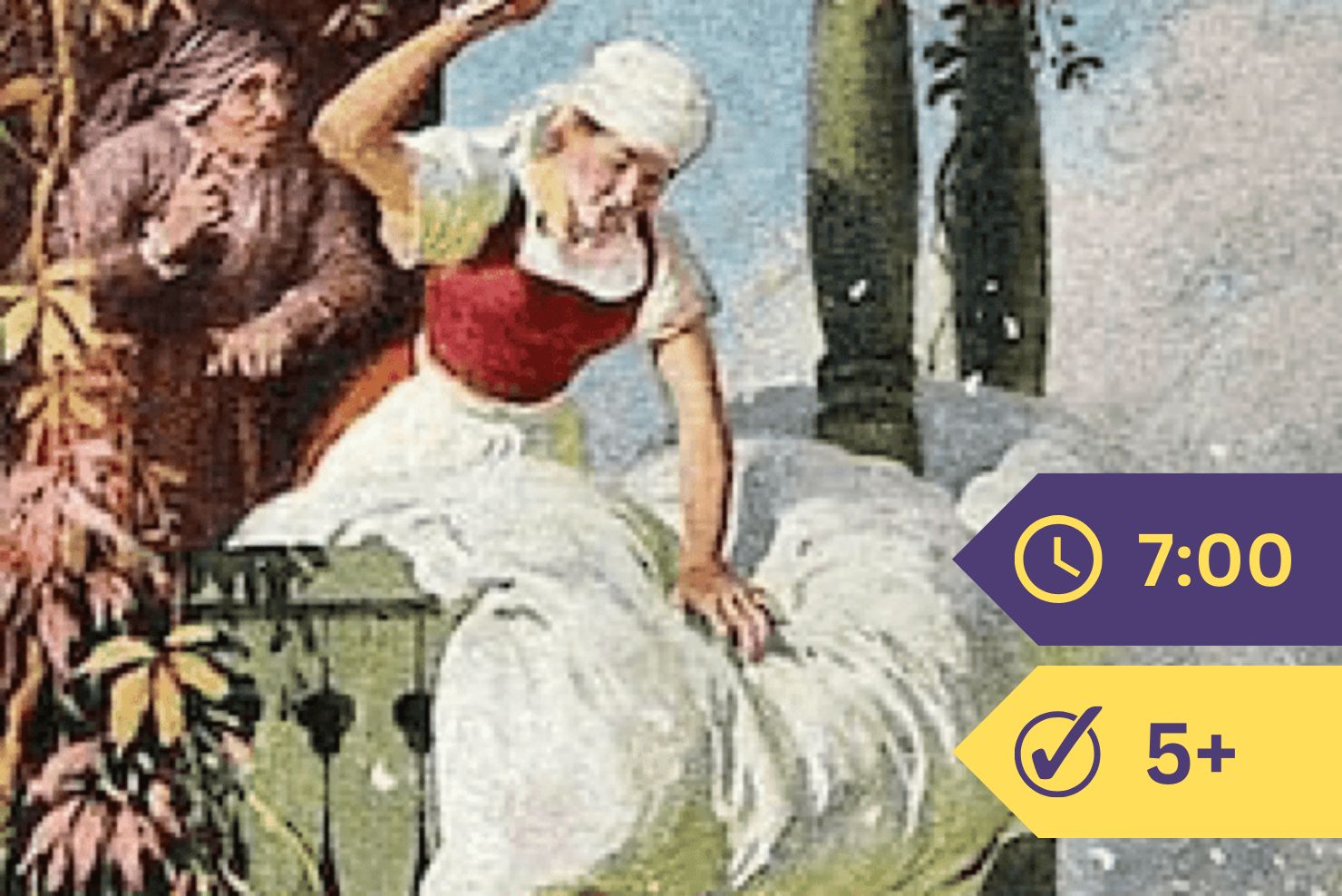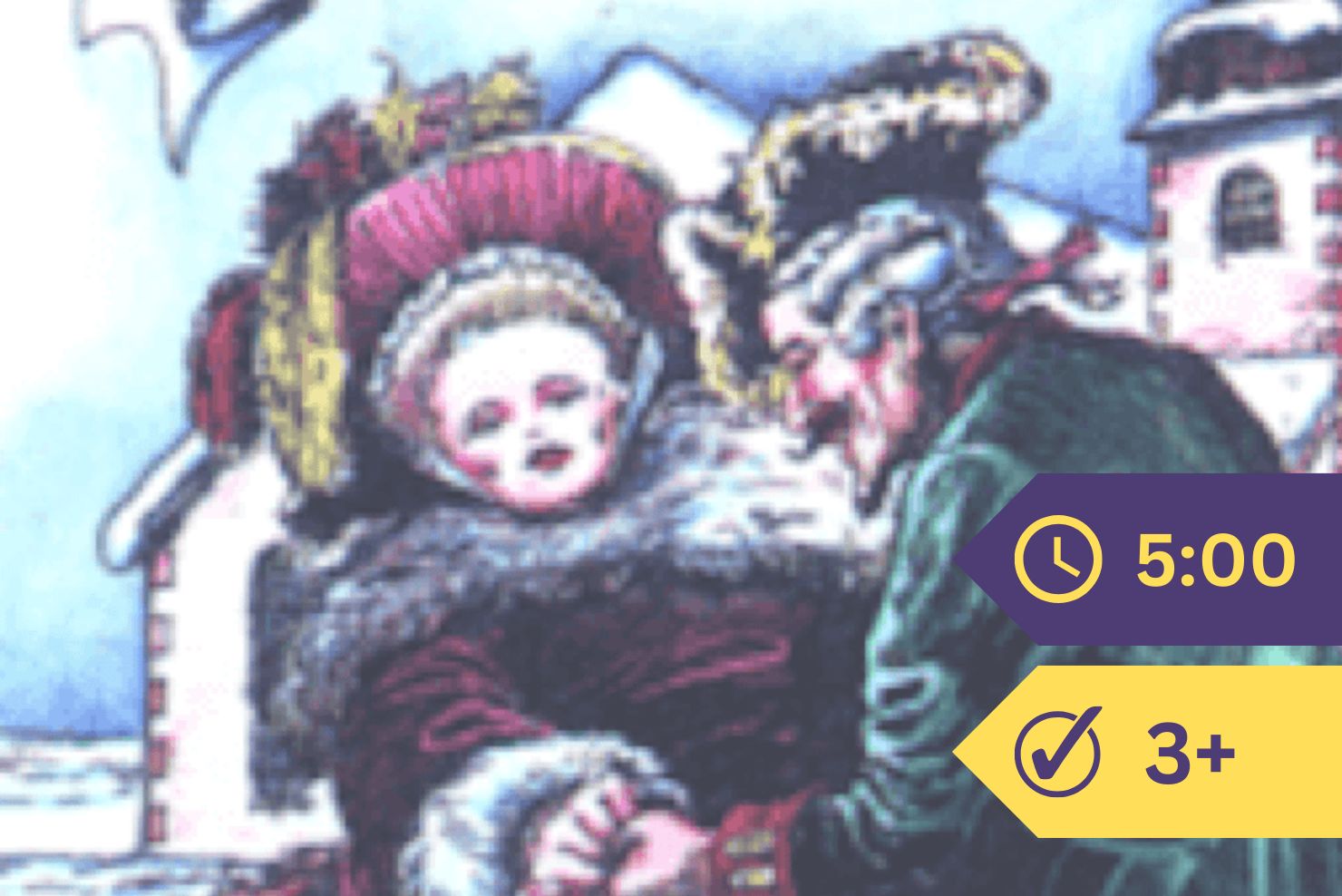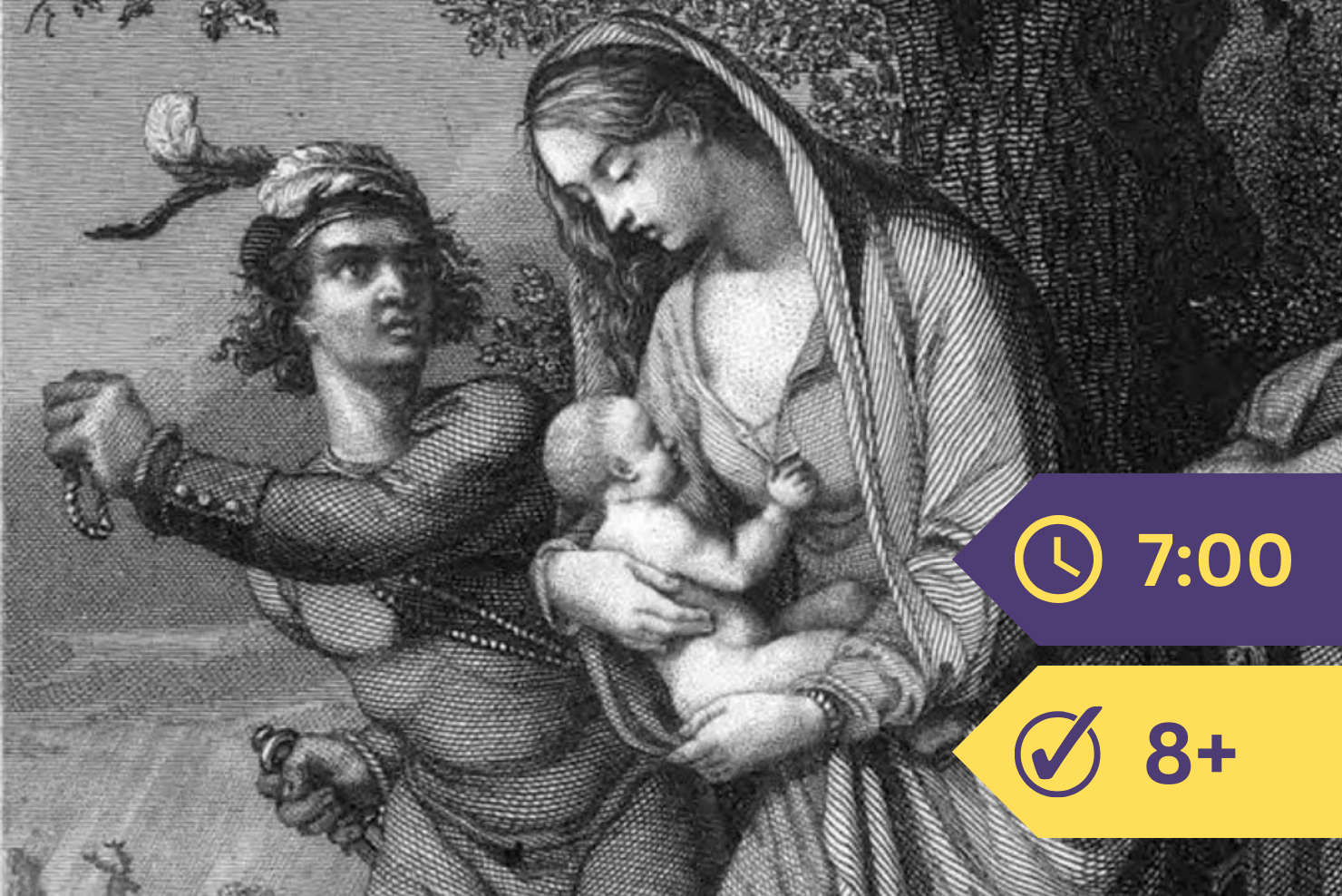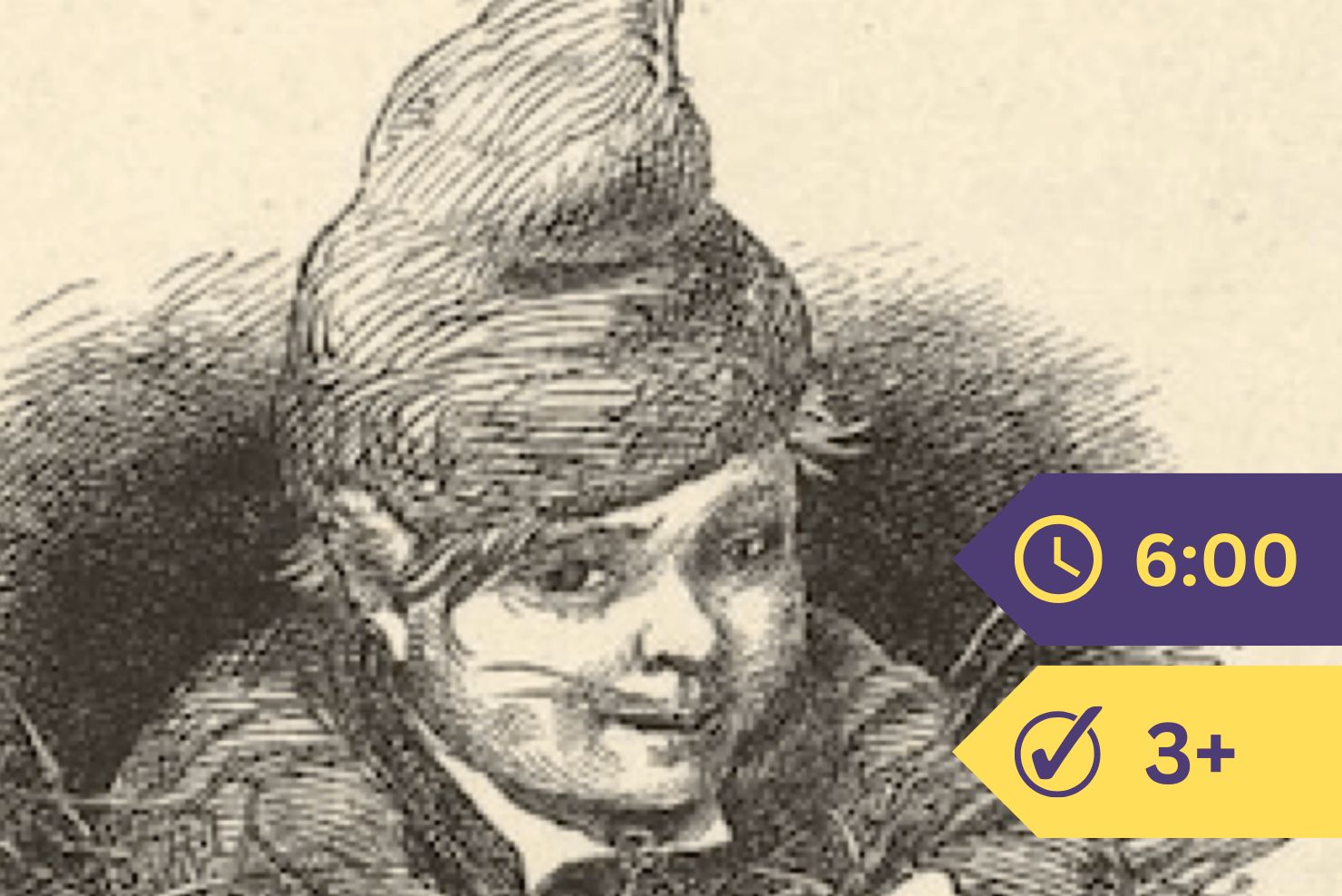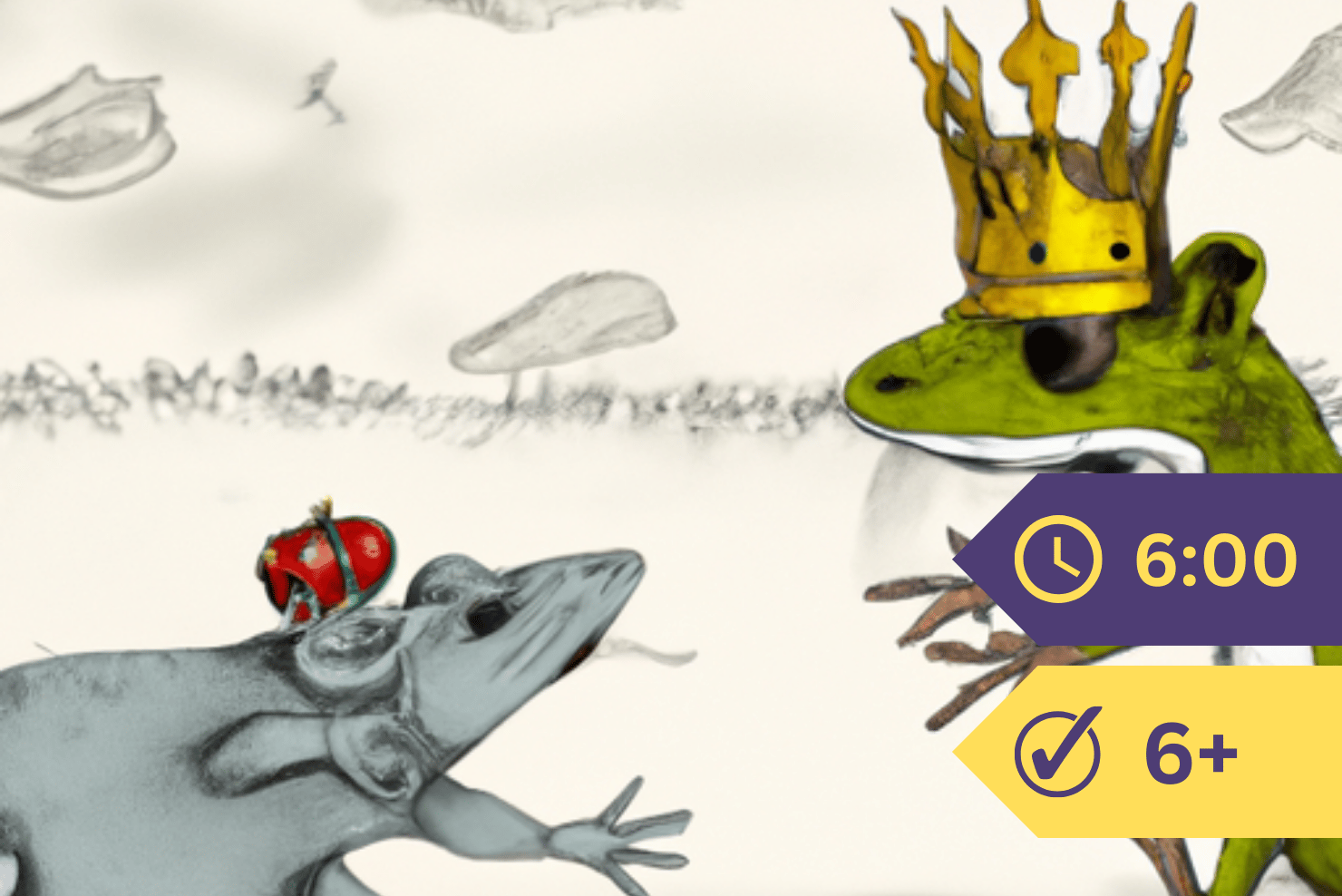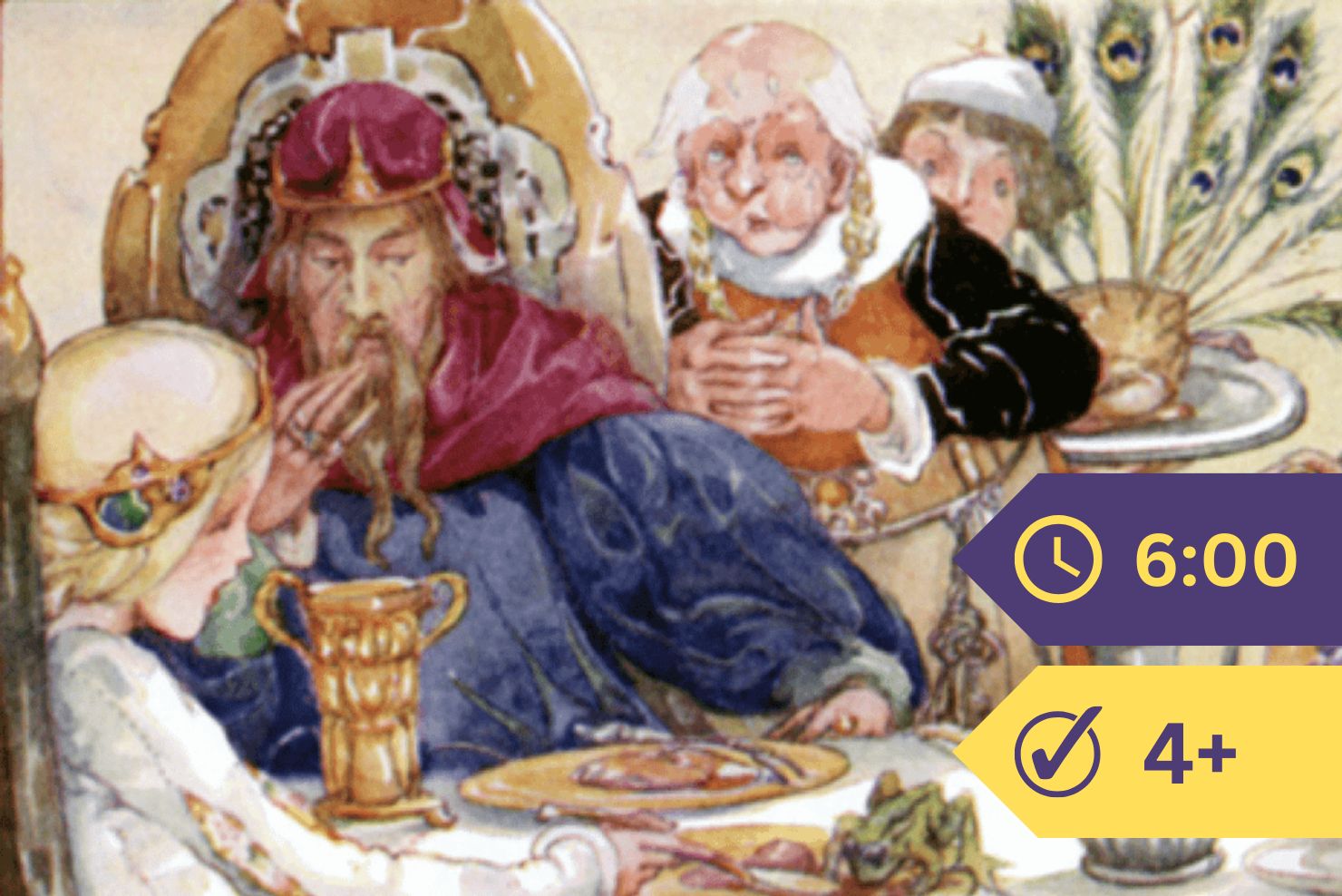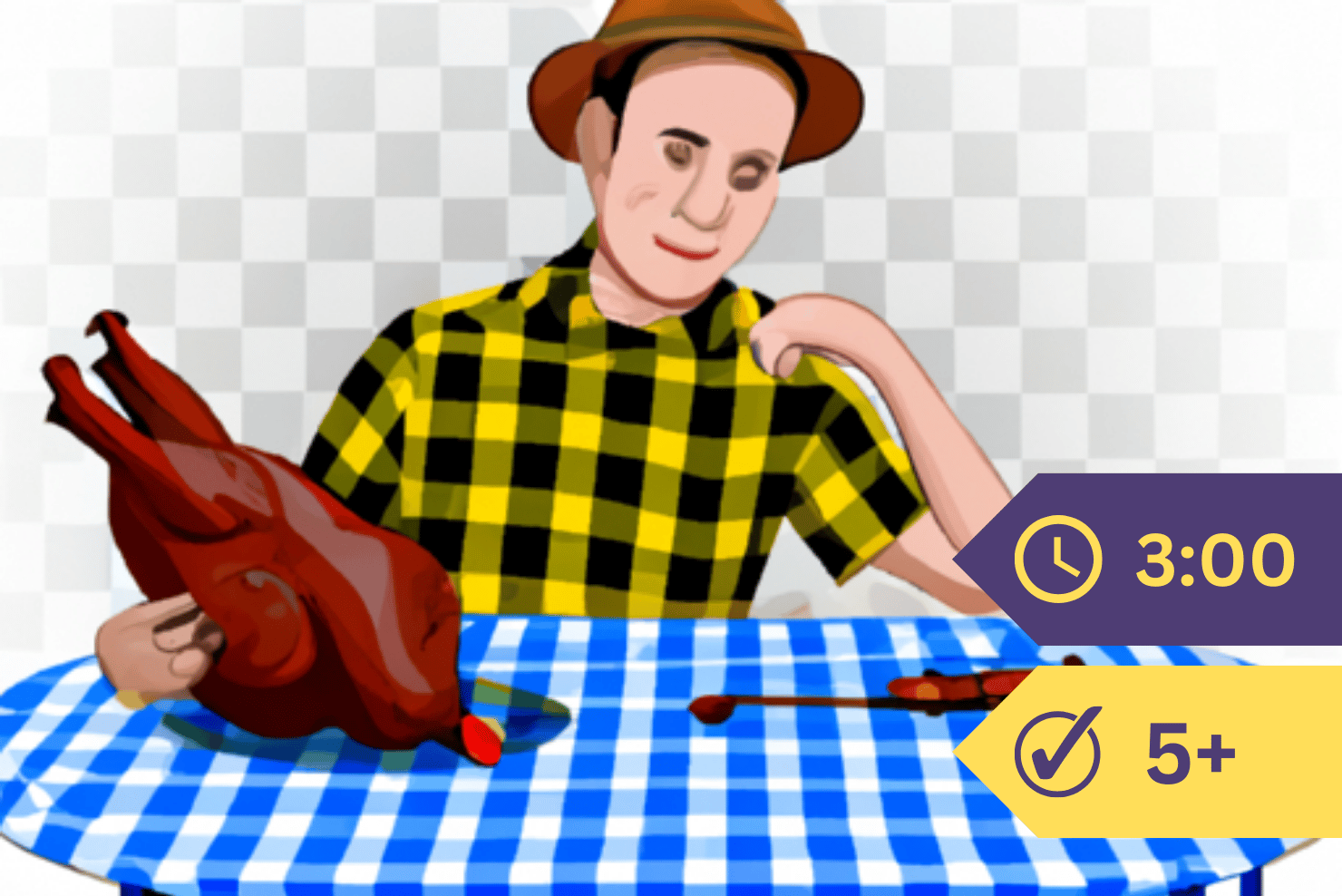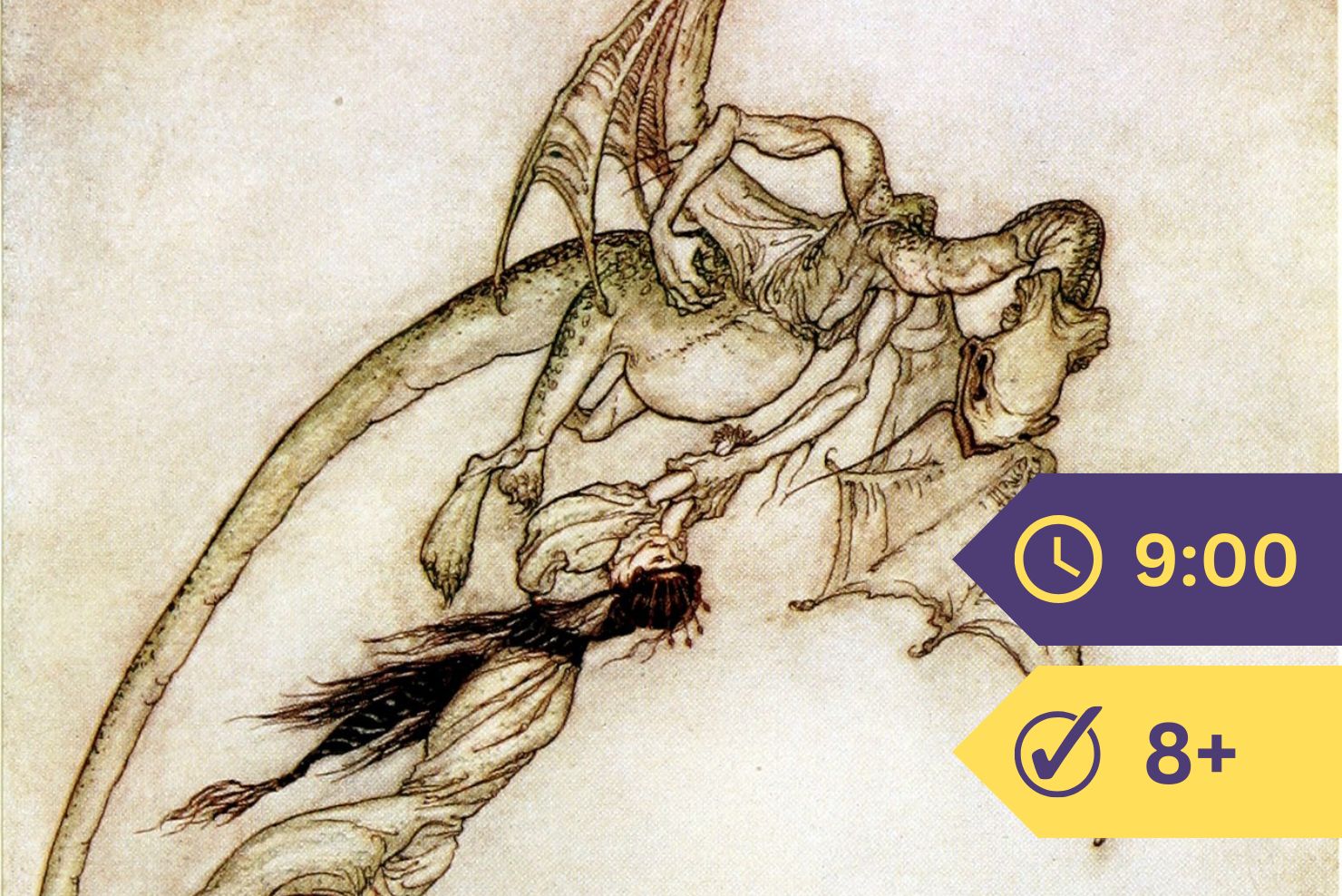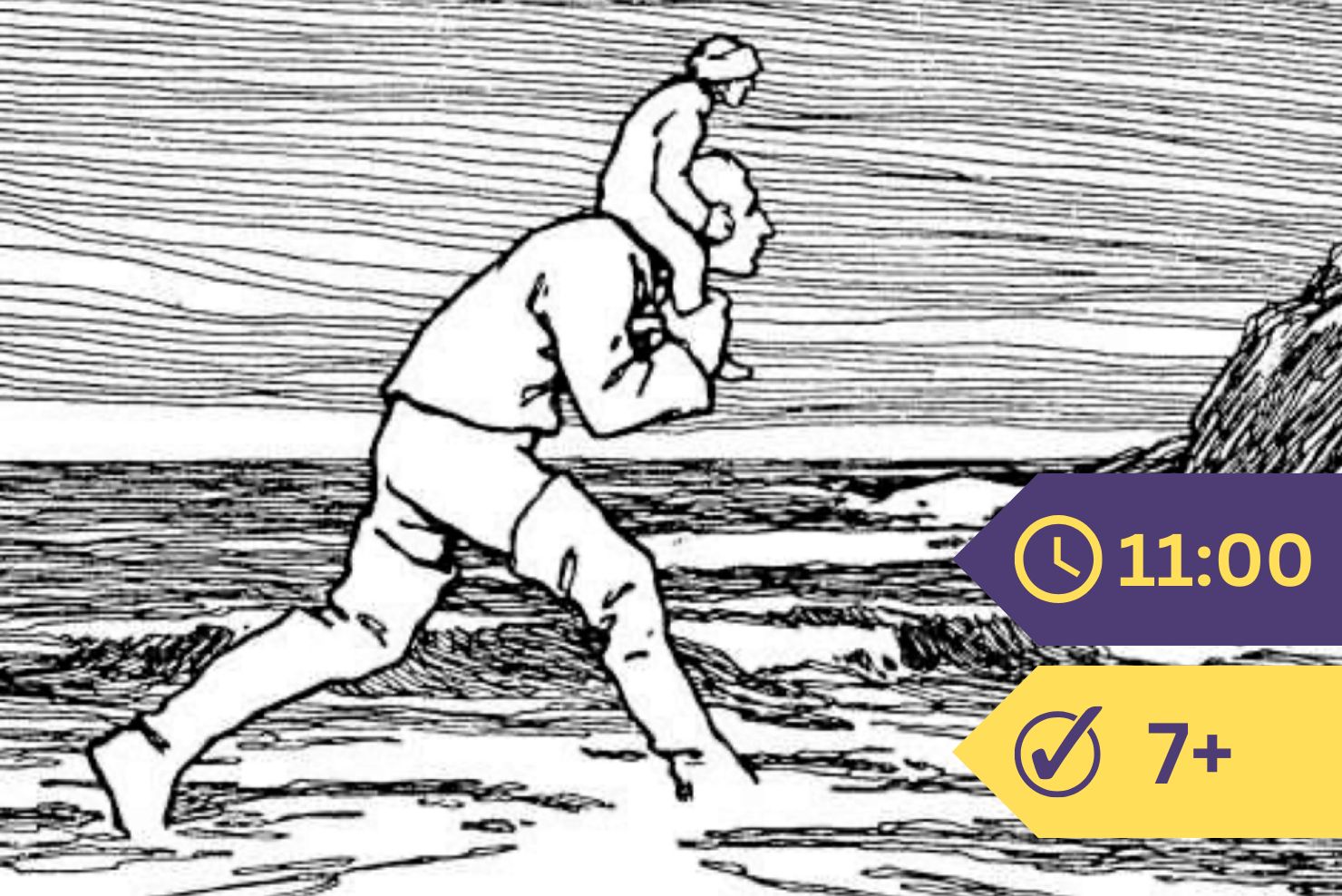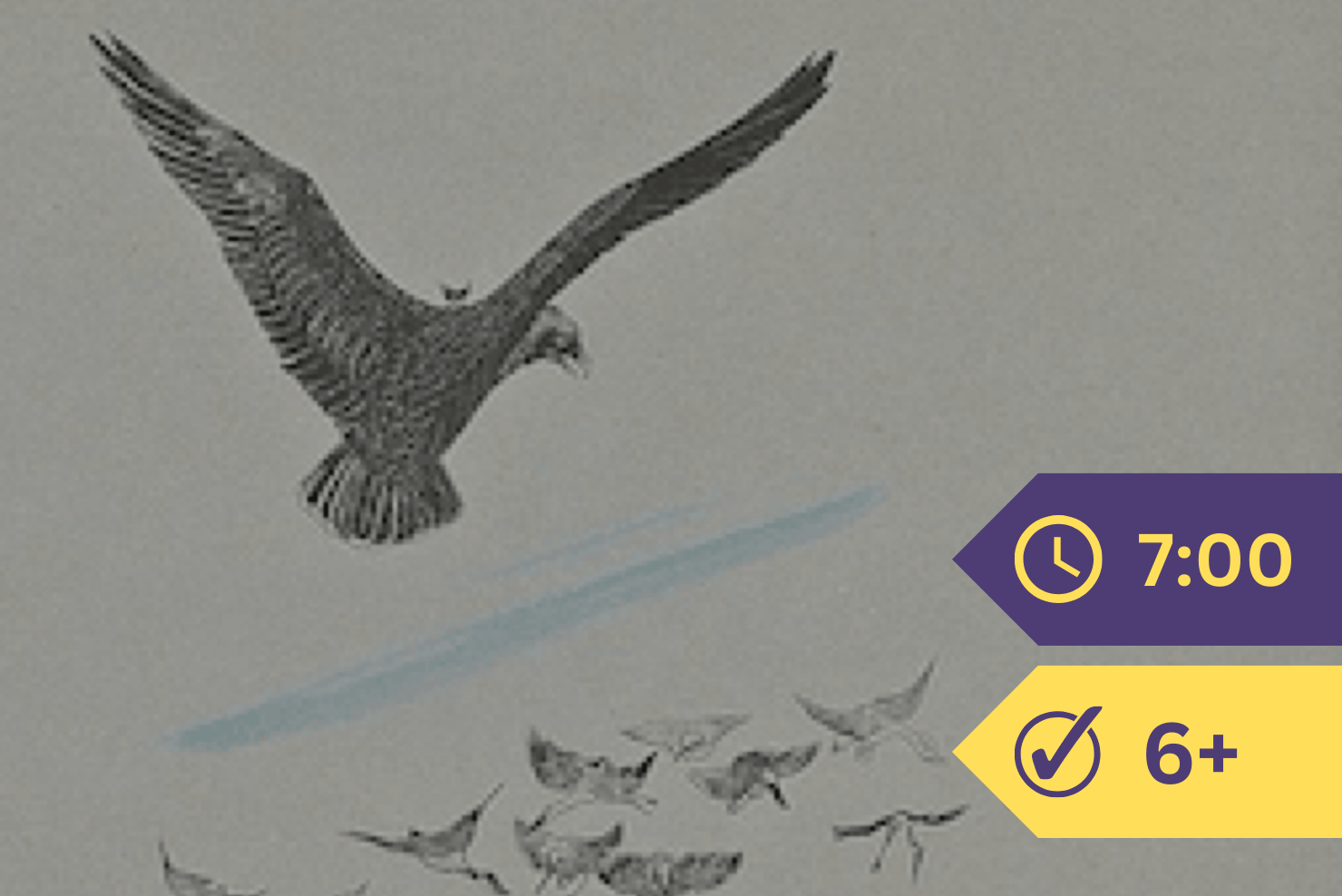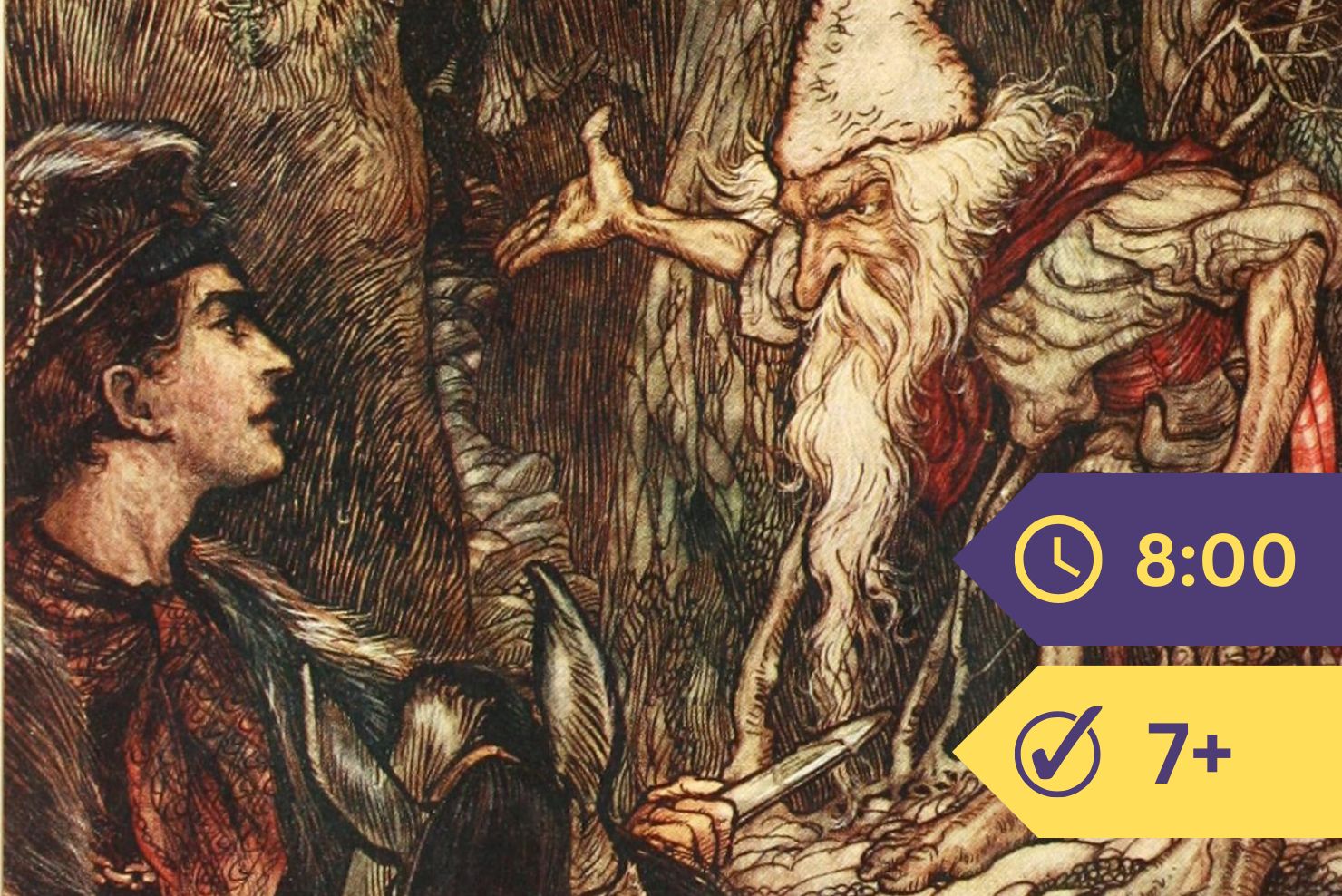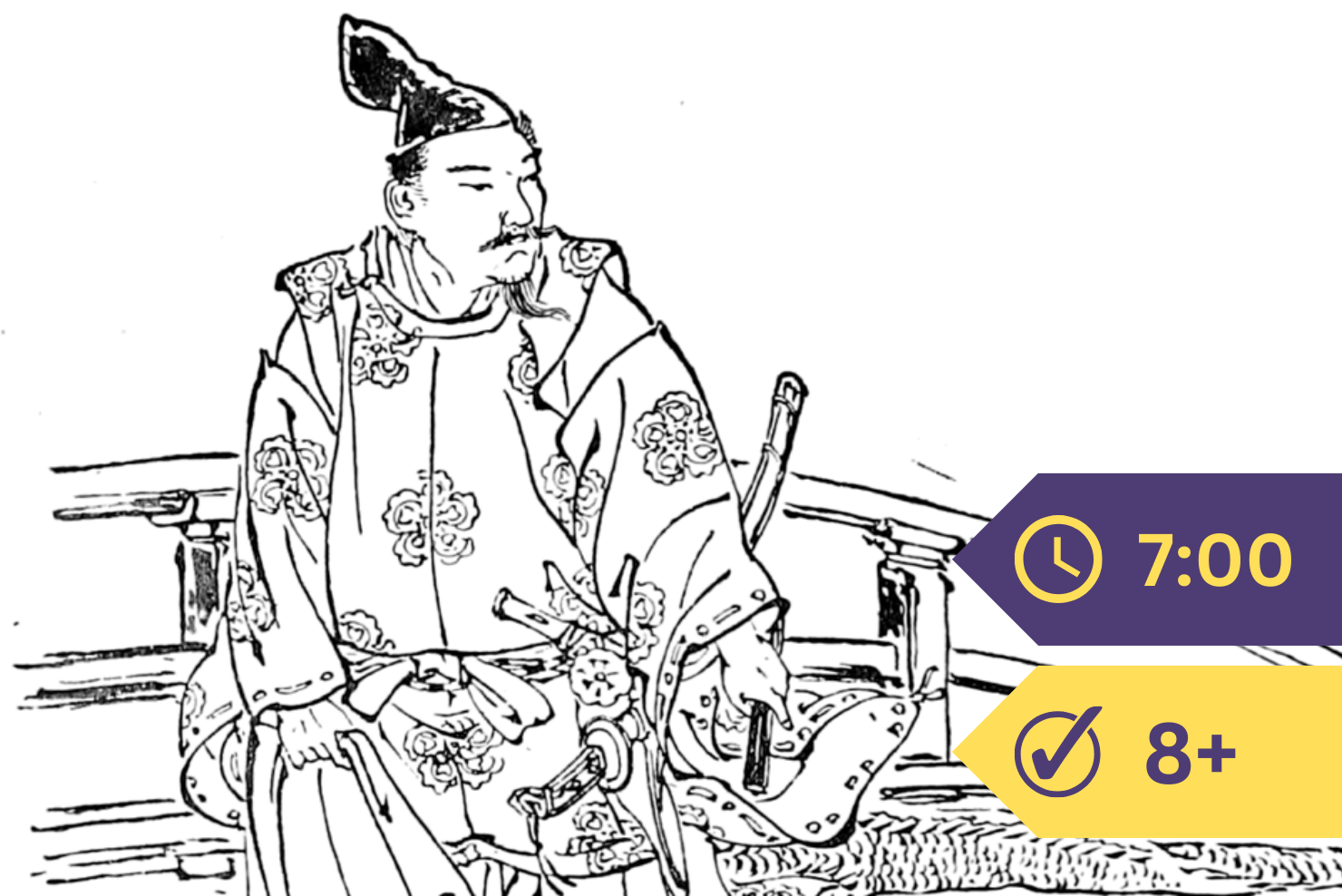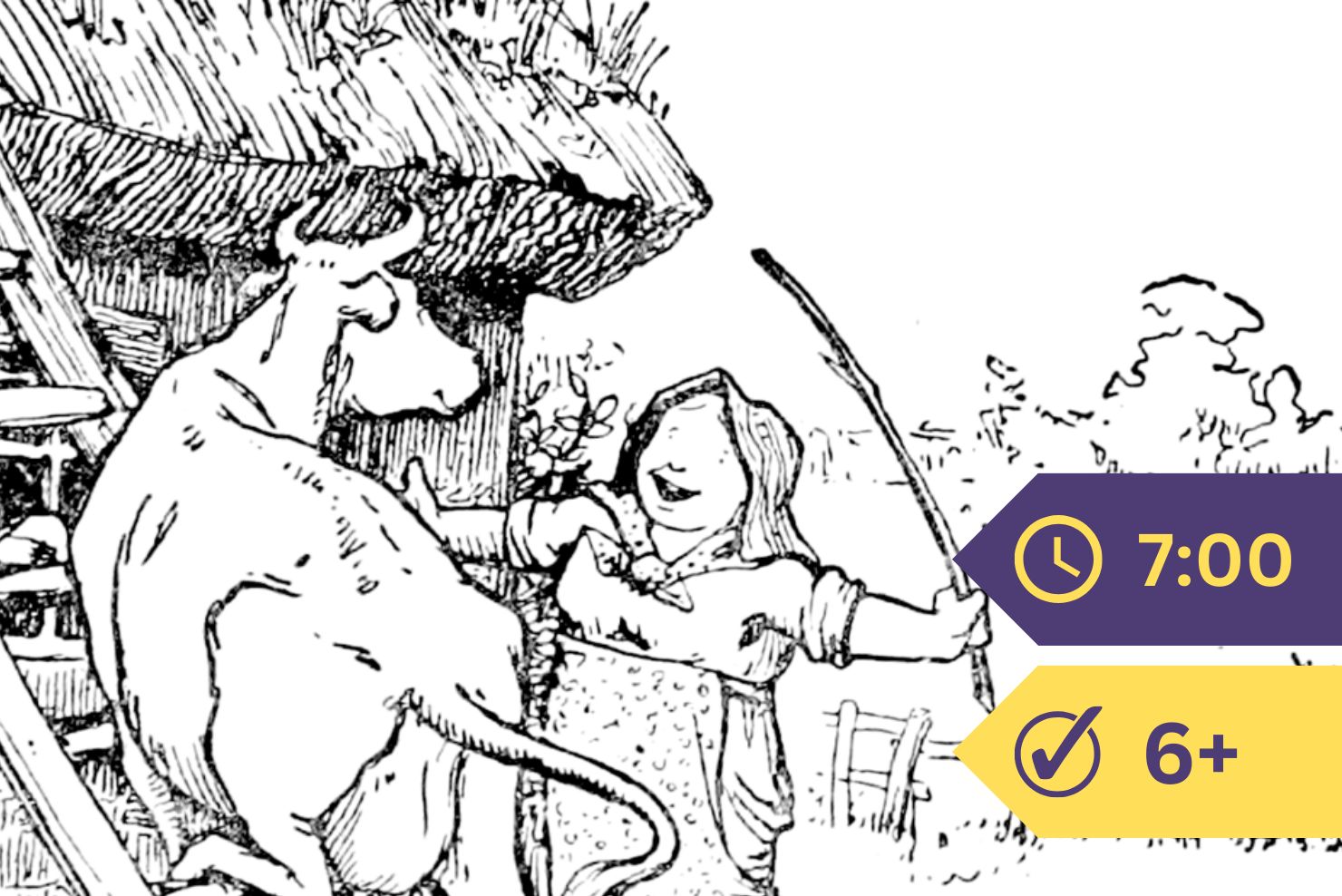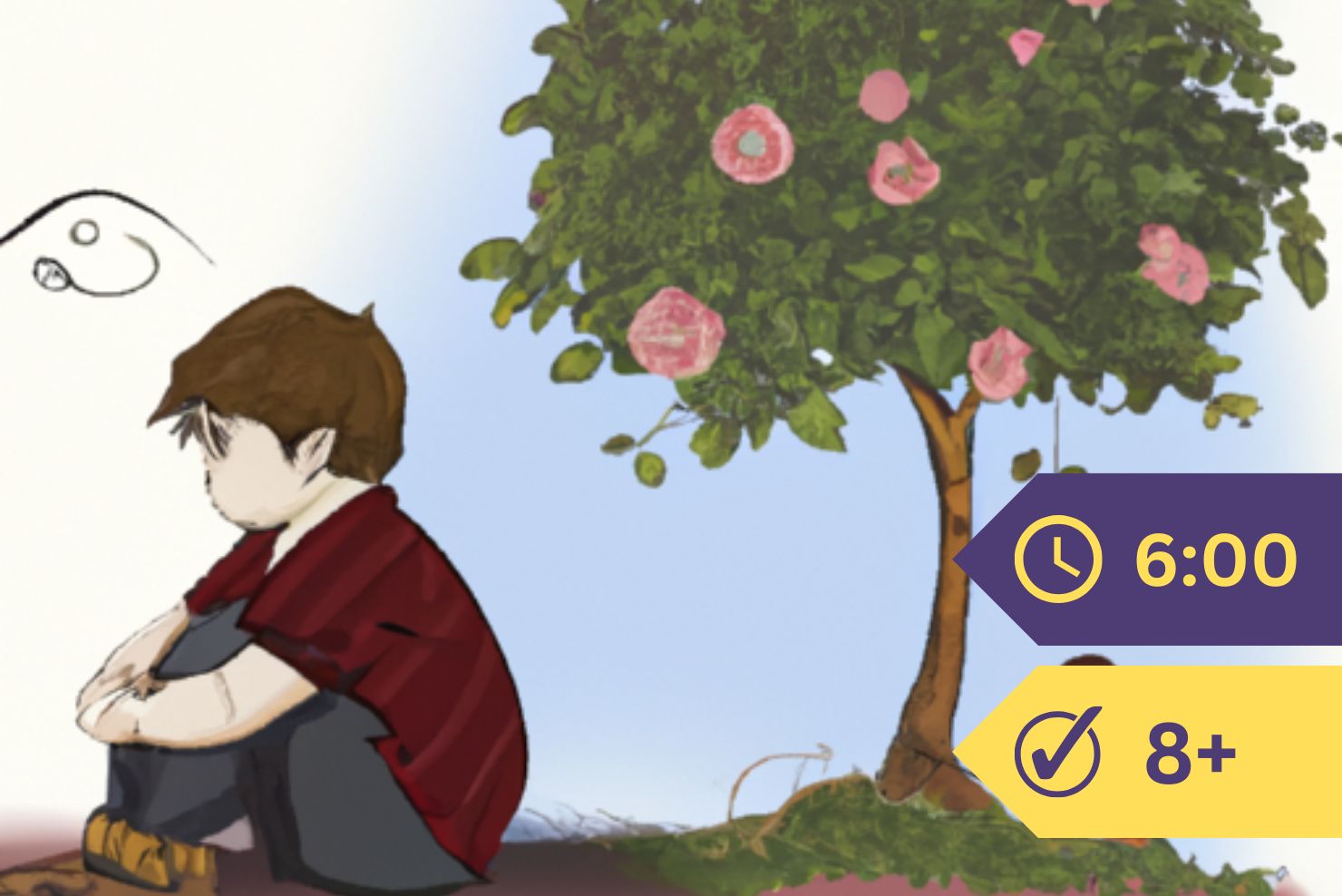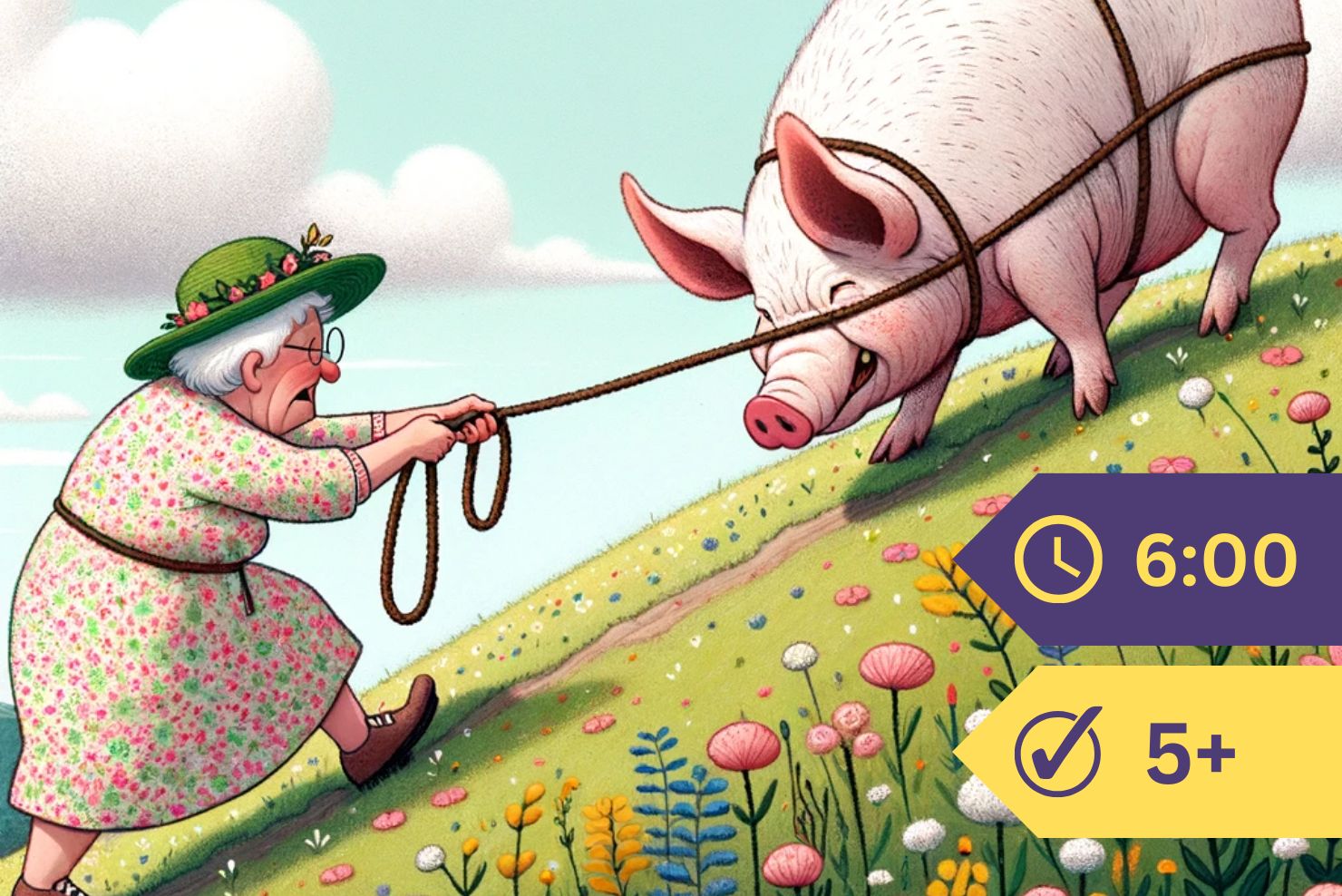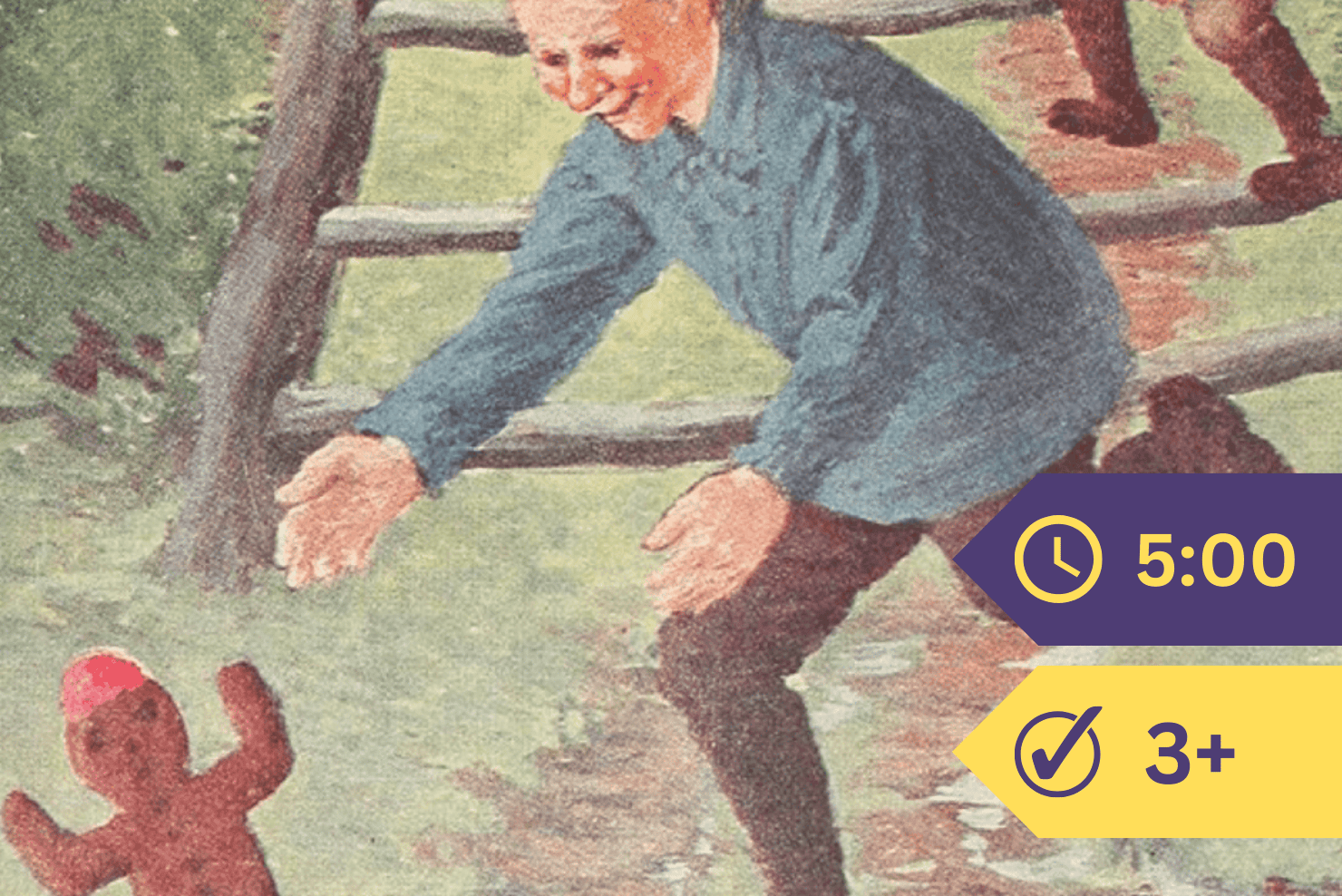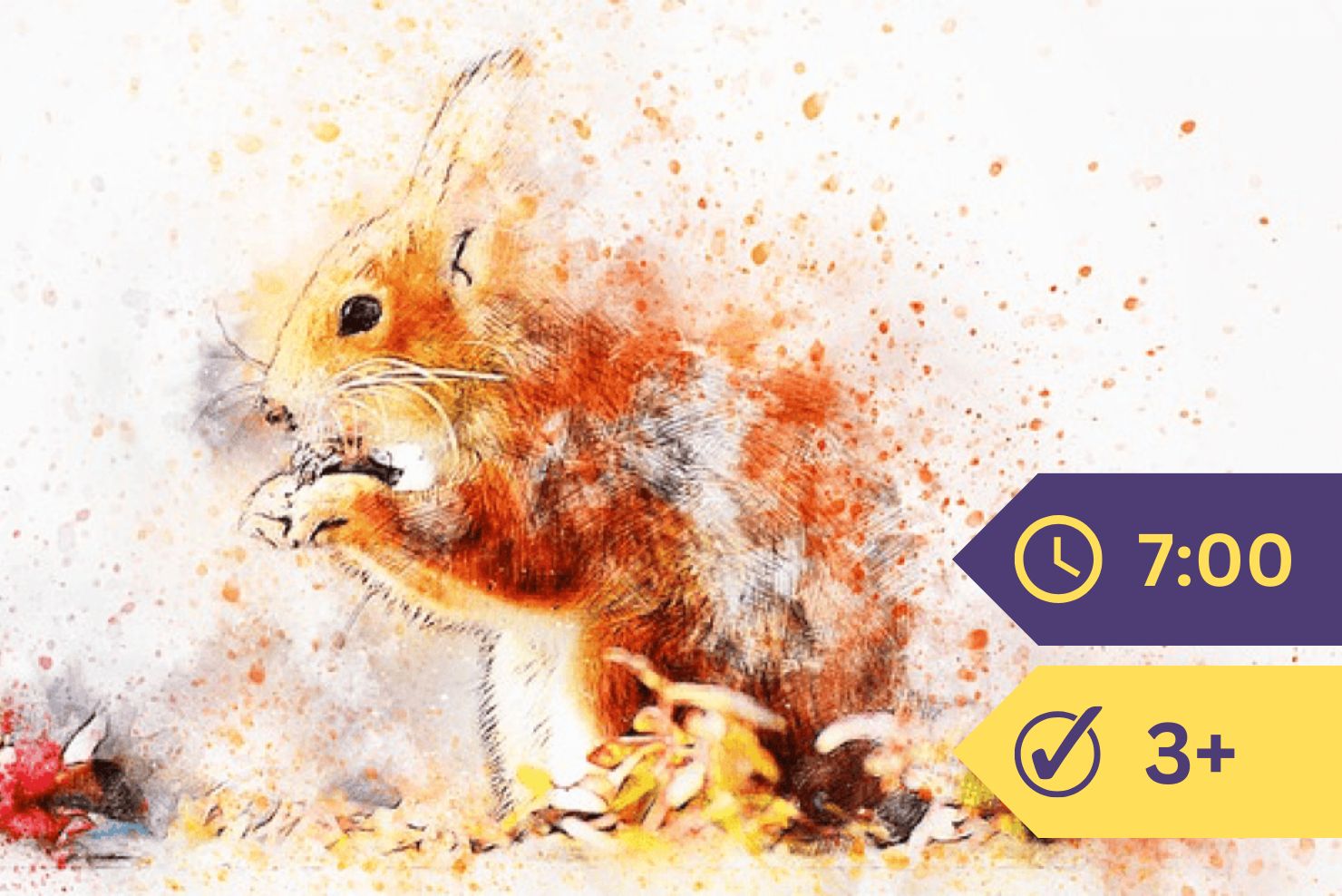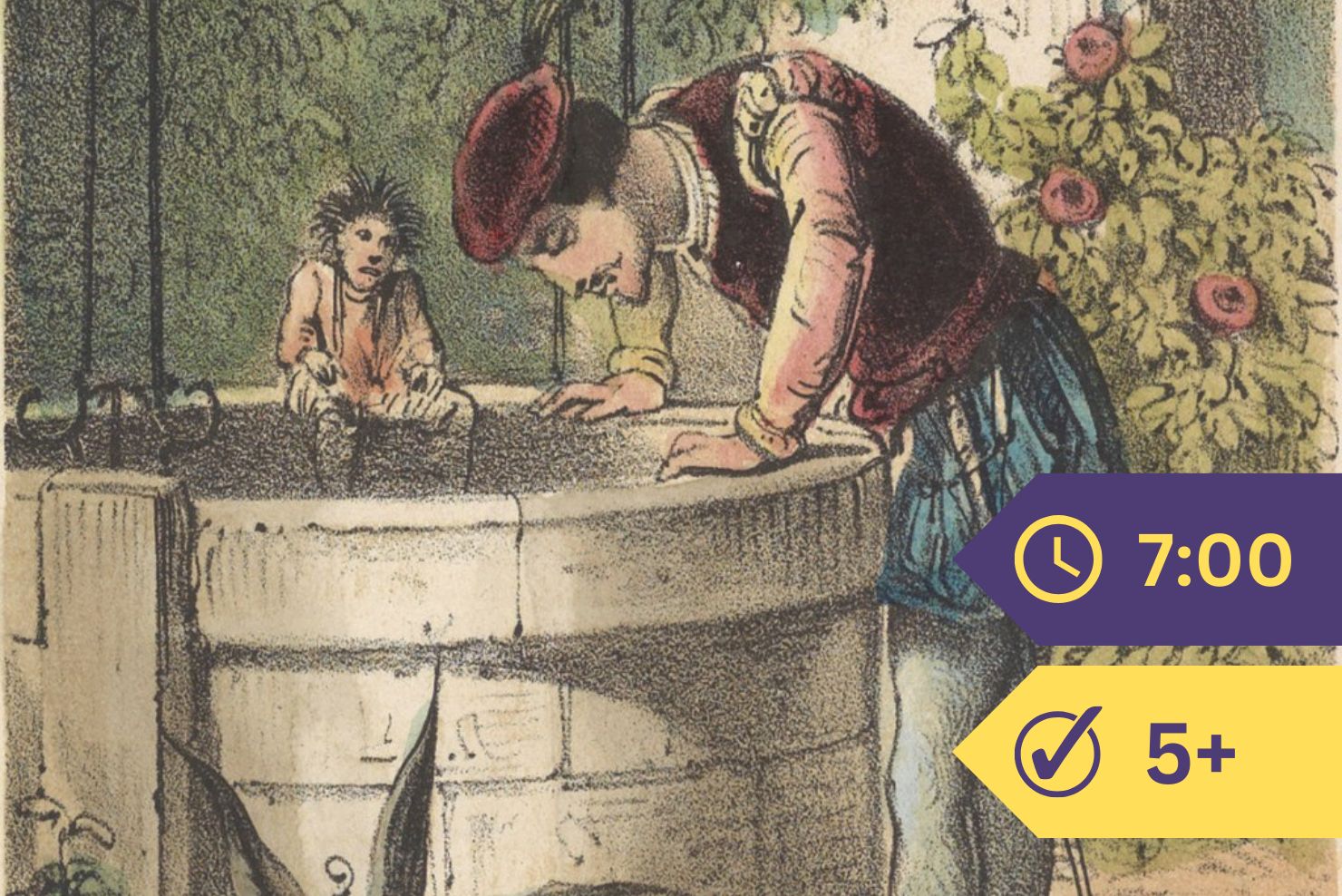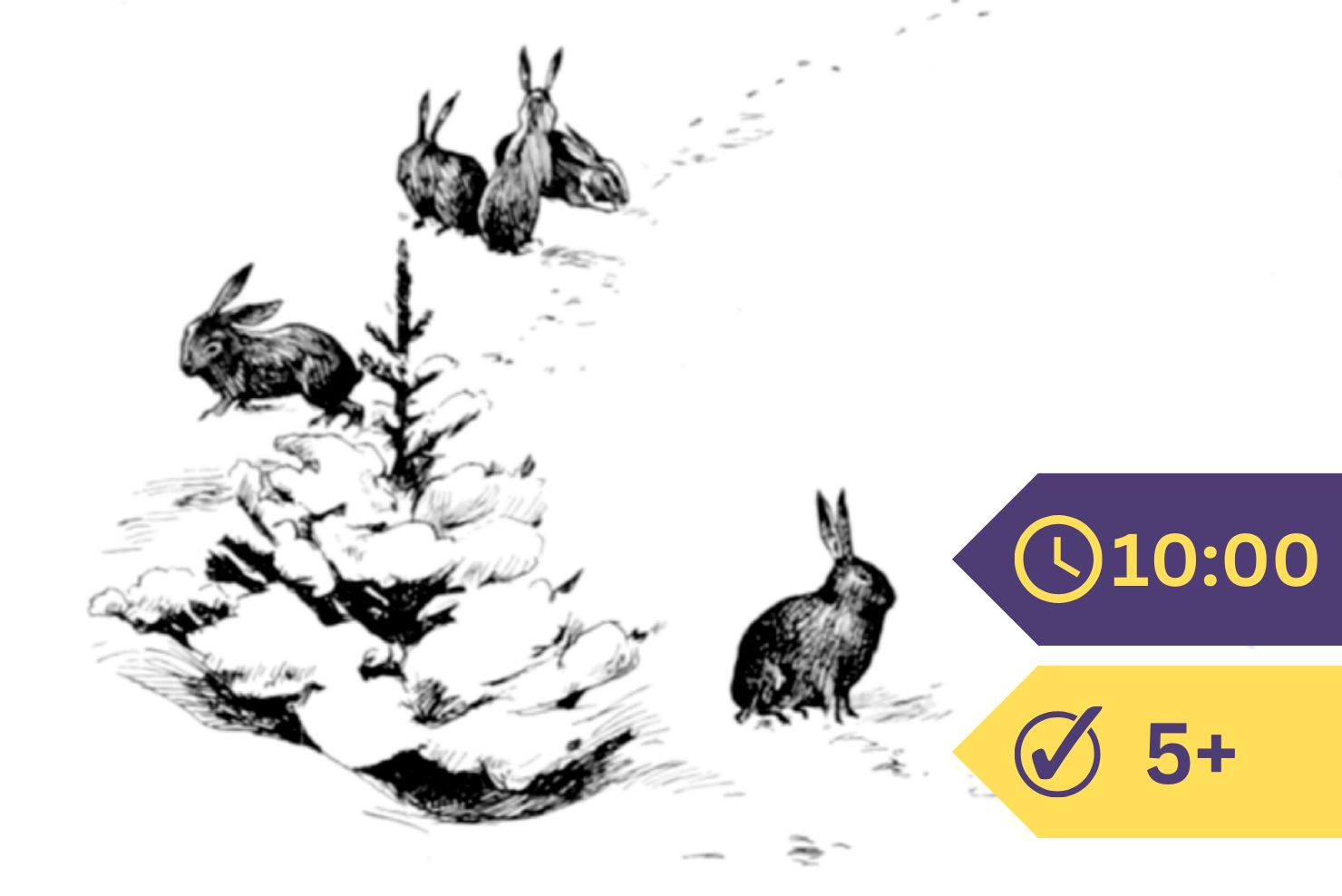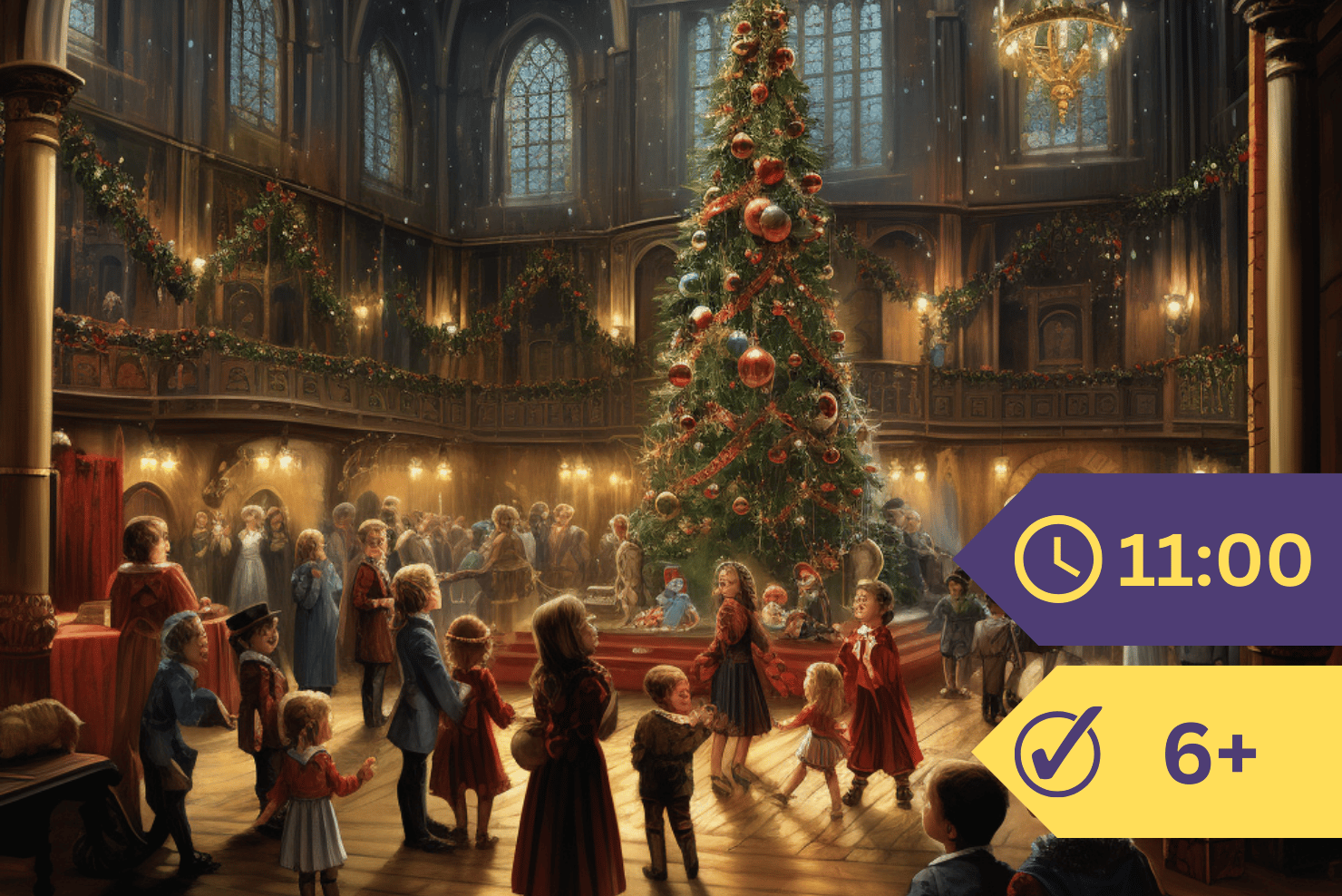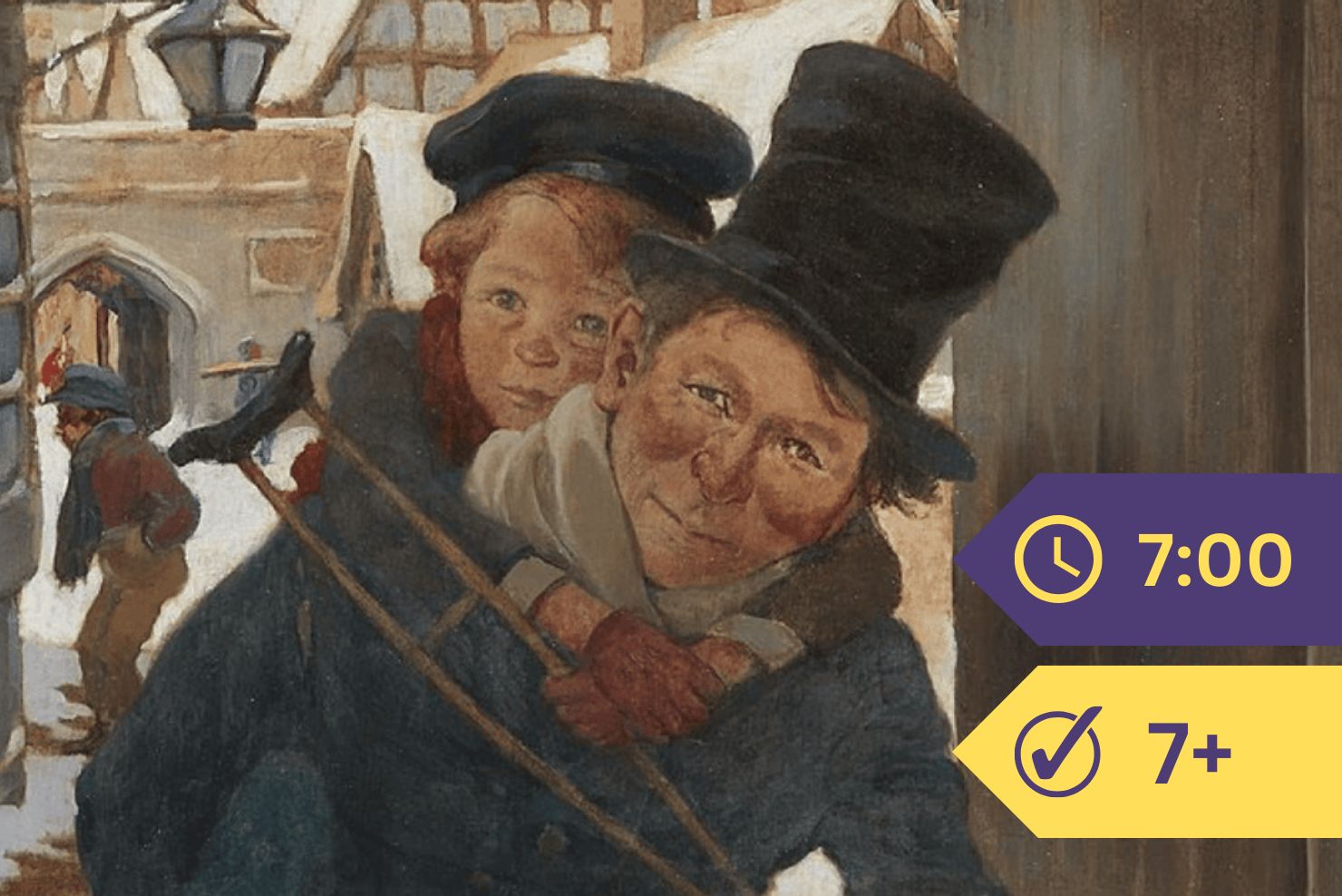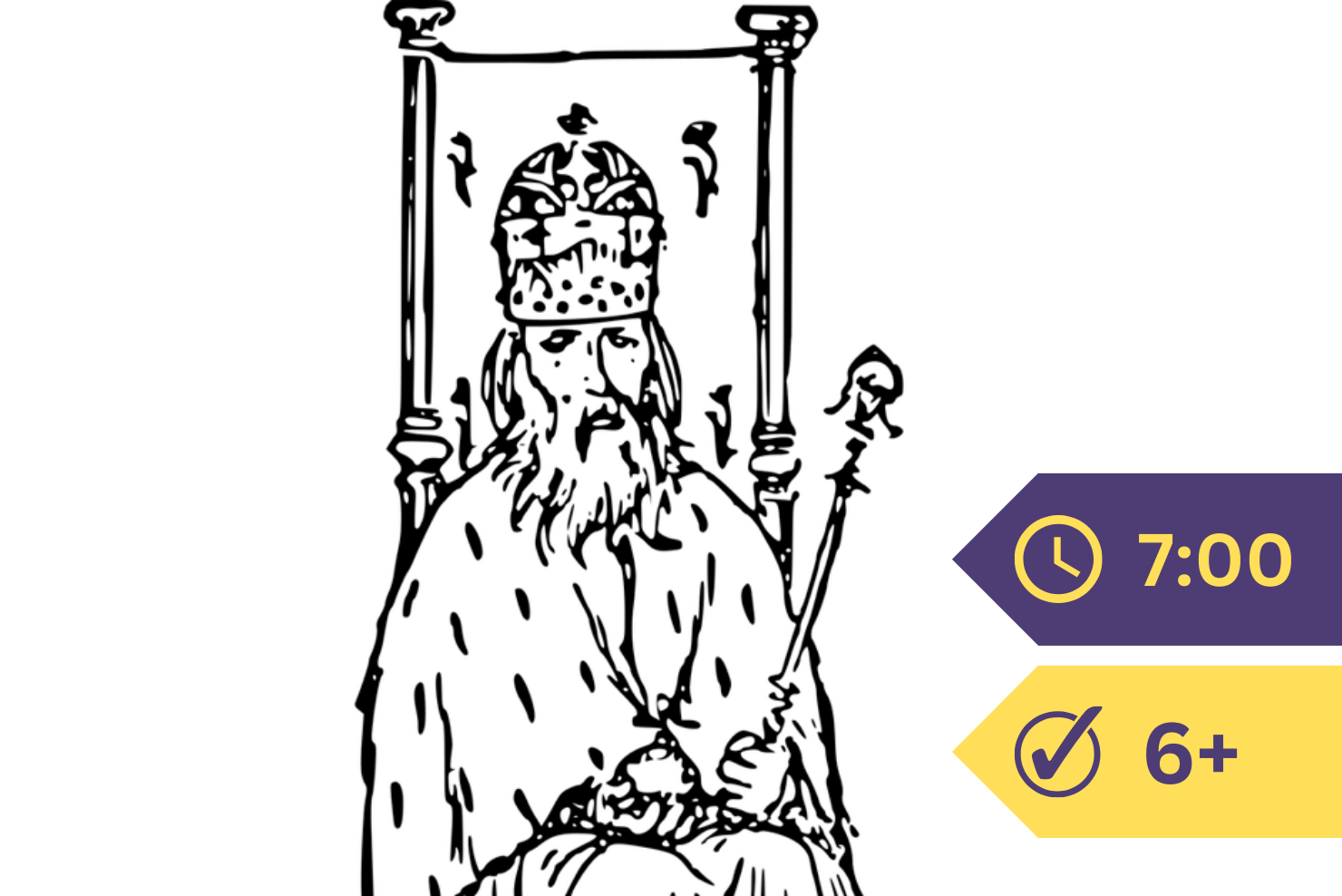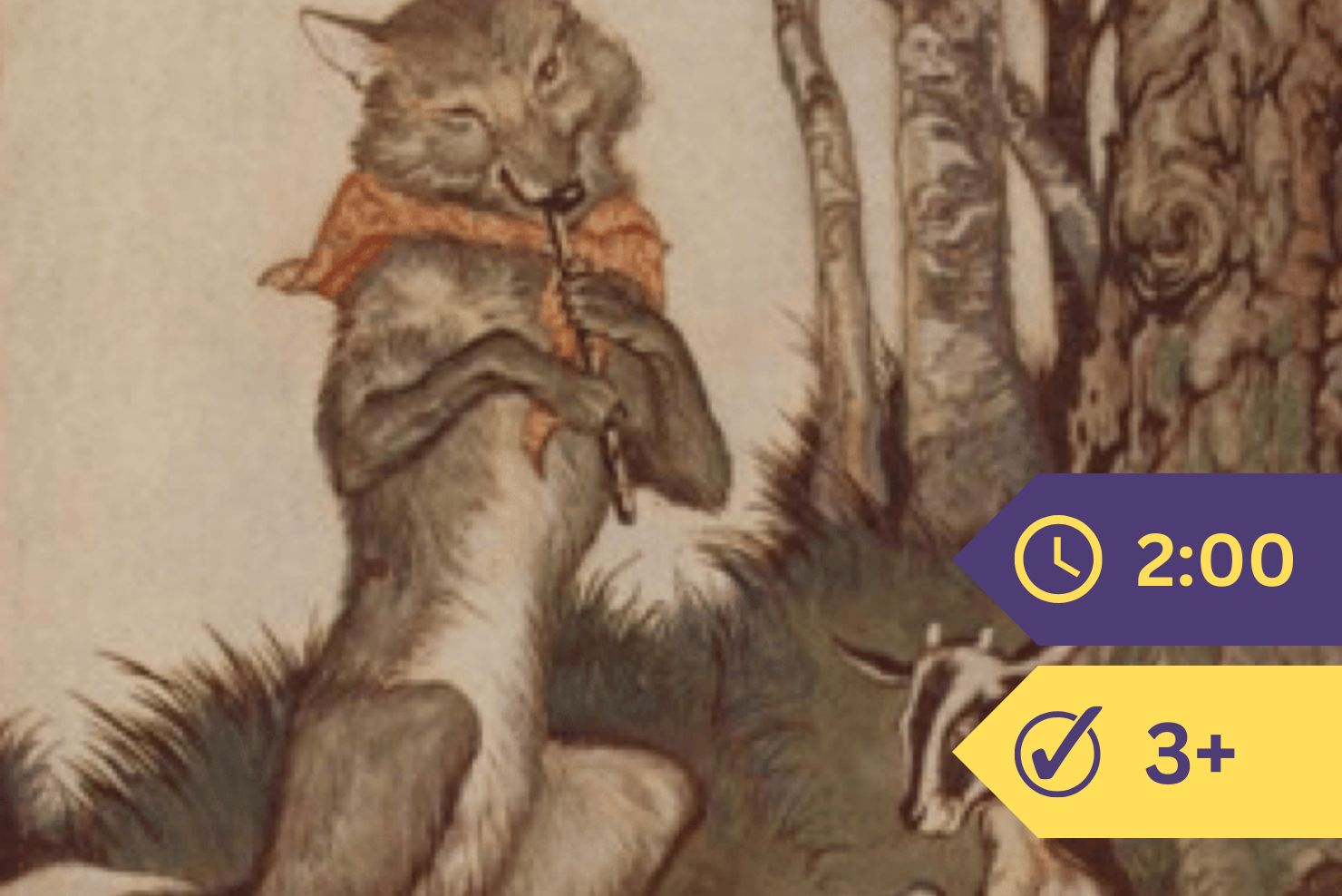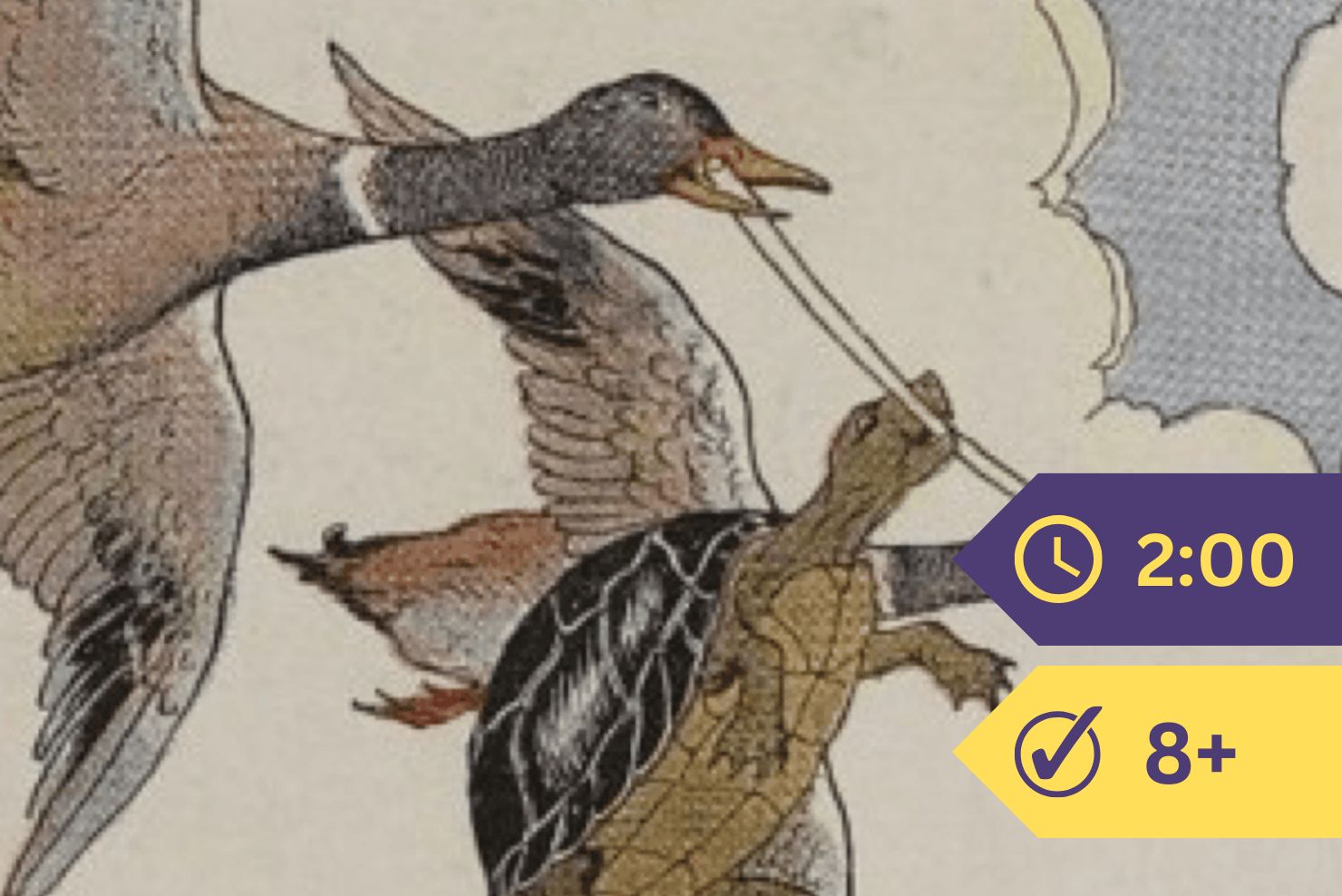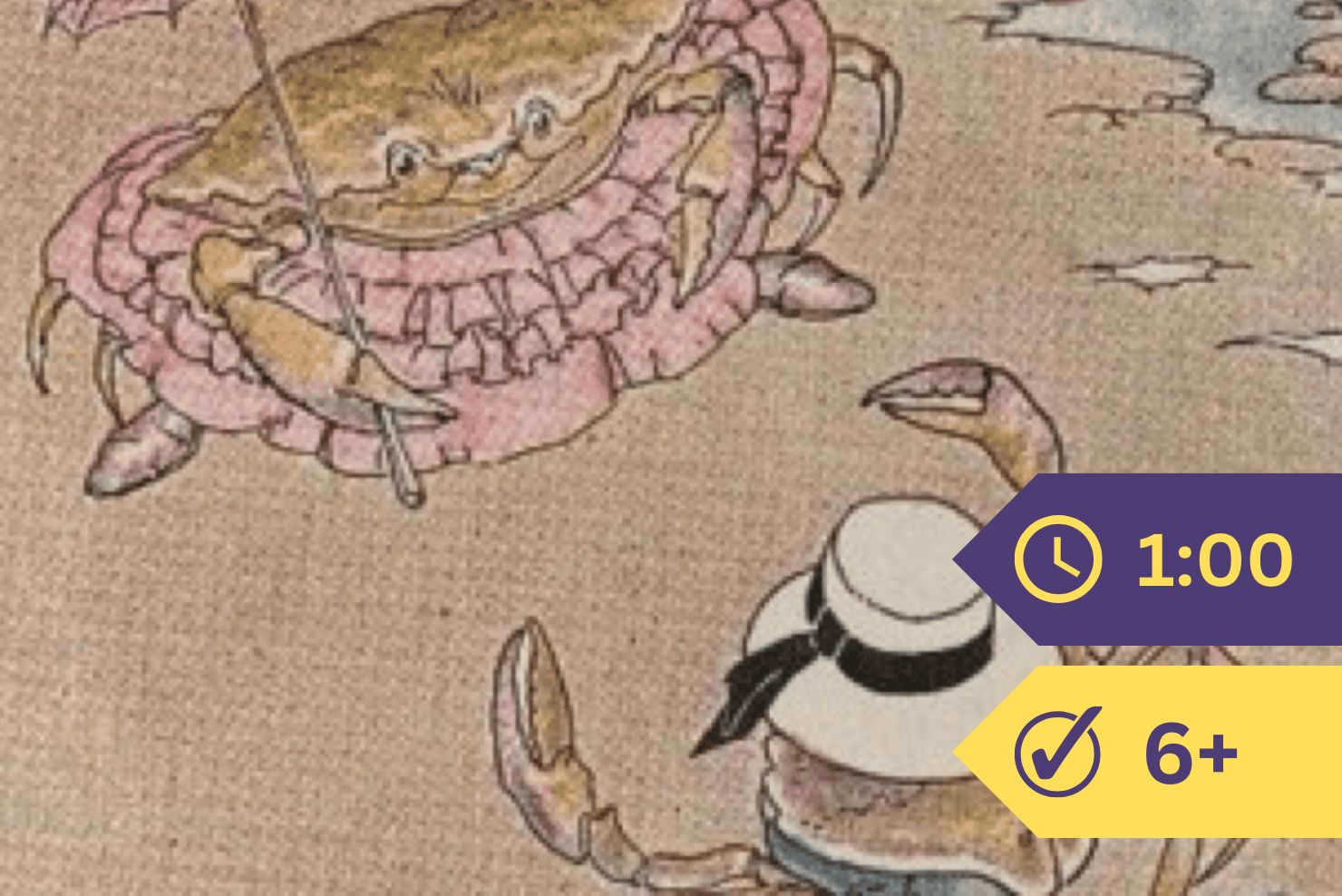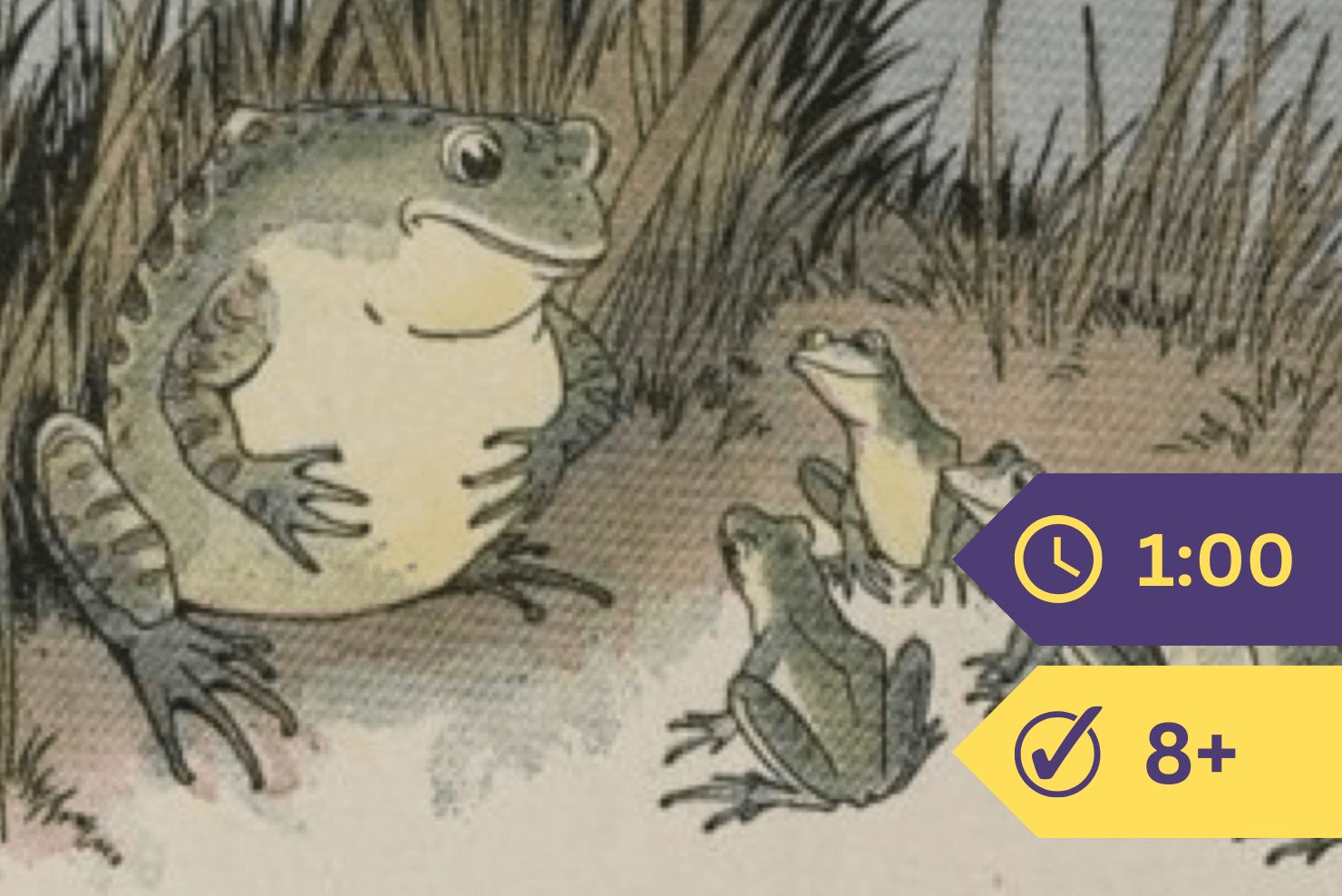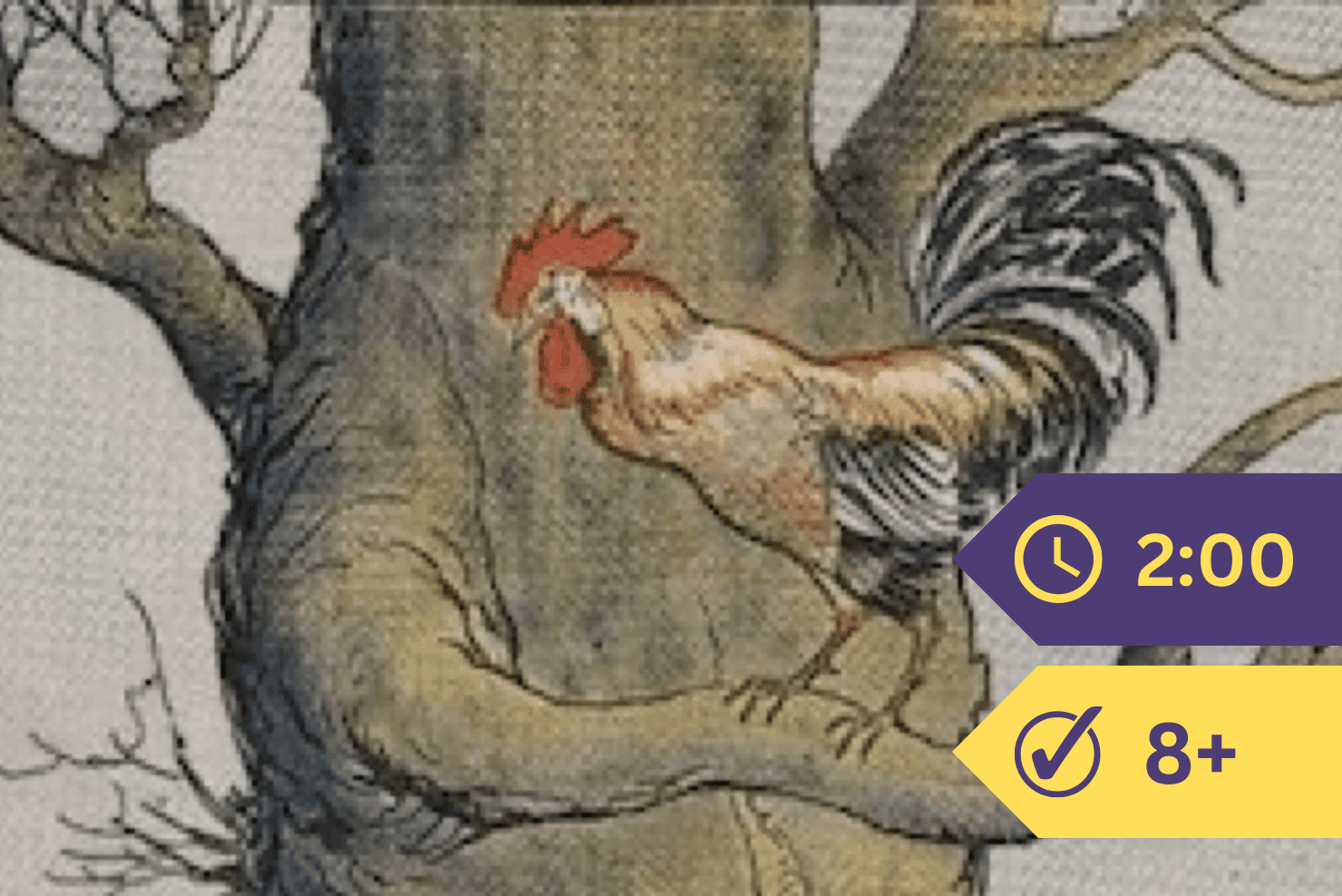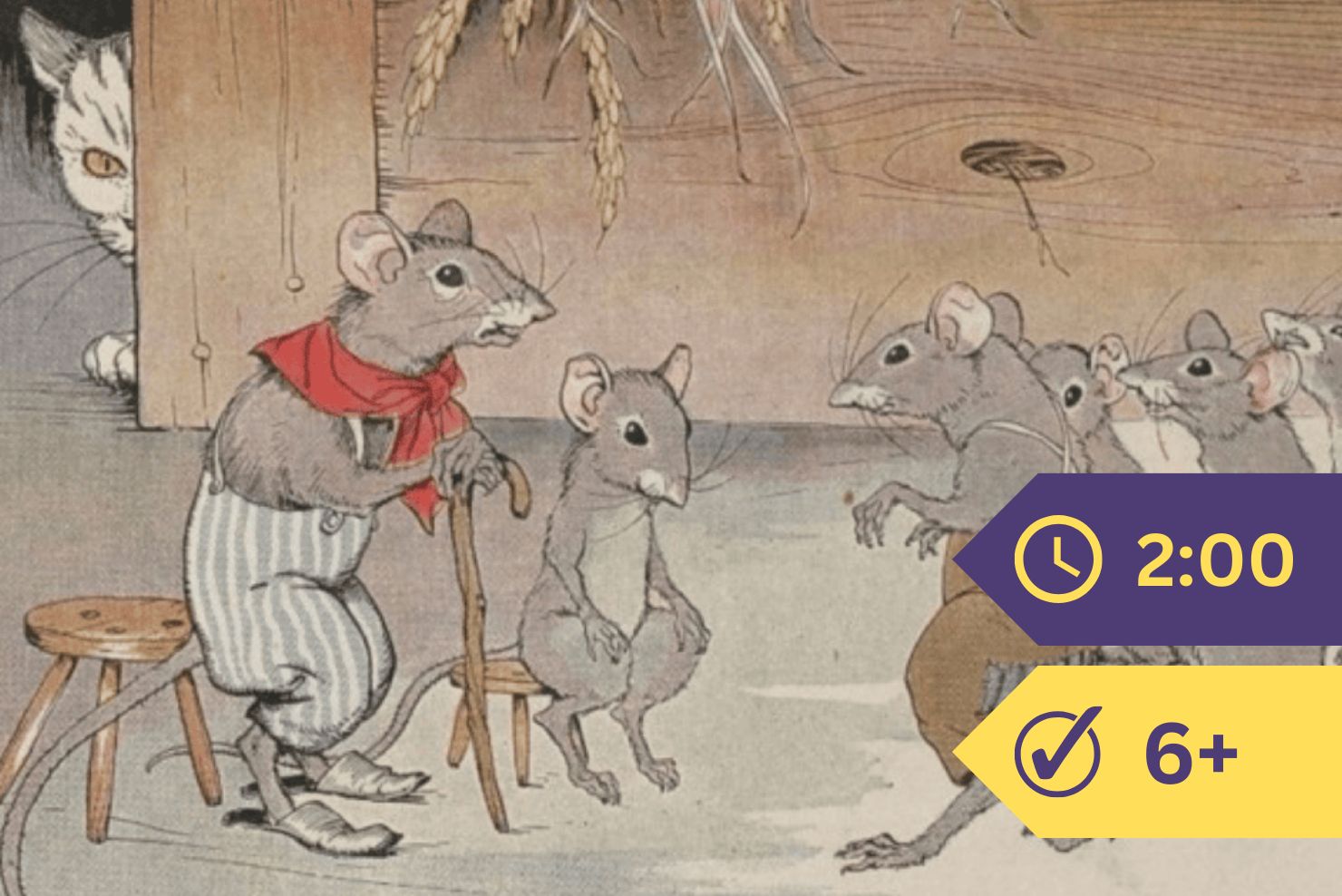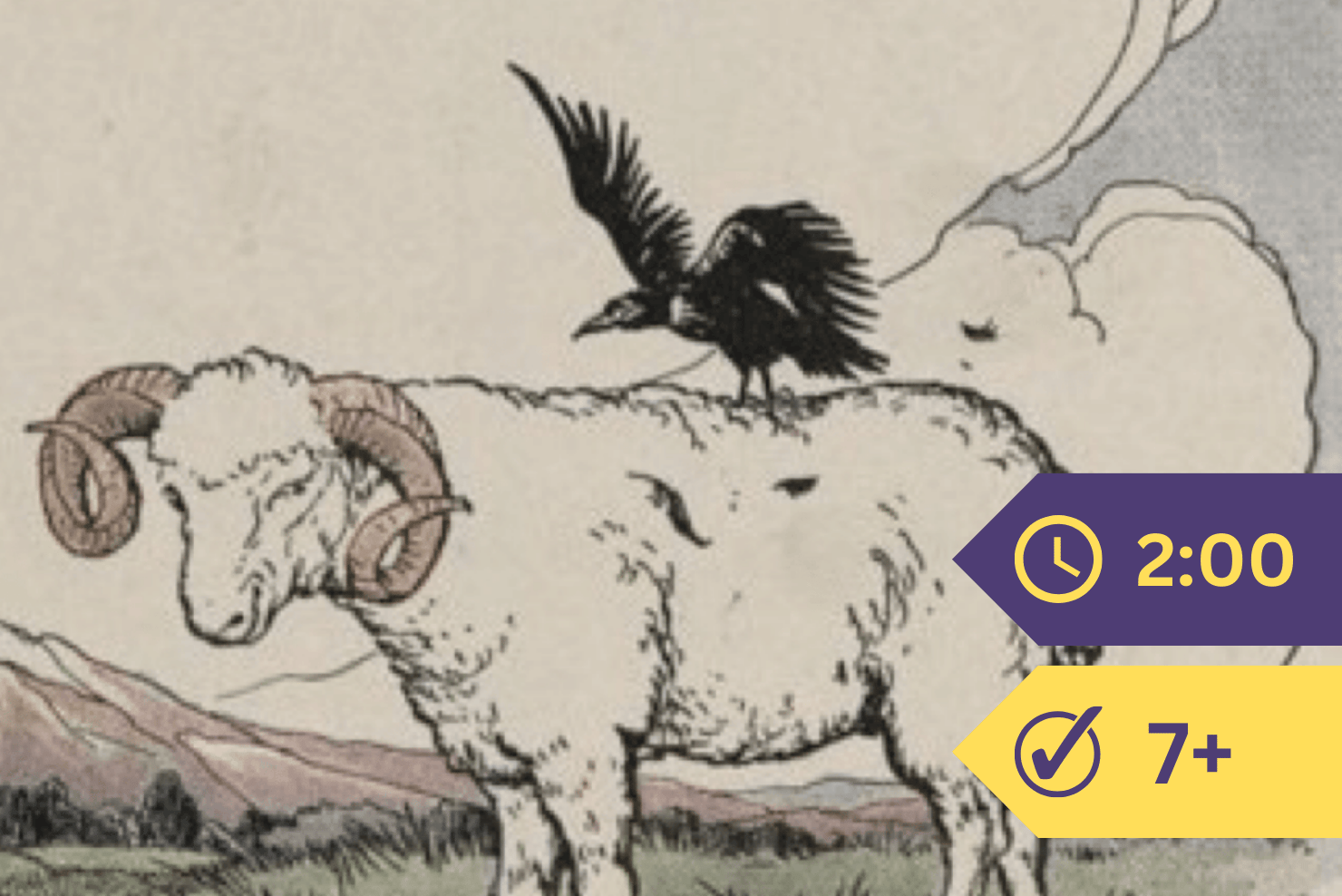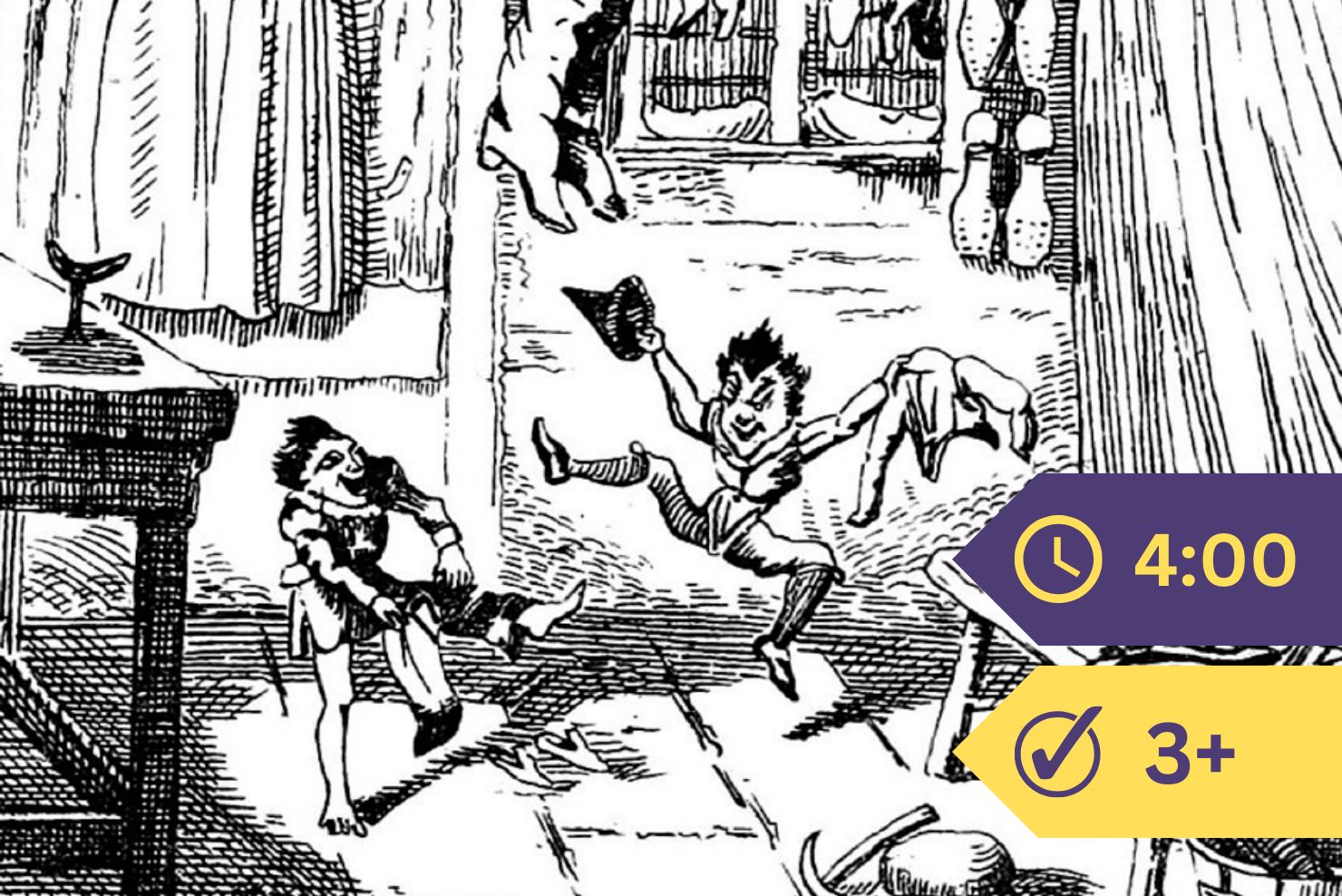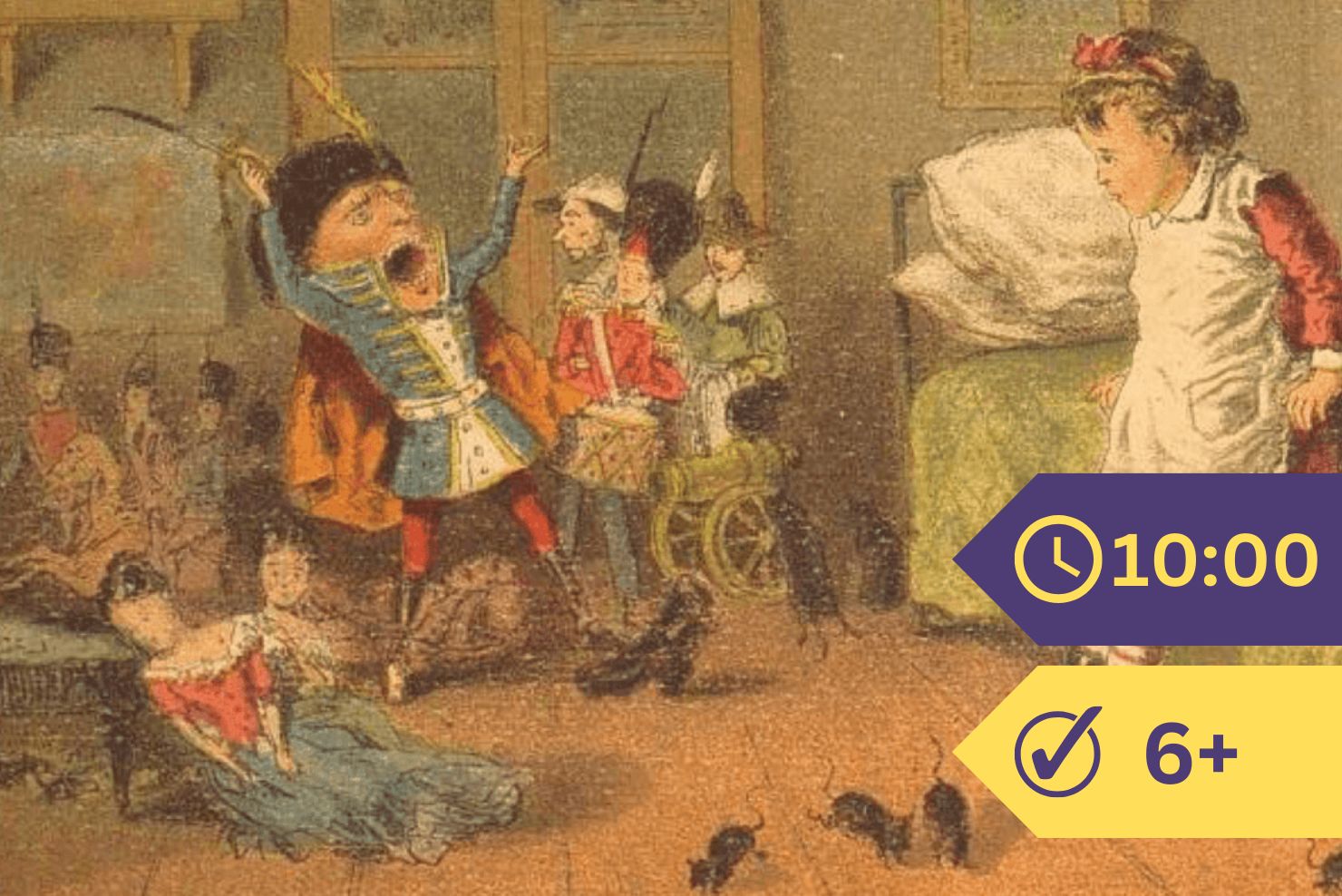Once upon a time there was a prince or a duke or whatever you choose to call him, but at any rate a noble tremendously high-born, who did not want to stay at home. And so he traveled about the world, and wherever he went he was well received, and hobnobbed with the very finest people; for he had an unheard of amount of money. He at once found friends and acquaintances, no matter where he came; for whoever has a full trough can always find pigs to thrust their snouts into it. But since he handled his money as he did, it grew less and less, and at last he was left high and dry, without a red cent. And there was an end to all his many friends; for they did just as the pigs do. When he had been well fleeced, they began to snivel and grunt, and soon scattered, each about his own business. And there he stood, after having been led about by the nose, abandoned by all. All had been glad to help him get rid of his money; but none were willing to help him regain it, so there was nothing left for him to do but to wander back home again like a journeyman apprentice, and beg his way as he went.
Late one evening he found himself in a big forest, without any idea as to where he might spend the night. And as he was looking around, his glance happened to fall on an old hut, peeping out from among the bushes. Of course an old hut was no lodging for such a fine gentleman; but when we cannot have what we want, we must take what we can get, and since there was no help for it, he went into the hut. There was not even a cat in it, not even a stool to sit on. But against one wall there was a great chest. What might there be in the chest? Suppose there were a few moldy crusts of bread in it? They would taste good to him, for he had not been given a single thing all day long, and he was so hungry that his inwards stuck to his ribs. He opened the chest. But within the chest was another chest, and in that chest still another chest, and so it went, one always smaller than the other, until they were nothing but little boxes. And the more there were of them the more trouble he took to open them; for whatever was hidden away so carefully must be something exceptionally beautiful, thought he.
At last he came to a tiny box, and in the tiny box was a slip of paper—and that was all he had for his pains! At first he was much depressed. But all at once, he saw that something was written on the piece of paper, and on closer examination he was even able to spell out the words, though they had a strange appearance. And he read:
“Lasse, my thrall!”
No sooner had he spoken these words than something answered, close to his ear:
“What does my master command?”
He looked around, but saw no one. That’s strange, thought he, and once more read aloud:
“Lasse, my thrall!”
And just as before came the answer:
“What does my master command?”
“If there be some one about who hears what I say, he might be kind enough to get me a little something to eat,” said he; and at that very moment a table, covered with all the good things to eat that one could imagine, was standing in the hut. He at once began to eat and drink and did well by himself. I have never had a better meal in my life, thought he. And when his hunger was completely satisfied, he grew sleepy and took up his scrap of paper again.
“Lasse, my thrall!”
“What does my master command?”
“Now that you have brought me food and drink, you must also bring me a bed in which to sleep. But it must be a very fine bed,” said he; for as you may well imagine, his ideas were more top-lofty now that he had eaten well. His command was at once obeyed; and a bed so fine and handsome stood in the hut, that a king might have been glad to have found such sleeping accommodations. Now this was all very well and good; but the good can always be bettered, and when he had lain down, he decided that, after all, the hut was far too wretched for such a fine bed. He took up the scrap of paper:
“Lasse, my thrall!”
“What does my master command?”
“If you can produce such a meal, and such a bed here in the wild wood, you must surely be able to give me a better room; for you know I am one of those who are used to sleeping in a castle, with golden mirrors and rugs of gold brocade and luxuries and conveniences of every kind,” said he. And no sooner had he spoken the words, than he was lying in the most magnificent room he had ever seen.
Now matters were arranged to suit him, and he was quite content as he turned his face to the wall and closed his eyes.
But the room he had slept in was not the end of his magnificence. When he woke the following morning and looked around, he saw that he had been sleeping in a great castle. There was one room after another, and wherever he went walls and ceilings were covered with ornaments and decorations of every kind, all glittering so splendidly when the rays of the sun fell on them that he had to put his hand to his eyes; for wherever he looked everything sparkled with gold and silver. Then he glanced out of the window and first began to realize how really beautiful everything was. Gone were the fir-trees and juniper bushes, and in their place showed the loveliest garden one might wish to see, filled with beautiful trees and roses of every variety, in bush and tree form. But there was not a human being in sight, not even a cat. Yet he found it quite natural that everything should be so fine, and that he should once more have become a great lord.
He took up the scrap of paper:
“Lasse, my thrall!”
“What does my master command?”
“Now that you have provided me with food and a castle in which to dwell, I am going to stay here, because it suits me,” said he, “but I cannot live here all alone in this fashion. I must have serving-men and serving-maids, at my command.” And so it was. Servants and lackeys and maids and serving-women of every description arrived, and some of them bowed and others courtseyed, and now the duke really began to feel content.
Now it happened that another great castle lay on the opposite side of the forest, in which dwelt a king who owned the forest, and many broad acres of field and meadow round about. And when the king came and happened to look out of his window, he saw the new castle, on whose roof the golden weathercocks were swinging to and fro, from time to time, shining in his eyes.
“This is very strange,” thought he, and sent for his courtiers. They came without delay, bowing and scraping.
“Do you see the castle yonder?” said the king.
Their eyes grew as large as saucers and they looked.
Yes, indeed, they saw the castle.
“Who has dared to build such a castle on my ground?”
The courtiers bowed and scraped, but did not know. So the king sent for his soldiers. They came tramping in and presented arms.
“Send out all my soldiers and horsemen,” said the king, “tear down the castle instantly, hang whoever built it, and see to this at once.”
The soldiers assembled in the greatest haste and set forth. The drummers beat their drums and the trumpeters blew their trumpets, and the other musicians practiced their art, each in his own way; so that the duke heard them long before they came in sight. But this was not the first time he had heard music of this sort, and he knew what it meant, so once more he took up the scrap of paper:
“Lasse, my thrall!”
“What does my master command?”
“There are soldiers coming,” said he, “and now you must provide me with soldiers and horsemen until I have twice as many as the folk on the other side of the forest. And sabers and pistols and muskets and cannon, and all that goes with them—but you must be quick about it!”
Quick it was, and when the duke looked out there was a countless host of soldiers drawn up around the castle.
When the king’s people arrived, they stopped and did not dare advance. But the duke was by no means shy. He went at once to the king’s captain and asked him what he wanted.
The captain repeated his instructions.
“They will not gain you anything,” said the duke. “You can see how many soldiers I have, and if the king chooses to listen to me, we can agree to become friends, I will aid him against all his enemies, and what we undertake will succeed.” The captain was pleased with this proposal, so the duke invited him to the castle, together with all his officers, and his soldiers were given a swallow or two of something wet and plenty to eat along with it. But while the duke and the officers were eating and drinking, there was more or less talk, and the duke learned that the king had a daughter, as yet unmarried and so lovely that her like had never been seen. And the more they brought the king’s officers to eat, the stronger they inclined to the opinion that the king’s daughter would make a good wife for the duke. And as they talked about it, the duke himself began to think it over. The worst of it was, said the officers, that she was very haughty, and never even deigned to look at a man. But the duke only laughed. “If it be no worse than that,” he said, “it is a trouble that may be cured.”
When at last the soldiers had stowed away as much as they could hold, they shouted hurrah until they woke the echoes in the hills, and marched away. One may imagine what a fine parade march it was, for some of them had grown a little loose-jointed in the knees. The duke charged them to carry his greetings to the king, and say that he would soon pay him a visit.
When the duke was alone once more, he began to think of the princess again, and whether she were really as beautiful as the soldiers had said. He decided he would like to find out for himself. Since so many strange things had happened that day, it was quite possible, thought he.
“Lasse, my thrall!”
“What does my master command?”
“Only that you bring the king’s daughter here, as soon as she has fallen asleep,” said he. “But mind that she does not wake up, either on her way here, or on her way back.” And before long there lay the princess on the bed. She was sleeping soundly, and looked charming as she lay there asleep. One had to admit that she was as sweet as sugar. The duke walked all around her; but she appeared just as beautiful from one side as from the other, and the more the duke looked at her, the better she pleased him.
“Lasse, my thrall!”
“What does my master command?”
“Now you must take the princess home again,” said he, “because now I know what she looks like and to-morrow I shall sue for her hand.”
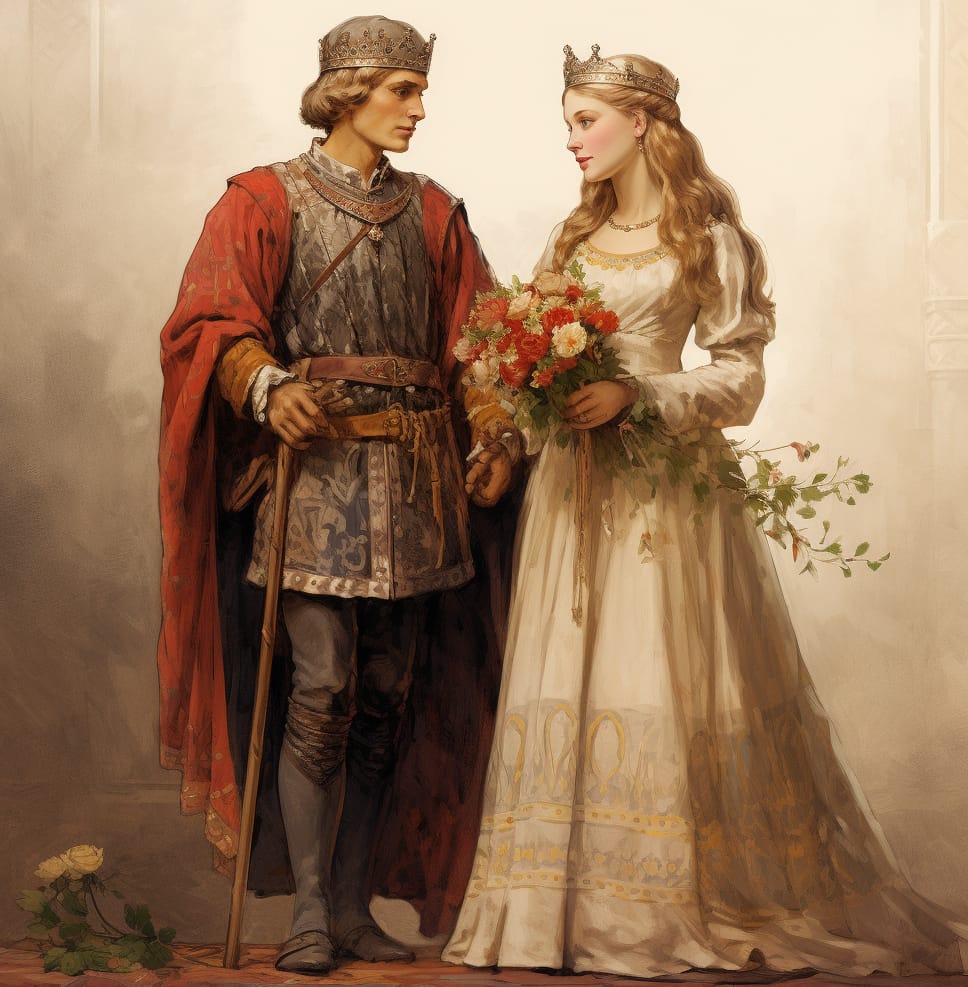
The following morning the king stepped to the window. “Now I shall not have to see that castle across the way,” he thought to himself. But the evil one must have had a hand in the matter—there stood the castle just as before, and the sun was shining brightly on its roof, and the weather-vanes were sending beams into his eyes.
The king once more fell into a rage, and shouted for all his people, who hurried to him with more than usual rapidity. The courtiers bowed and scraped and the soldiers marched in parade step and presented arms.
“Do you see that castle there?” roared the king.
They stretched their necks, their eyes grew large as saucers and they looked.
Yes, indeed, they saw it.
“Did I not order you to tear down that castle and hang its builder?” he said.
This they could not deny; but now the captain himself stepped forward and told what had occurred, and what an alarming number of soldiers the duke had, and how magnificent his castle was.
Then he also repeated what the duke had said, and that he had sent his greetings to the king.
All this made the king somewhat dizzy, and he had to set his crown on the table and scratch his head. It was beyond his comprehension—for all that he was a king; since he could have sworn that it had all come to pass in the course of a single night, and if the duke were not the devil himself, he was at least a magician.
And as he sat there and thought, the princess came in.
“God greet you, father,” she said, “I had a most strange and lovely dream last night.”
“And what did you dream, my girl?” said the king.
“O, I dreamt that I was in the new castle over yonder, and there was a duke, handsome and so splendid beyond anything I could have imagined, and now I want a husband.”
“What, you want a husband, and you have never even deigned to look at a man; that is very strange!” said the king.
“Be that as it may,” said the princess, “but that is how I feel now; and I want a husband, and the duke is the husband I want,” she concluded.
The king simply could not get over the astonishment the duke had caused him.
Suddenly he heard an extraordinary beating of drums, and sounding of trumpets and other instruments of every kind. And a message came that the duke had arrived with a great retinue, all so magnificently attired that every seam of their dresses was sparkling with gold and silver. The king, in his crown and finest robe of state, stood looking down the stairway, and the princess was all the more in favor of carrying out her idea as quickly as possible.
The duke greeted the king pleasantly, and the king returned his greeting in the same way, and discussing their affairs together they became good friends. There was a great banquet, and the duke sat beside the princess at the table. What they said to each other I do not know, but the duke knew so well how to talk that, no matter what he said, the princess could not say no, and so he went to the king and begged for her hand. The king could not exactly refuse it, for the duke was the kind of a man whom it was better to have for a friend than for an enemy; but he could not give his answer out of hand, either. First he wished to see the duke’s castle, and know how matters stood with regard to this, that and the other—which was natural.
So it was agreed that they should pay the duke a visit and bring the princess with them, in order that she might examine his possessions, and with that they parted.
When the duke reached home, Lasse had a lively time of it, for he was given any number of commissions. But he rushed about, carrying them out, and everything was arranged so satisfactorily that when the king arrived with his daughter, a thousand pens could not have described it. They went through all the rooms and looked around, and everything was as it should be, and even better thought the king, who was very happy. Then the wedding was celebrated and when it was over, and the duke returned home with his young wife, he, too, gave a splendid banquet, and that is how it went.
After some time had passed, the duke one evening heard the words:
“Is my master content now?” It was Lasse, though the duke could not see him.
“I am well content,” answered the duke, “for you have brought me all that I have.”
“But what did I get for it?” said Lasse.
“Nothing,” replied the duke, “but, heaven above, what was I to give you, who are not flesh and blood, and whom I cannot even see,” said he. “Yet if there be anything I can do for you, why let me know what it is, and I will do it.”
“I would very much like to have the little scrap of paper that you keep in the box,” said Lasse.
“If that is all you want, and if such a trifle is of any service to you, your wish shall be granted, for I believe I know the words by heart now,” said the duke.
Lasse thanked him, and said all the duke need do, would be to lay the paper on the chair beside his bed, when he went to sleep, and that he would fetch it during the night.
This the duke did, and then he went to bed and fell asleep.
But toward morning the duke woke up, freezing so that his teeth chattered, and when he had fully opened his eyes, he saw that he had been stripped of everything, and had scarcely a shirt to his name. And instead of lying in the handsome bed in the handsome bed-room in the magnificent castle, he lay on the big chest in the old hut. He at once called out:
“Lasse, my thrall!” But there was no answer.
Then he cried again:
“Lasse, my thrall!” Again there was no answer. So he called out as loudly as he could:
“Lasse, my thrall!” But this third call was also in vain.
Now he began to realize what had happened, and that Lasse, when he obtained the scrap of paper, no longer had to serve him, and that he himself had made this possible. But now things were as they were, and there stood the duke in the old hut, with scarcely a shirt to his name. The princess herself was not much better off, though she had kept her clothes; for they had been given her by her father, and Lasse had no power over them.
Now the duke had to explain everything to the princess, and beg her to leave him, since it would be best if he tried to get along as well as he could himself, said he. But this the princess would not do. She had a better memory for what the pastor had said when he married them, she told him, and that she was never, never to leave him.
At length the king awoke in his castle, and when he looked out of the window, he saw not a single stone of the other castle in which his son-in-law and his daughter lived. He grew uneasy and sent for his courtiers.
They came in, bowing and scraping.
“Do you see the castle there, on the other side of the forest?” he asked. They stretched their necks and opened their eyes. But they could see nothing.
“What has become of it?” said the king. But this question they were unable to answer.
In a short time the king and his entire court set out, passed through the forest, and when they came to the place where the castle, with its great gardens, should have been standing, they saw nothing but juniper-bushes and scrub-pines. And then they happened to see the little hut amid the brush. He went in and—O the poor king!—what did he see?
There stood his son-in-law, with scarcely a shirt to his name, and his daughter, and she had none too much to wear, and was crying and sniveling at a fearful rate. “For heaven’s sake, what is the trouble here?” said the king. But he received no answer; for the duke would rather have died than have told him the whole story.
The king urged and pressed him, first amiably, then in anger; but the duke remained obstinate and would have nothing to say. Then the king fell into a rage, which is not very surprising, for now he realized that this fine duke was not what he purported to be, and he therefore ordered him to be hung, and hung on the spot. It is true that the princess pleaded earnestly for him, but tears and prayers were useless now, for he was a rascal and should die a rascal’s death—thus spake the king.
And so it was. The king’s people set up a gallows and put a rope around the duke’s neck. But as they were leading him to the gallows, the princess got hold of the hangman and gave him a gratuity, for which they were to arrange matters in such wise that the duke need not die. And toward evening they were to cut him down, and he and the princess would disappear. So the bargain was made. In the meantime they strung him up and then the king, together with his court and all the people, went away.
Now the duke was at the end of his rope. Yet he had time enough to reflect about his mistake in not contenting himself with an inch instead of reaching out at once for an ell; and that he had so foolishly given back the scrap of paper to Lasse annoyed him most of all. If I only had it again, I would show every one that adversity has made me wise, he thought to himself. But when the horse is stolen we close the stable door. And that is the way of the world.
And then he dangled his legs, since for the time being there was nothing else for him to do.
It had been a long, hard day for him, and he was not sorry when he saw the sun sinking behind the forest. But just as the sun was setting he suddenly heard a most tremendous Yo ho! and when he looked down there were seven carts of worn-out shoes coming along the road, and a-top the last cart was a little old man in gray, with a night-cap on his head. He had the face of some horrible specter, and was not much better to look at in other respects.
He drove straight up to the gallows, and stopped when he was directly beneath them, looked up at the duke and laughed—the horrible old creature!
“And is this the measure of your stupidity?” he said, “but then what is a fellow of your sort to do with his stupidity, if he does not put it to some use?”—and then he laughed again. “Yes, there you hang, and here I am carting off all the shoes I wore out going about on your silly errands. I wonder, sometimes, whether you can actually read what is written on that scrap of paper, and whether you recognize it,” said he, laughing again, indulging in all sorts of horse-play, and waving the scrap of paper under the duke’s nose.
But all who are hanging on the gallows are not dead, and this time Lasse was the greater fool of the two.
The duke snatched—and tore the scrap of paper from his hand!
“Lasse, my thrall!”
“What does my master command?”
“Cut me down from the gallows at once, and restore the castle and everything else just as it was before, then when it is dark, bring the princess back to it.”
Everything was attended to with alarming rapidity, and soon all was exactly as it had been before Lasse had decamped.
When the king awoke the following morning, he looked out of the window as usual, and there the castle was standing as before, with its weathercocks gleaming handsomely in the sunlight. He sent for his courtiers, and they came in bowing and scraping.
“Do you see the castle over yonder?” asked the king.
They stretched their necks, and gazed and stared. Yes, indeed, they could see the castle.
Then the king sent for the princess; but she was not there. Thereupon the king set off to see whether his son-in-law was hanging in the appointed spot; but no, there was not a sign of either son-in-law or gallows.
Then he had to take off his crown and scratch his head. Yet that did not change matters, and he could not for the life of him understand why things should be as they were. Finally he set out with his entire court, and when they reached the spot where the castle should have been standing, there it stood.
The gardens and the roses were just as they had been, and the duke’s servitors were to be seen in swarms beneath the trees. His son-in-law in person, together with his daughter, dressed in the finest clothes, came down the stairs to meet him.
The devil has a hand in it, thought the king; and so strange did all seem to him that he did not trust the evidence of his own eyes.
“God greet you and welcome, father!” said the duke. The king could only stare at him. “Are you, are you my son-in-law?” he asked.
“Why, of course,” said the duke, “who else am I supposed to be?”
“Did I not have you strung up yesterday as a thief and a vagabond?” inquired the king.
“I really believe father has gone out of his mind on the way over to us,” said the duke and laughed.
“Does father think that I would allow myself to be hanged so easily? Or is there any one present who dare suppose such a thing?” he said, and looked them straight in the eye, so that they knew he was looking at them. They bent their backs and bowed and scraped.
“And who can imagine any such thing? How could it be possible? Or should there be any one present who dare say that the king wishes me ill, let him speak out,” said the duke, and gazed at them with even greater keenness than before. All bent their backs and bowed and scraped.
How should any of them come to any such conclusion? No, none of them were foolish to such a degree, they said.
Now the king was really at a loss to know what to think. When he looked at the duke he felt sure that he could never have wished to harm him, and yet—he was not quite sure.
“Was I not here yesterday, and was not the whole castle gone, and had not an old hut taken its place, and did I not enter the hut and see you standing there with scarcely a shirt to your name?” he asked.
“How father talks,” said the duke. “I am afraid, very much afraid, that trolls have blinded you, and led you astray in the forest. What do you think?” he said and turned to the courtiers.
They at once bowed and cringed fifty times in succession, and took the duke’s side, as stands to reason.
The king rubbed his eyes and looked around.
“It must be as you say,” he told the duke, “and I believe that I have recovered my reason, and have found my eyes again. And it would have been a sin and shame had I had you hung,” said he. Then he grew joyful and no one gave the matter further thought.
But adversity teaches one to be wise, so people say, and the duke now began to attend to most things himself, and to see to it that Lasse did not have to wear out so many pairs of shoes. The king at once bestowed half the kingdom upon him, which gave him plenty to do, and people said that one would have to look far in order to find a better ruler.
Then Lasse came to the duke one day, and though he did not look much better than before, he was more civil and did not venture to grin and carry on.
“You no longer need my help,” said he, “for though formerly I used to wear out all my shoes, I now cannot even wear out a single pair, and I almost believe my legs are moss-grown. Will you not discharge me?”
The duke thought he could. “I have taken great pains to spare you, and I really believe that I can get along without you,” he replied. “But the castle here and all the other things I could not well dispense with, since I never again could find an architect like yourself, and you may take for granted that I have no wish to ornament the gallows-tree a second time. Therefore I will not, of my own free will, give you back the scrap of paper,” said he.
“While it is in your possession I have nothing to fear,” answered Lasse.
“But should the paper fall into other hands, then I should have to begin to run and work all over again and that, just that, is what I would like to prevent. When a fellow has been working a thousand years, as I have, he is bound to grow weary at last.”
So they came to the conclusion that the duke should put the scrap of paper in its little box and bury it seven ells underground, beneath a stone that had grown there and would remain there as well. Then they thanked each other for pleasant comradeship and separated. The duke did as he had agreed to do, and no one saw him hide the box. He lived happily with his princess, and was blessed with sons and daughters. When the king died, he inherited the whole kingdom and, as you may imagine, he was none the worse off thereby, and no doubt he is still living and ruling there, unless he has died.
As to the little box containing the scrap of paper, many are still digging and searching for it.


